17 Part II – The Standard Library

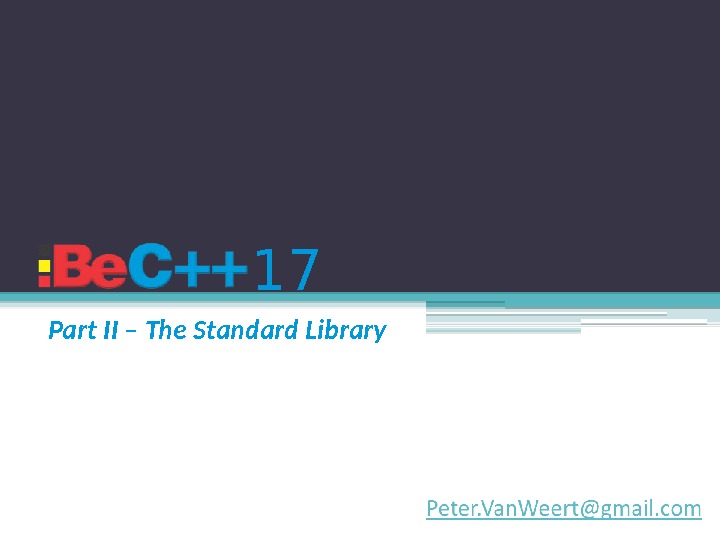

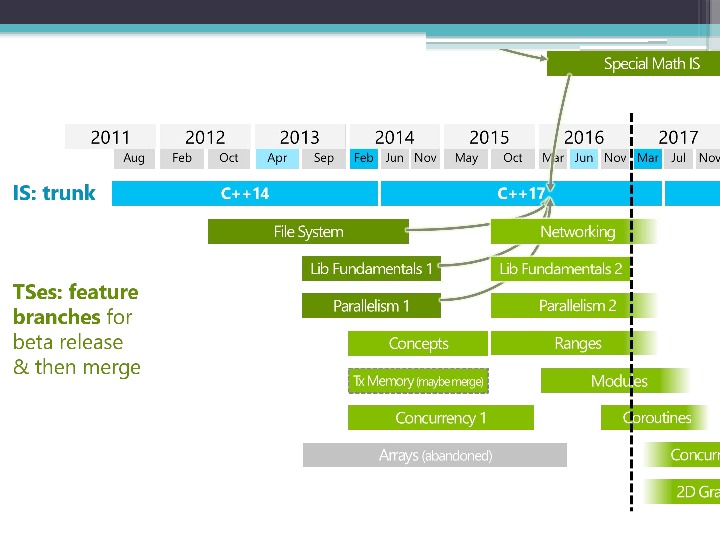
![“ I'm a bit sad about that. [. . . ] A lot of “ I'm a bit sad about that. [. . . ] A lot of](http://present5.com/presentforday2/20170321/peter-van-weert-bec17-part-ii_images/peter-van-weert-bec17-part-ii_3.jpg)



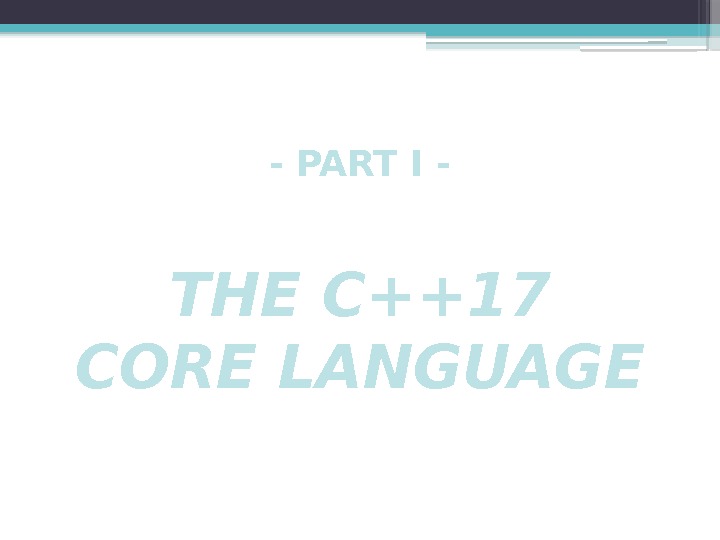
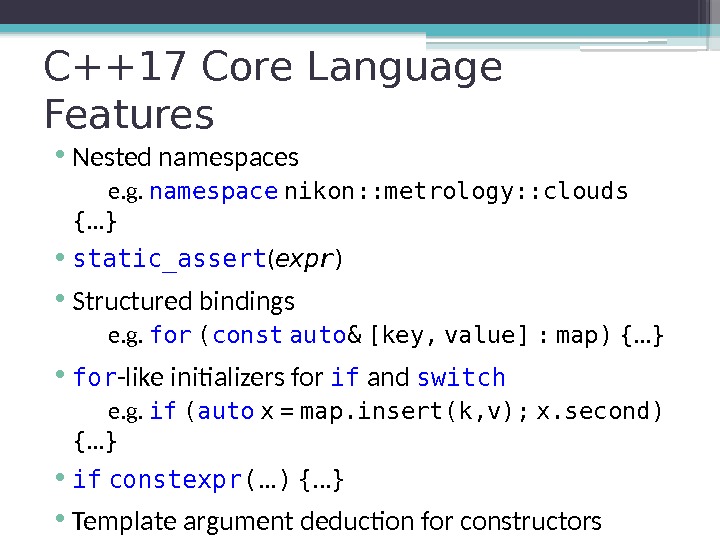
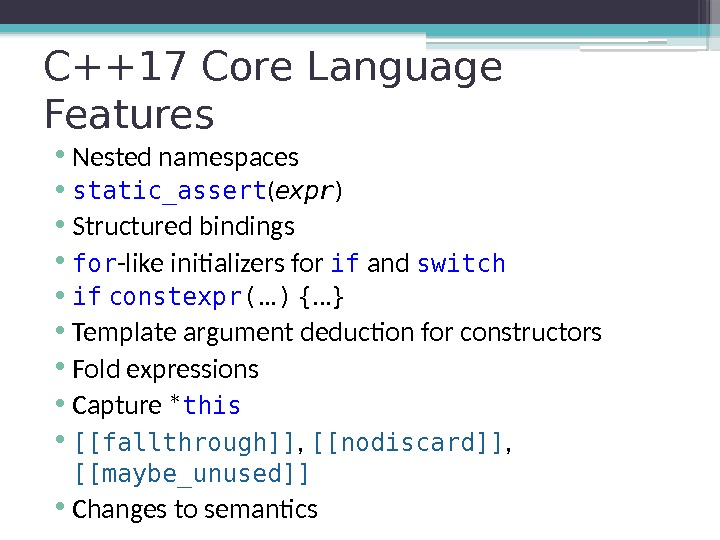

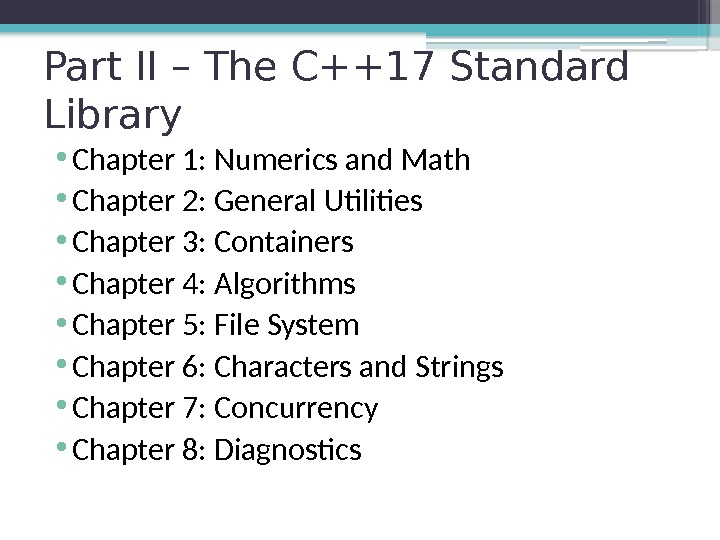
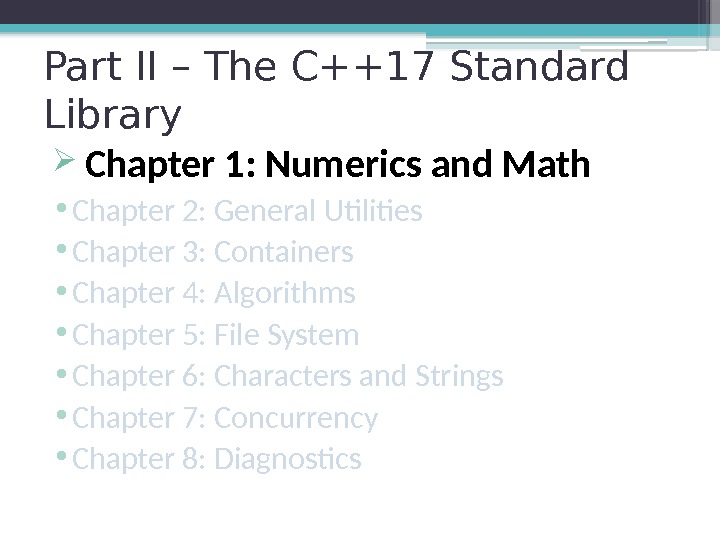
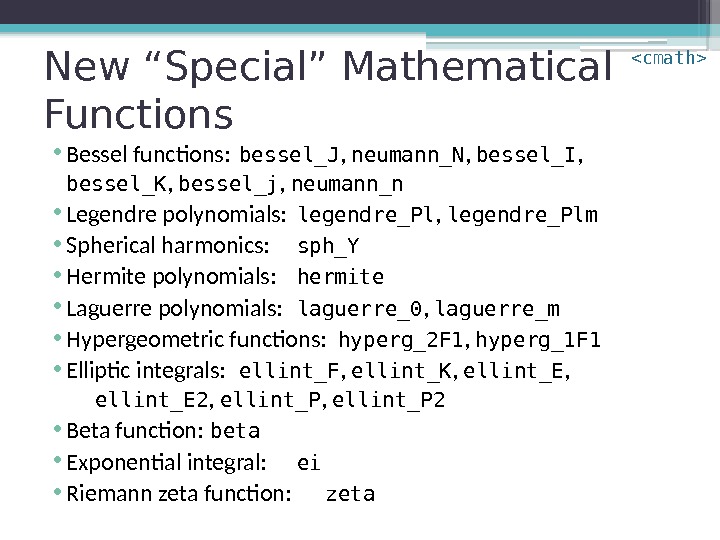
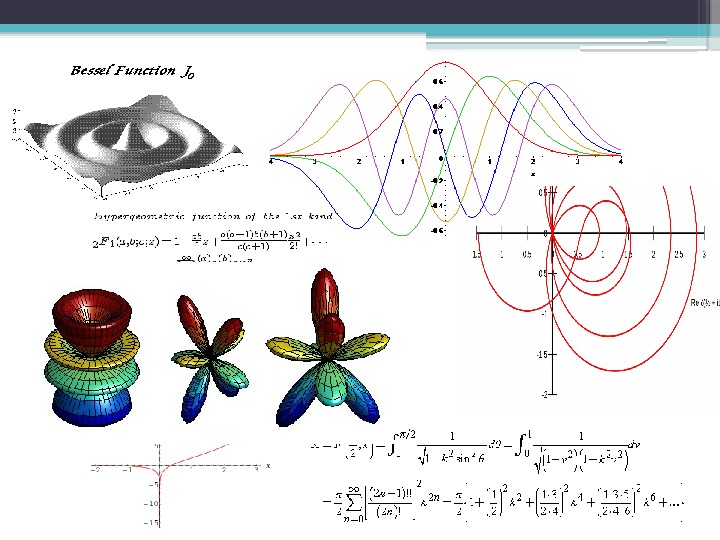
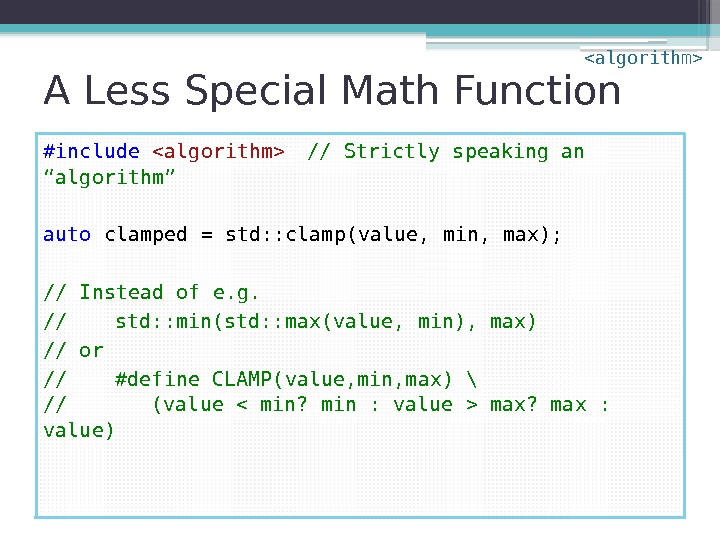


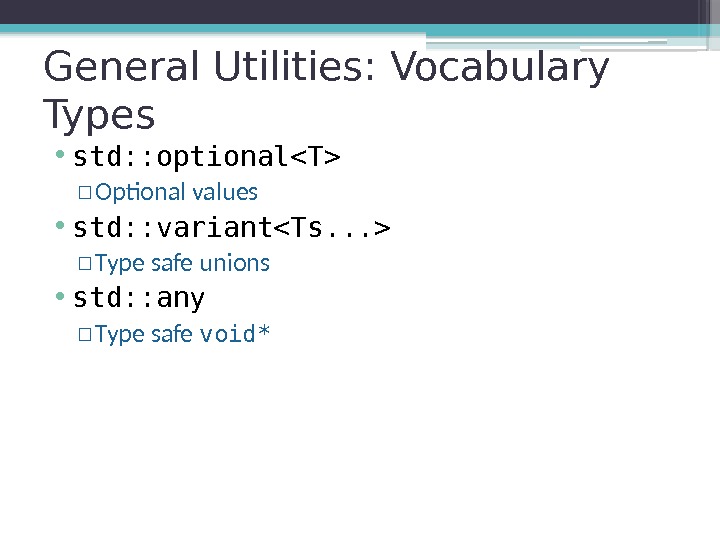
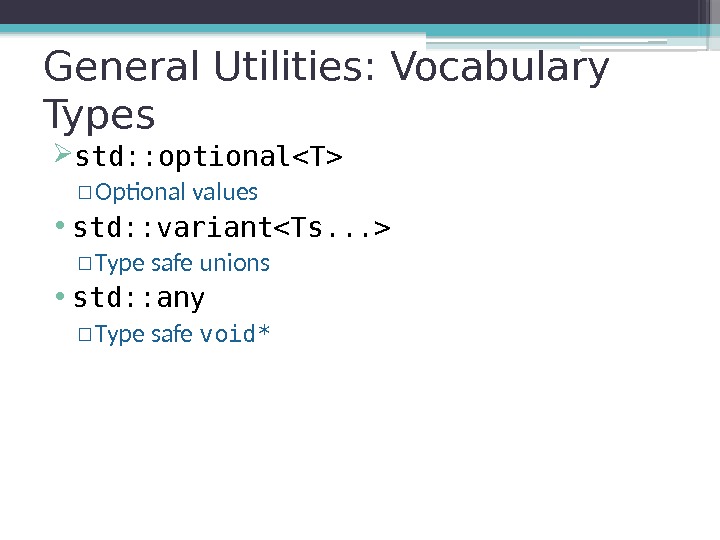
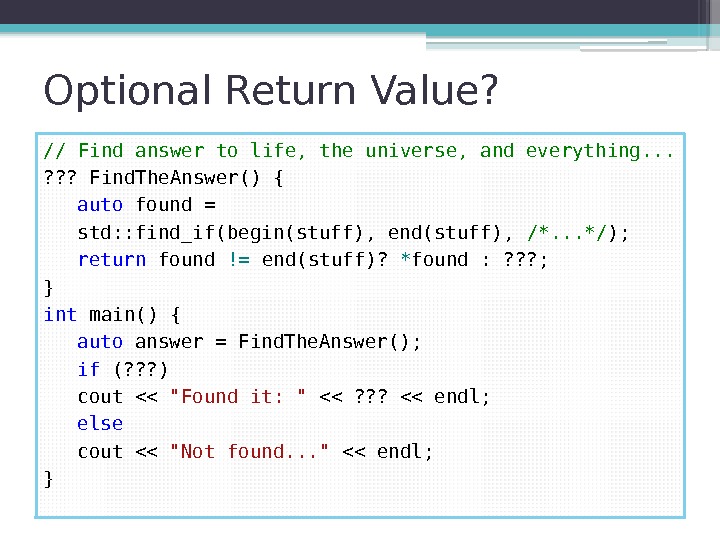
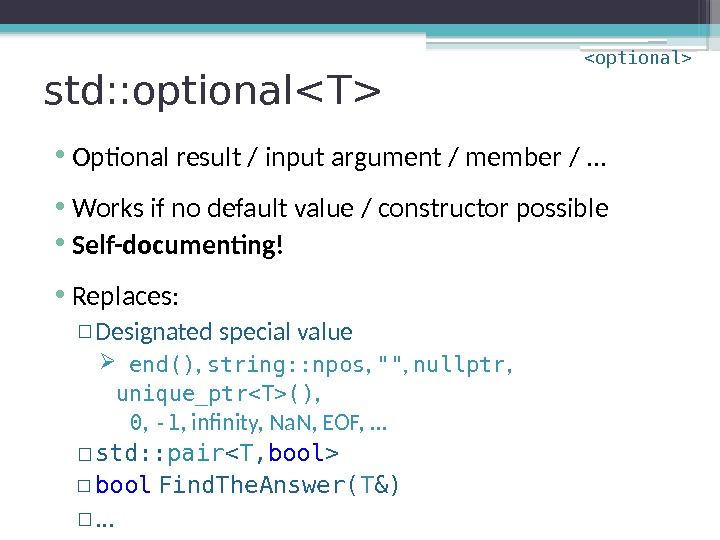
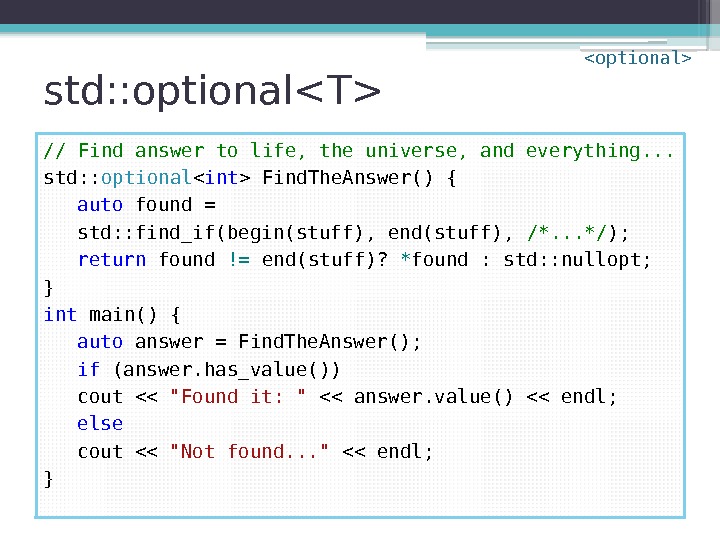
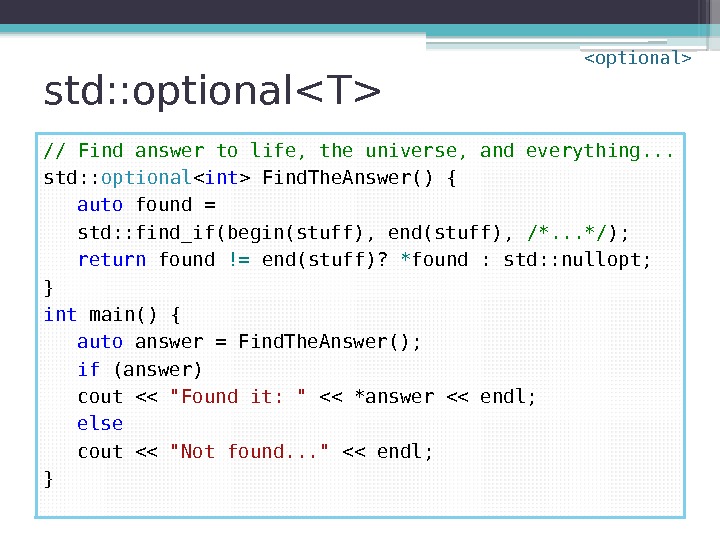
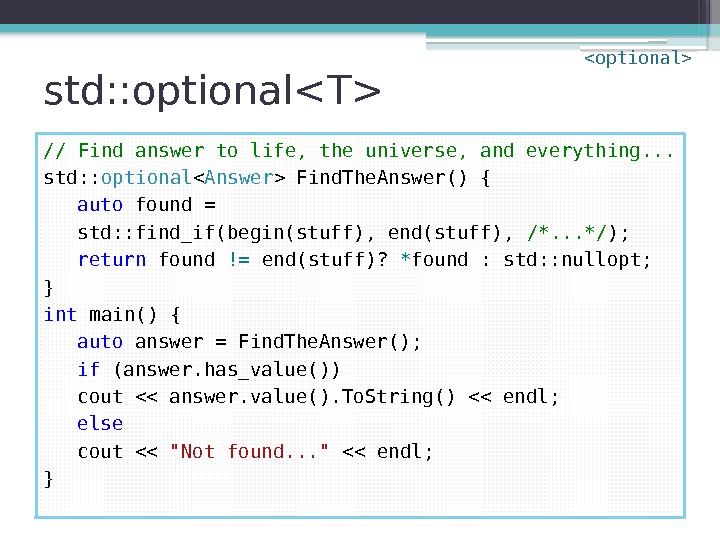
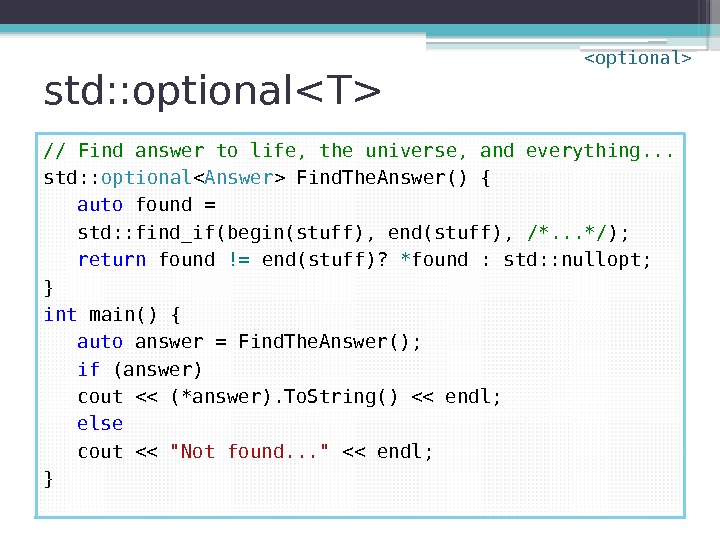
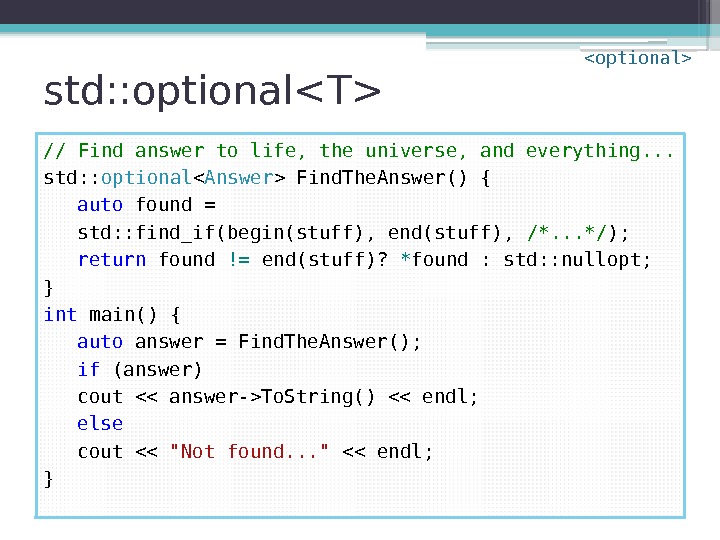
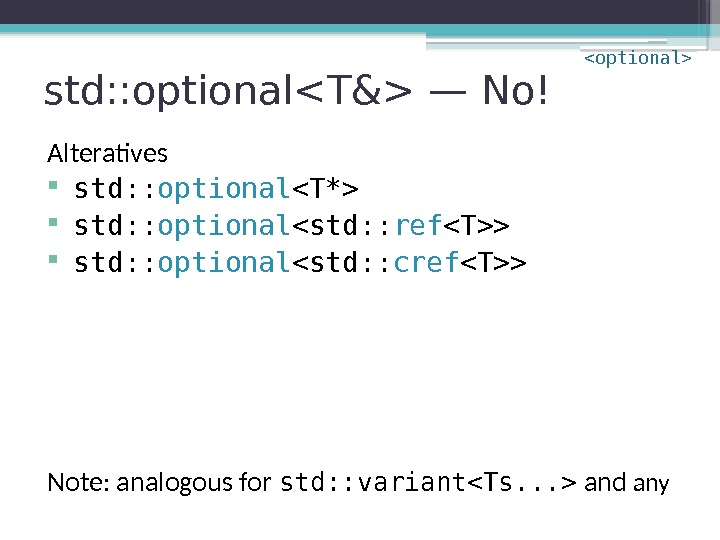


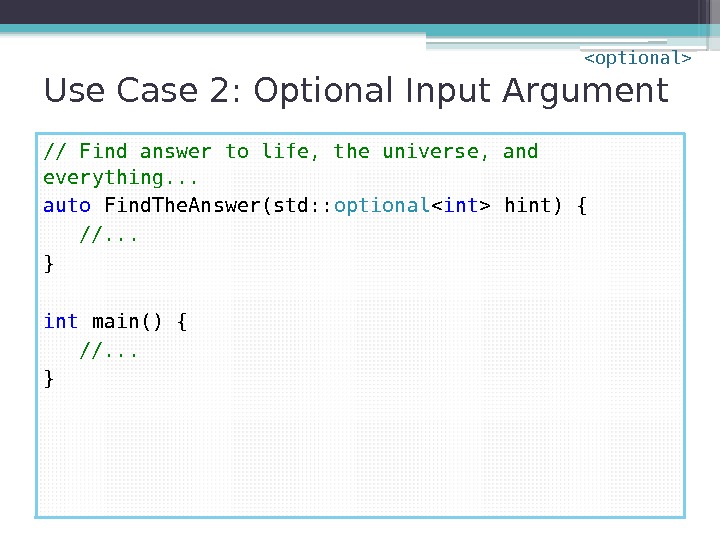
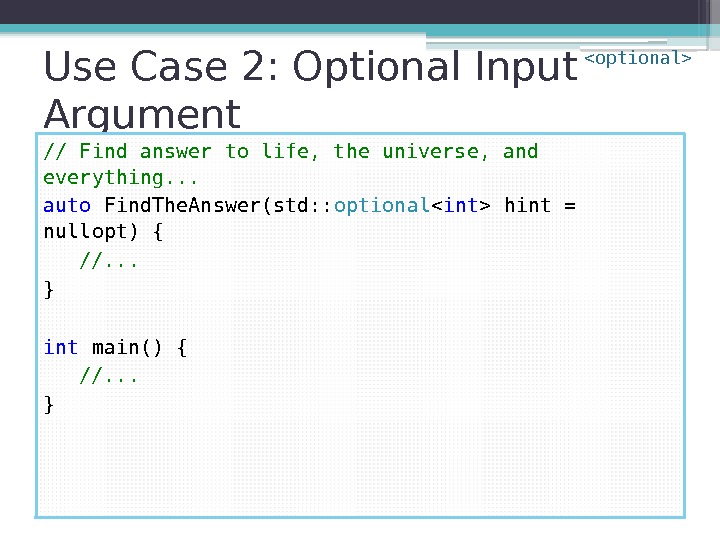
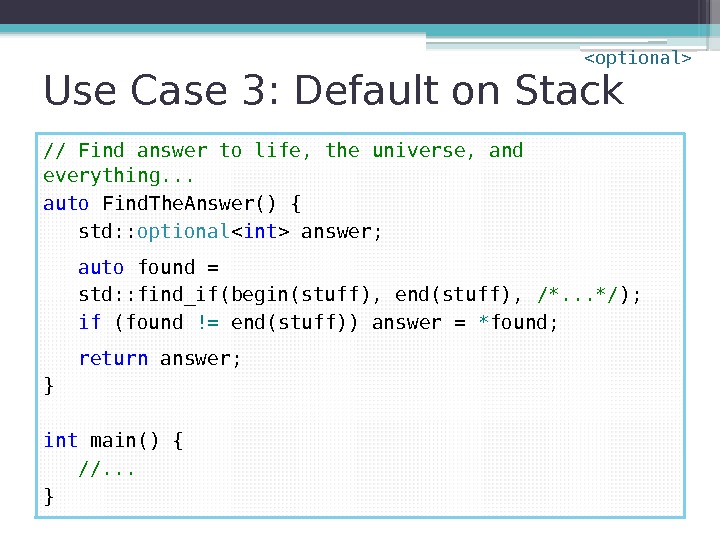
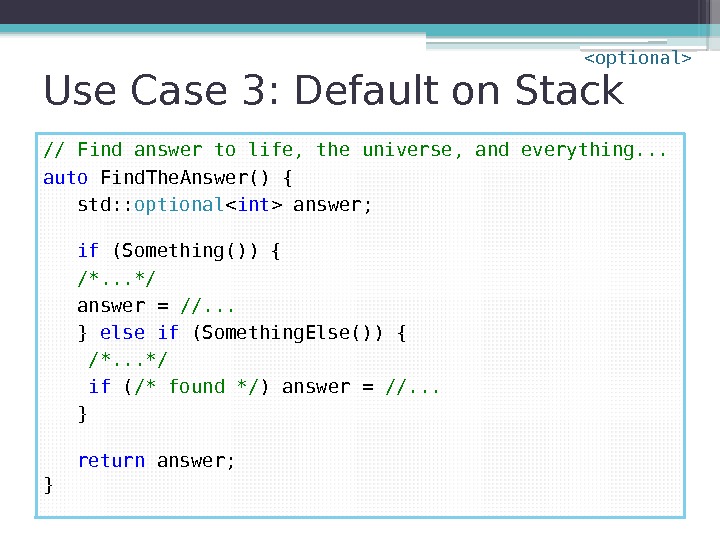
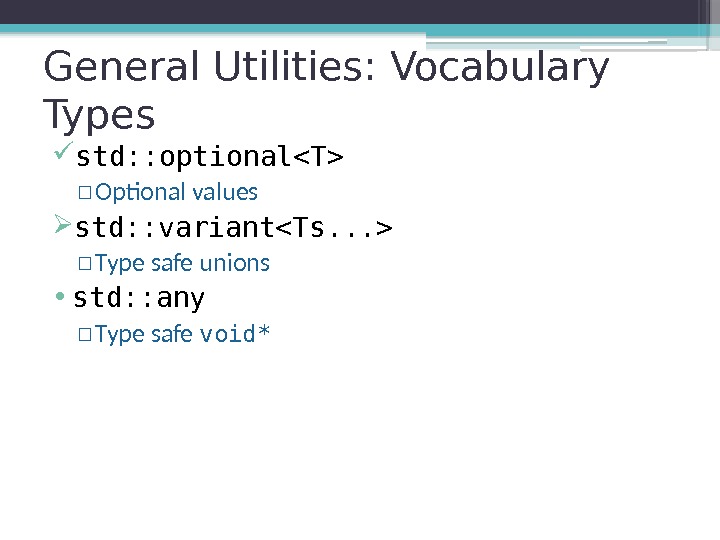
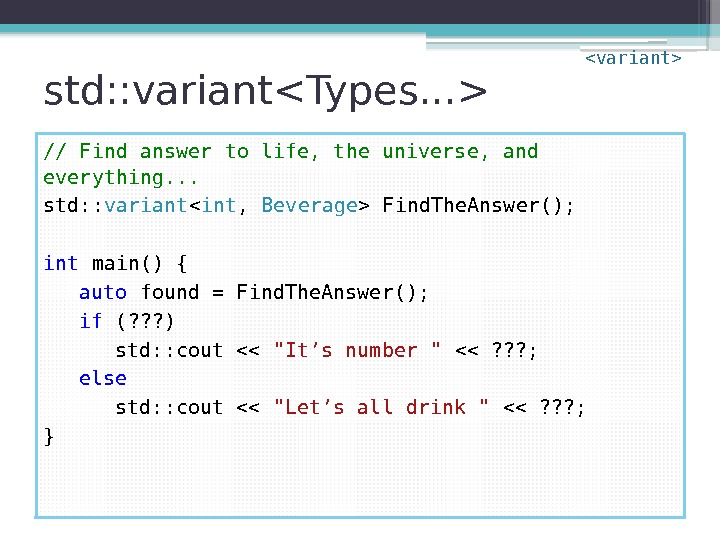
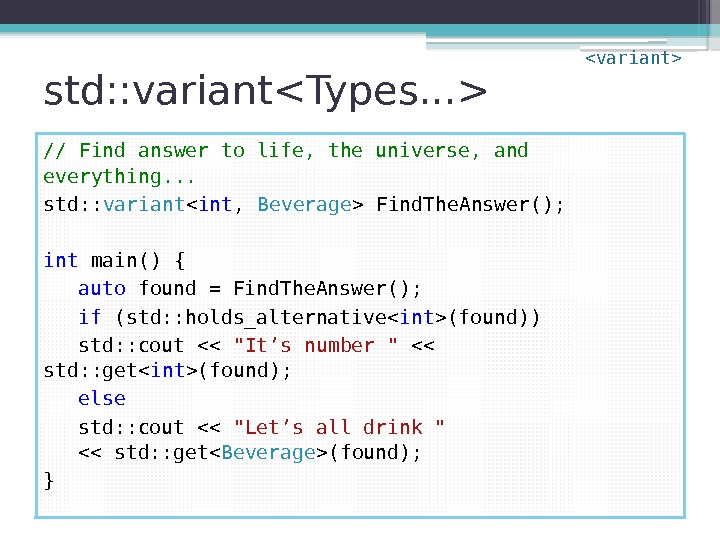
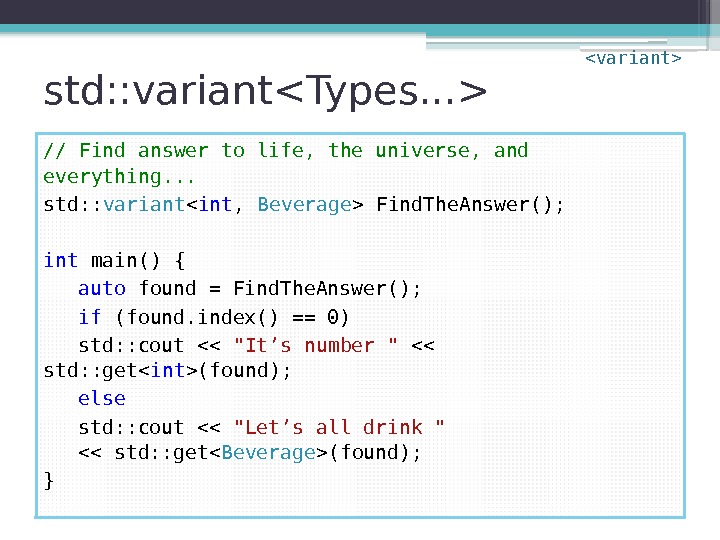
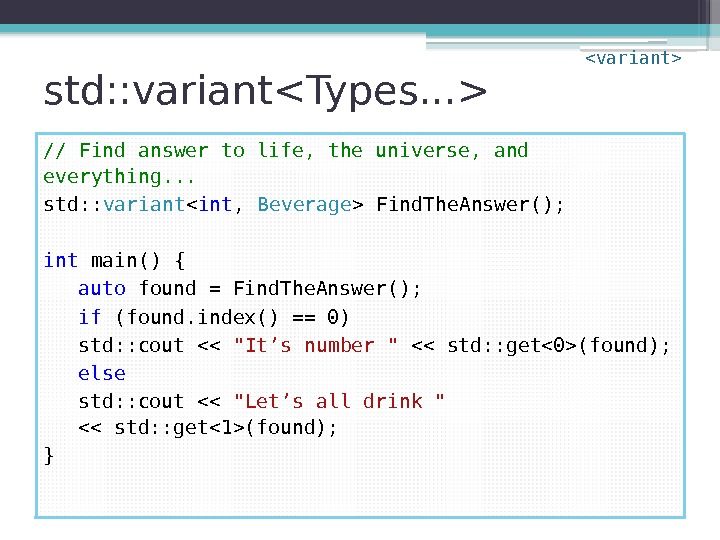
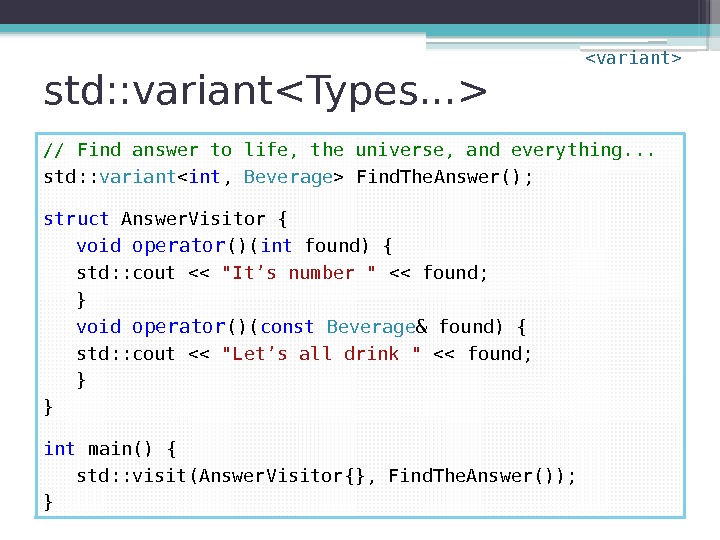
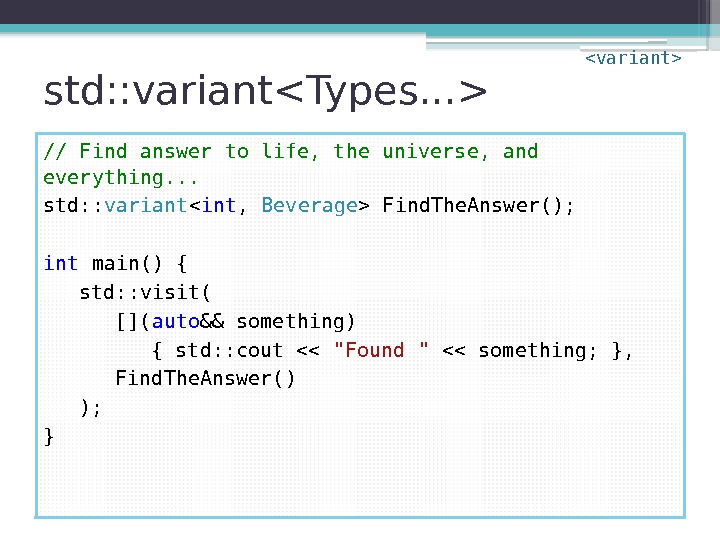
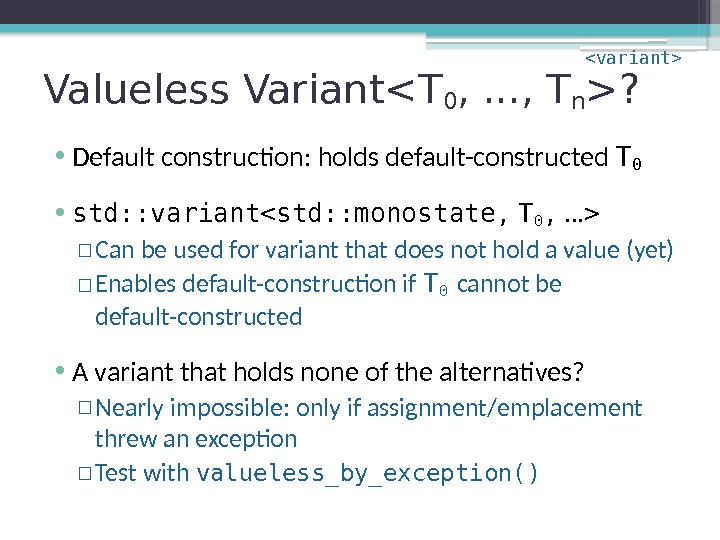

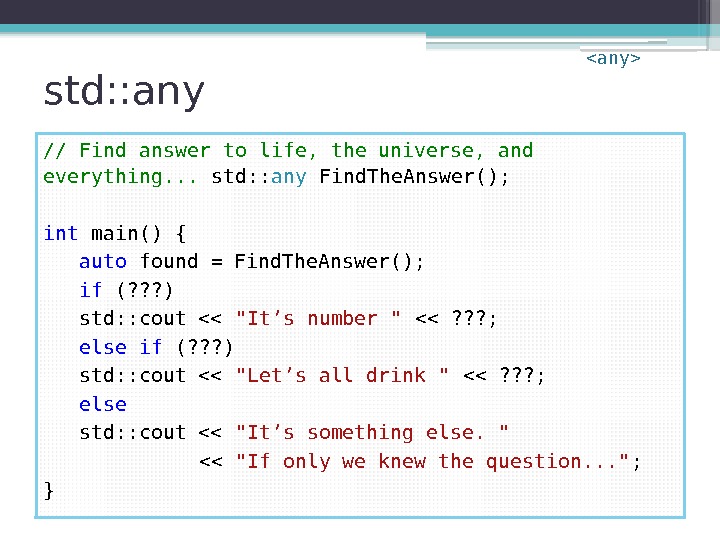
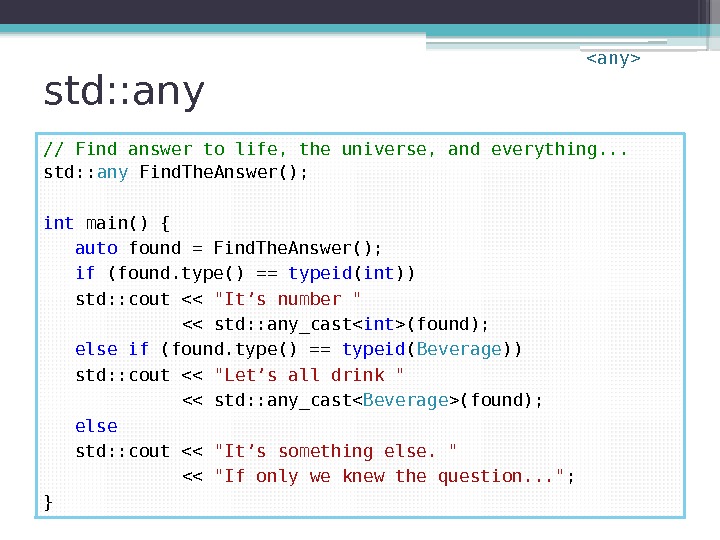
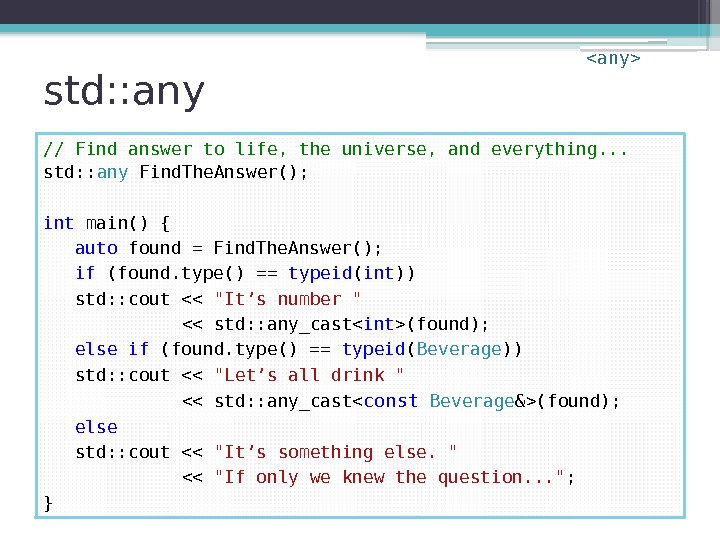
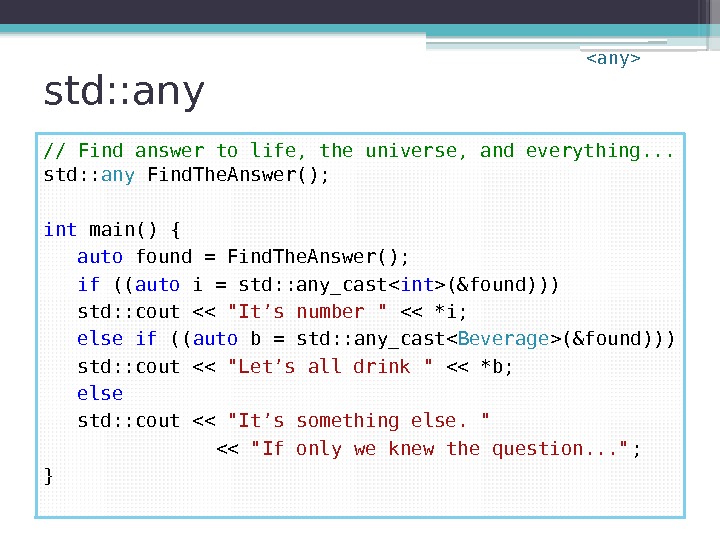
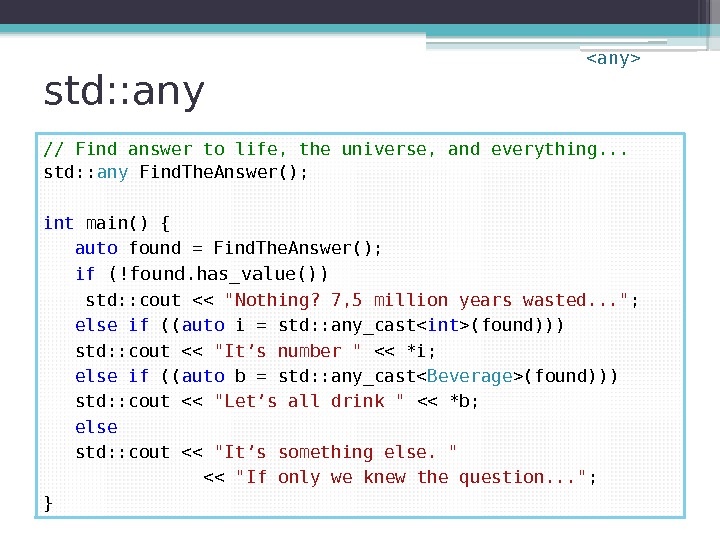

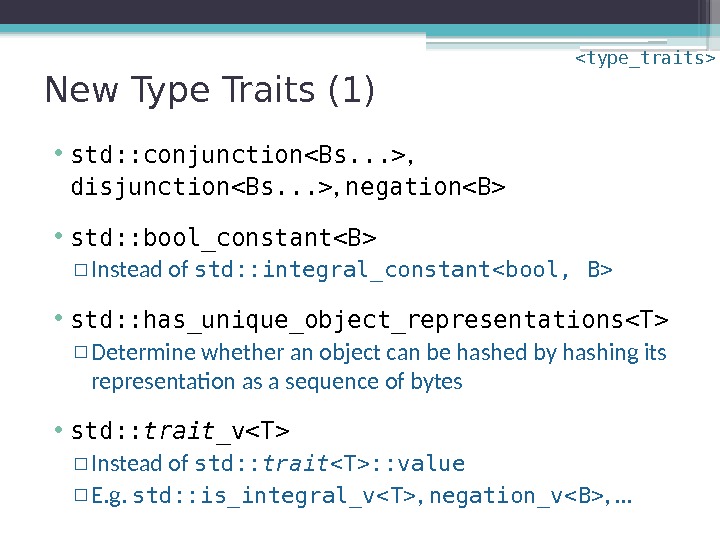
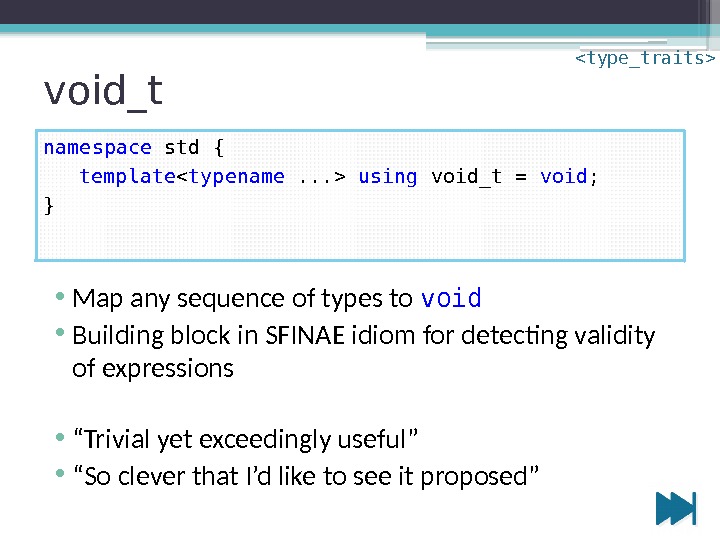
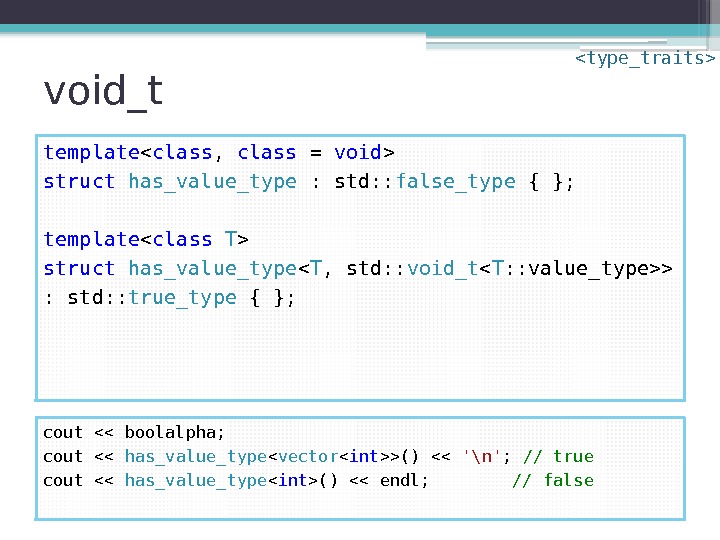
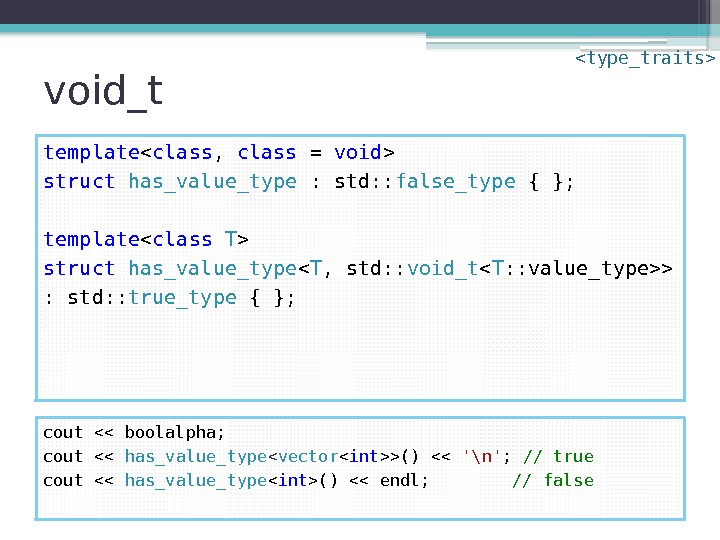
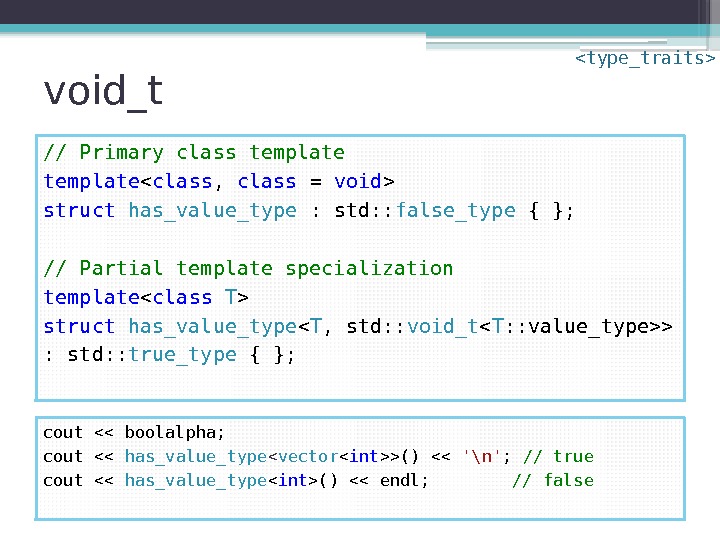
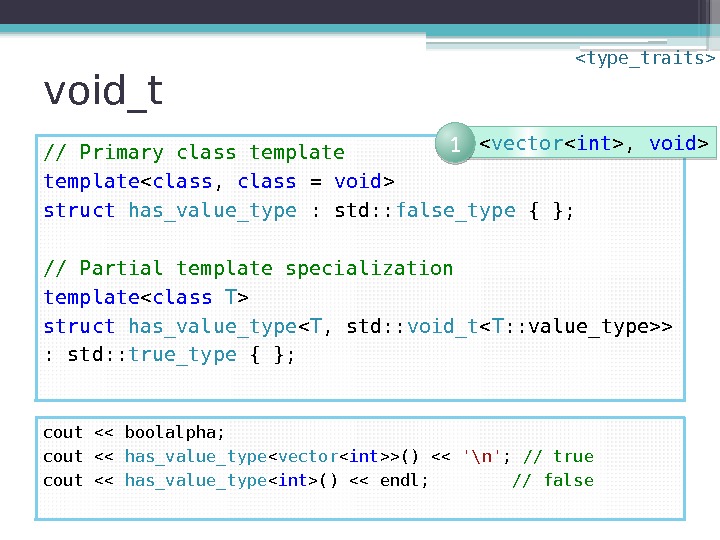
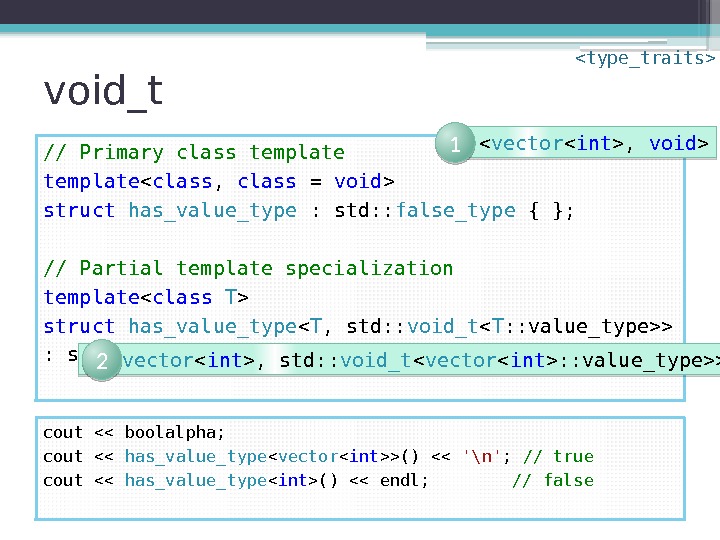
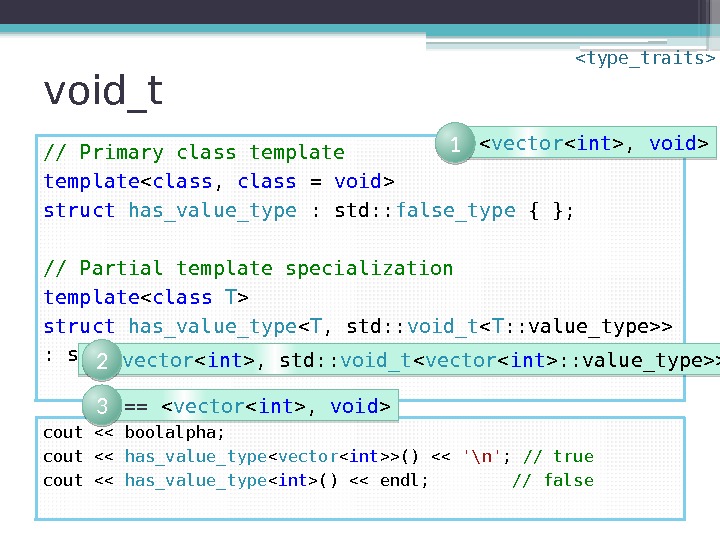
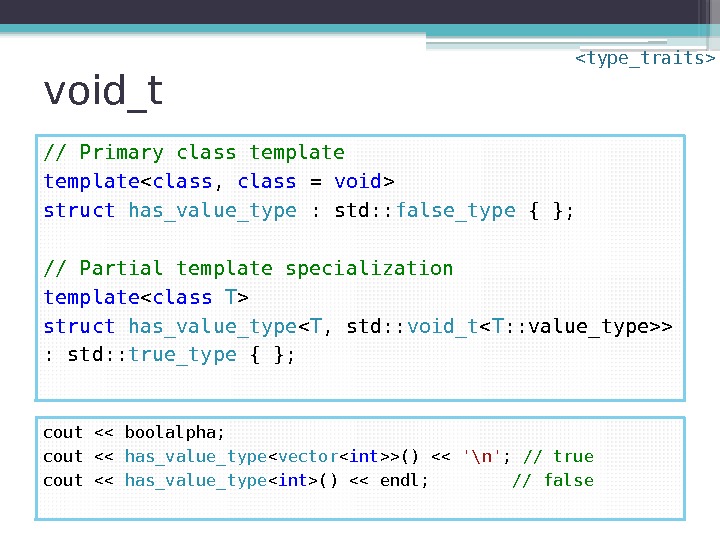
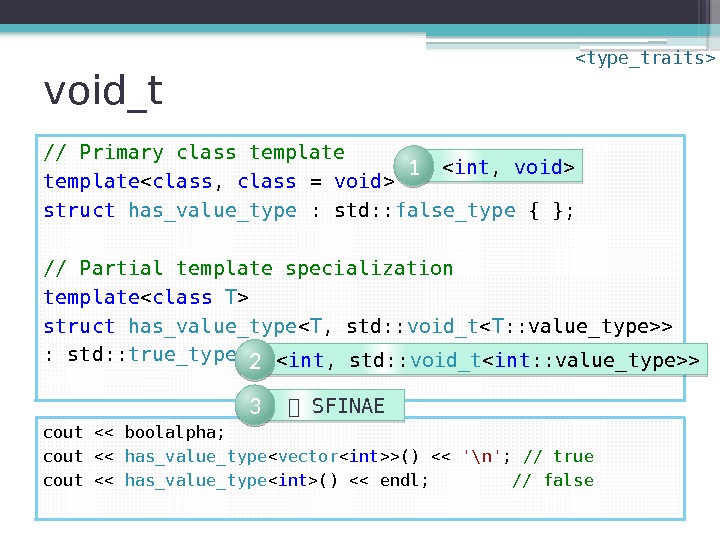
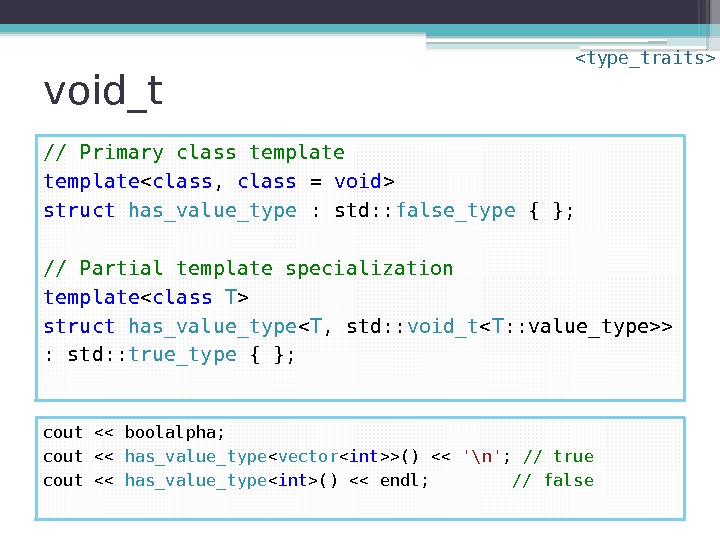
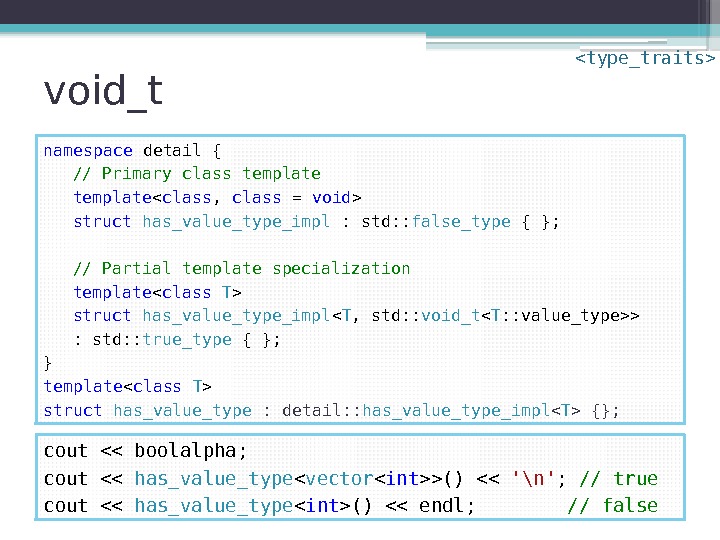
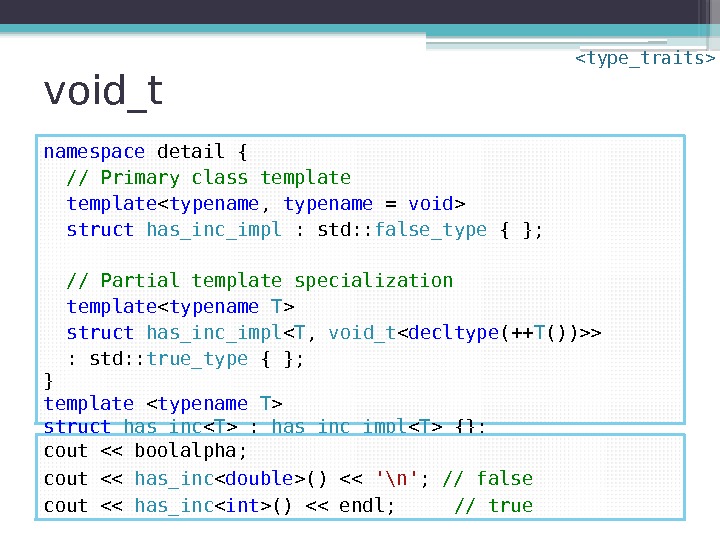
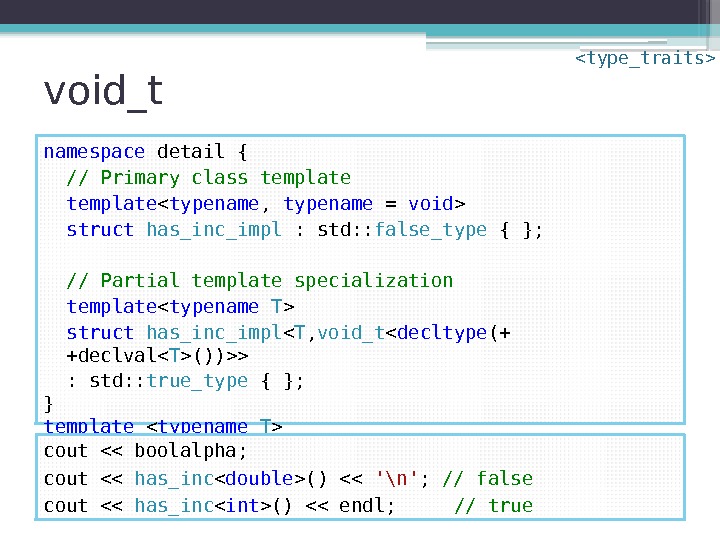
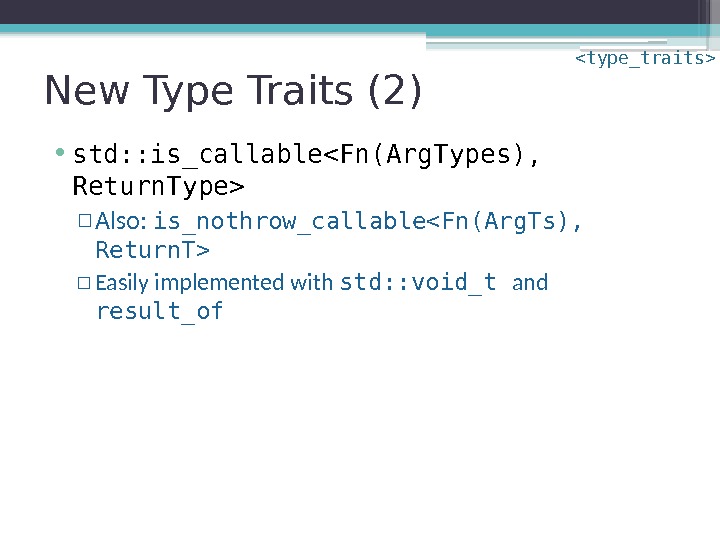

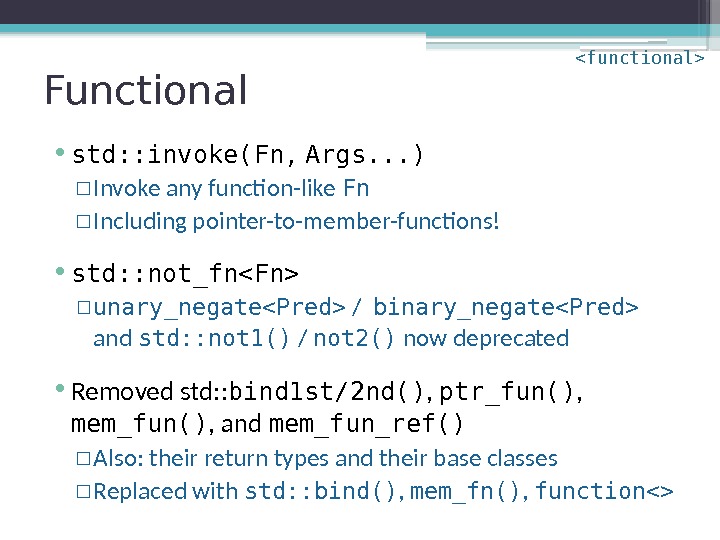
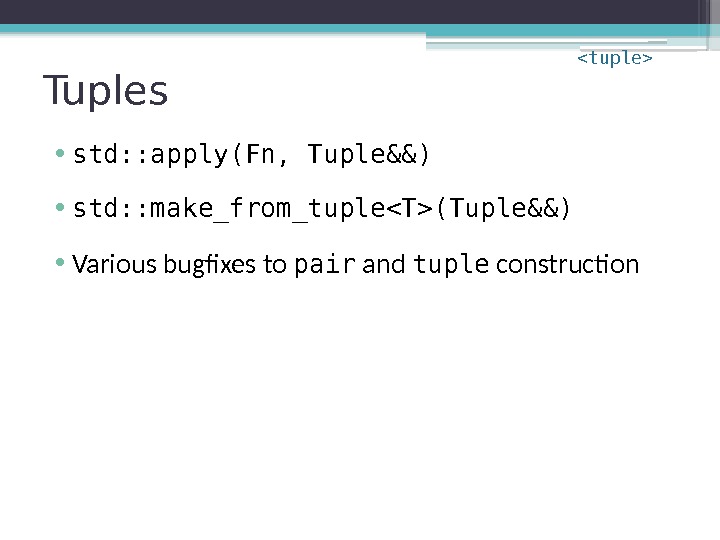
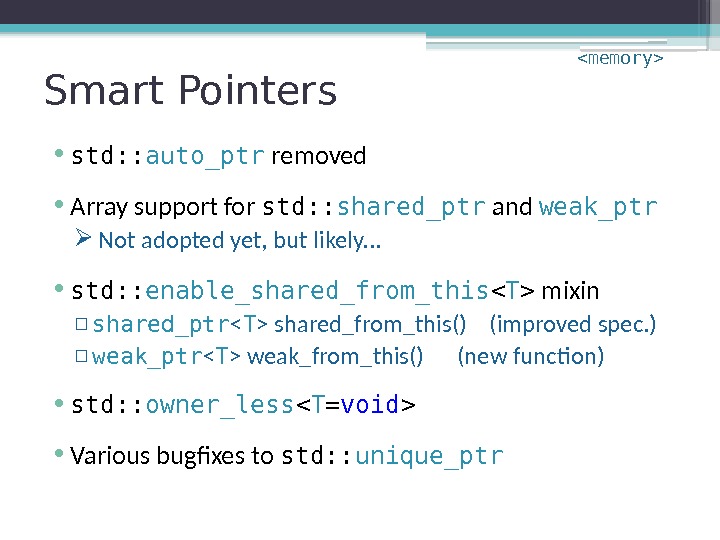
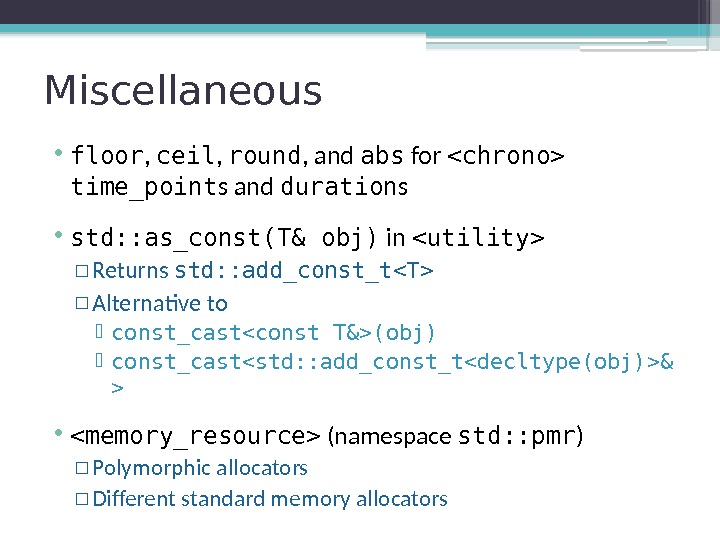
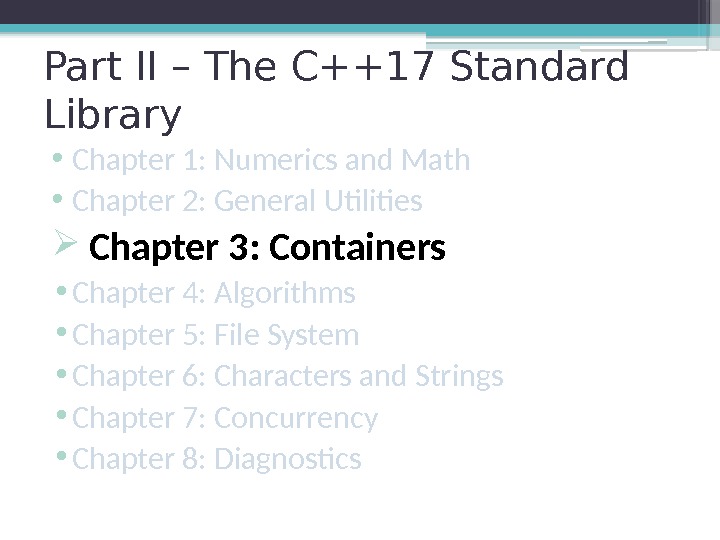

![std: : map and std: : unordered_map Over- writes Arguments []= [Key] = Val std: : map and std: : unordered_map Over- writes Arguments []= [Key] = Val](http://present5.com/presentforday2/20170321/peter-van-weert-bec17-part-ii_images/peter-van-weert-bec17-part-ii_71.jpg)
![std: : map and std: : unordered_map Over- writes Arguments []= [Key] = Val std: : map and std: : unordered_map Over- writes Arguments []= [Key] = Val](http://present5.com/presentforday2/20170321/peter-van-weert-bec17-part-ii_images/peter-van-weert-bec17-part-ii_72.jpg)
![std: : map and std: : unordered_map Over- writes Arguments []= Yes [Key] = std: : map and std: : unordered_map Over- writes Arguments []= Yes [Key] =](http://present5.com/presentforday2/20170321/peter-van-weert-bec17-part-ii_images/peter-van-weert-bec17-part-ii_73.jpg)
![std: : map and std: : unordered_map Over- writes Arguments []= Yes [Key] = std: : map and std: : unordered_map Over- writes Arguments []= Yes [Key] =](http://present5.com/presentforday2/20170321/peter-van-weert-bec17-part-ii_images/peter-van-weert-bec17-part-ii_74.jpg)
![std: : map and std: : unordered_map Over- writes Arguments []= Yes [Key] = std: : map and std: : unordered_map Over- writes Arguments []= Yes [Key] =](http://present5.com/presentforday2/20170321/peter-van-weert-bec17-part-ii_images/peter-van-weert-bec17-part-ii_75.jpg)
![std: : map and std: : unordered_map Over- writes Steals Arguments []= Yes N/A std: : map and std: : unordered_map Over- writes Steals Arguments []= Yes N/A](http://present5.com/presentforday2/20170321/peter-van-weert-bec17-part-ii_images/peter-van-weert-bec17-part-ii_76.jpg)

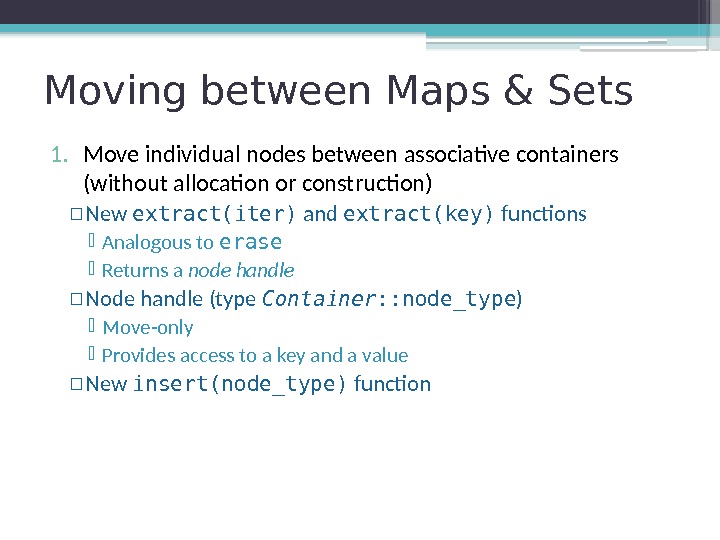
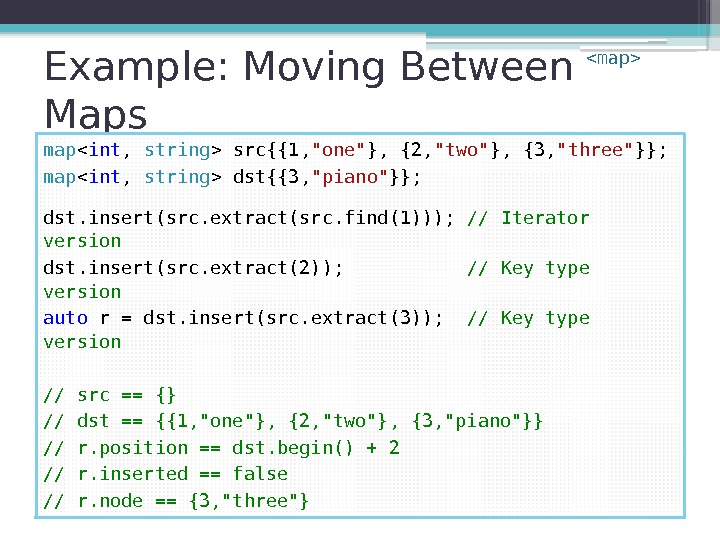
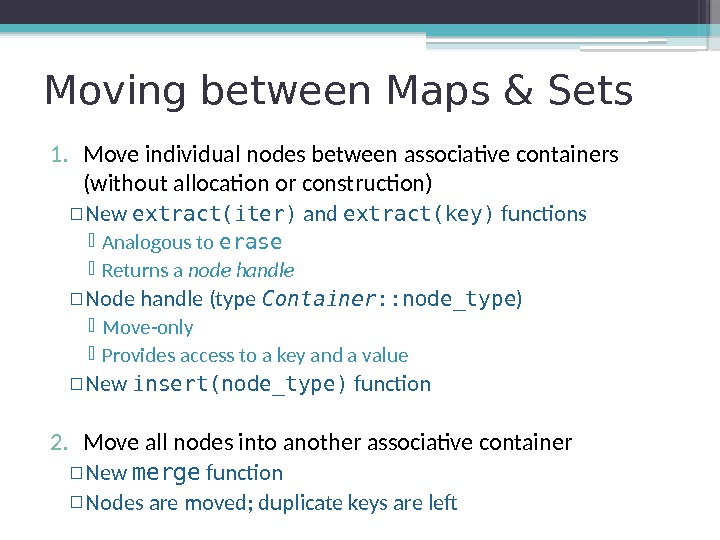
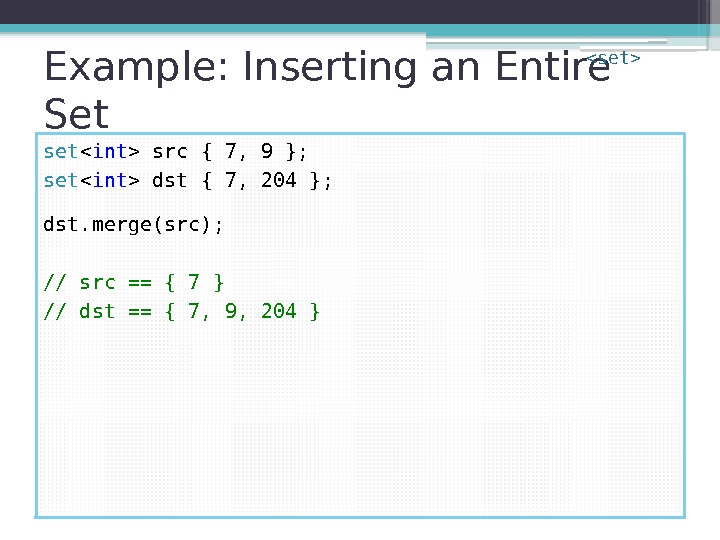

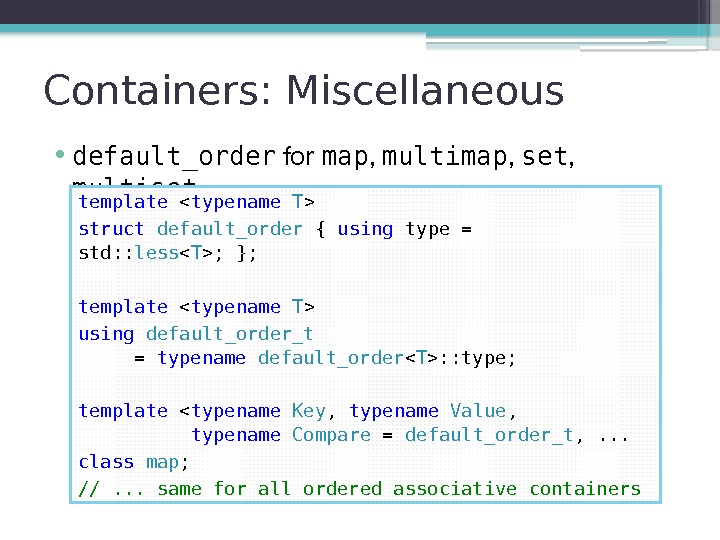
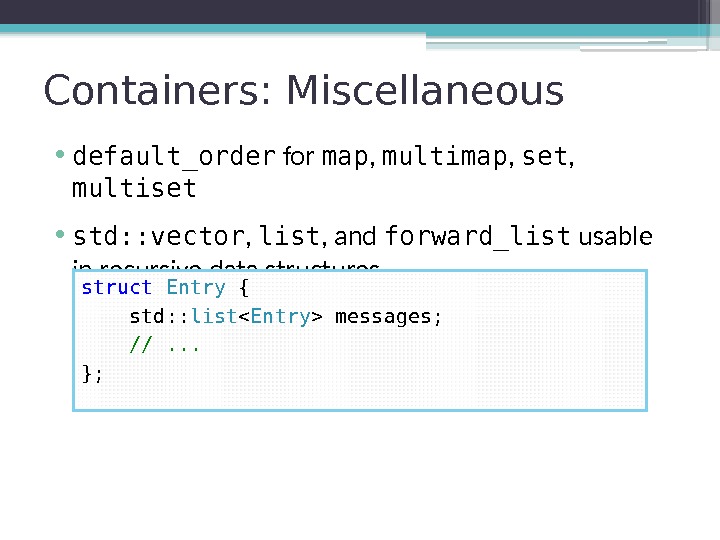
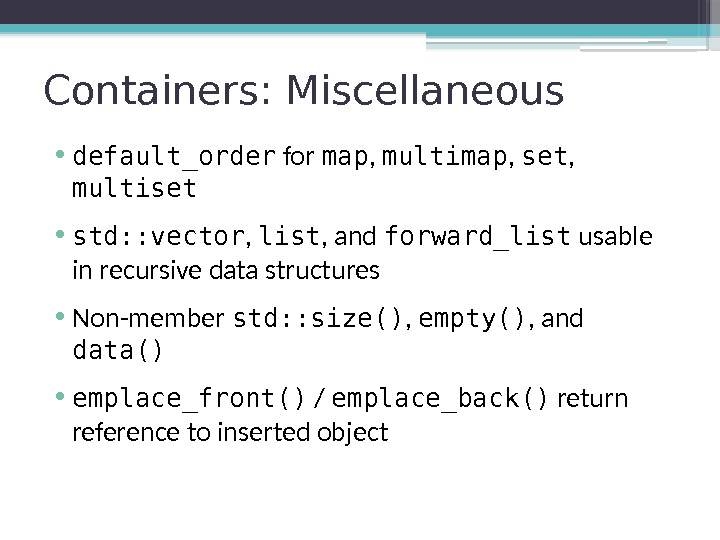
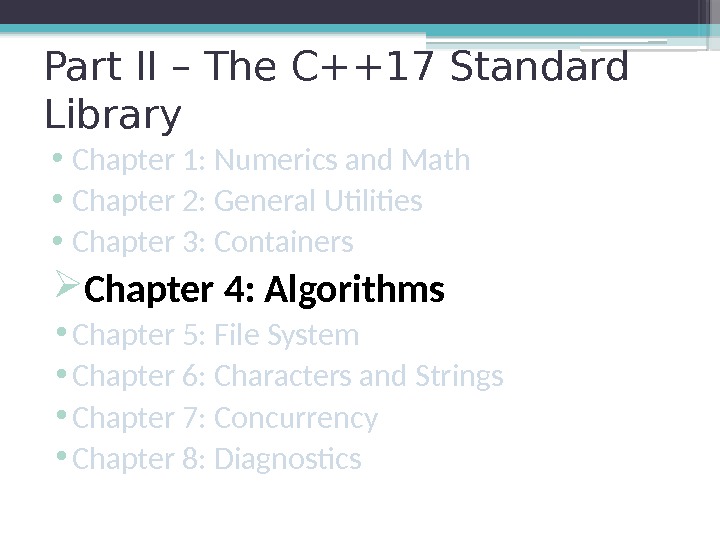

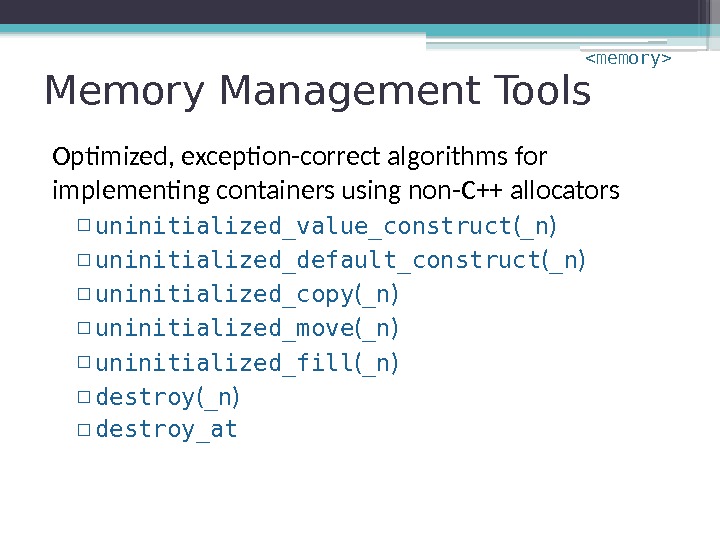

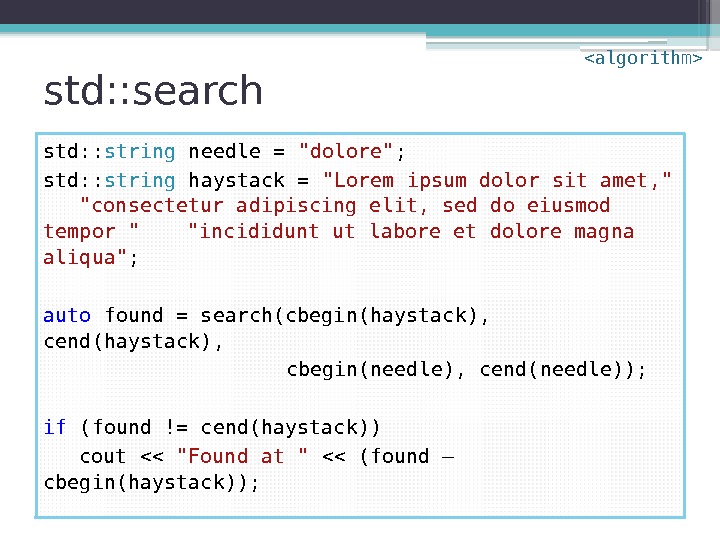
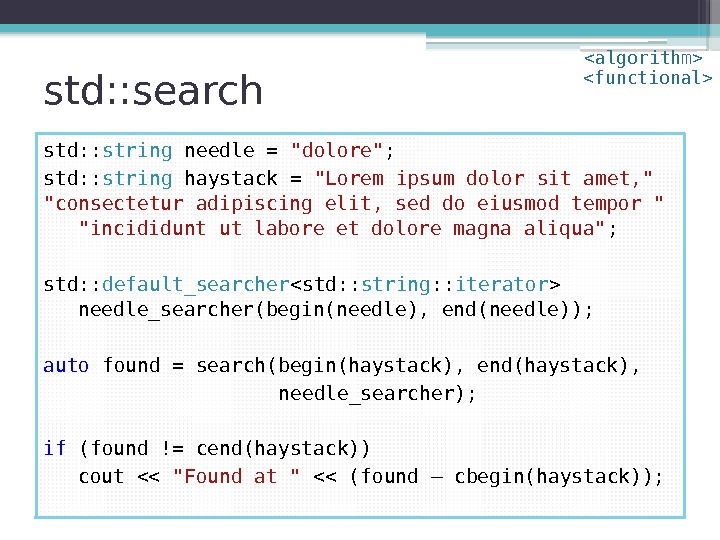
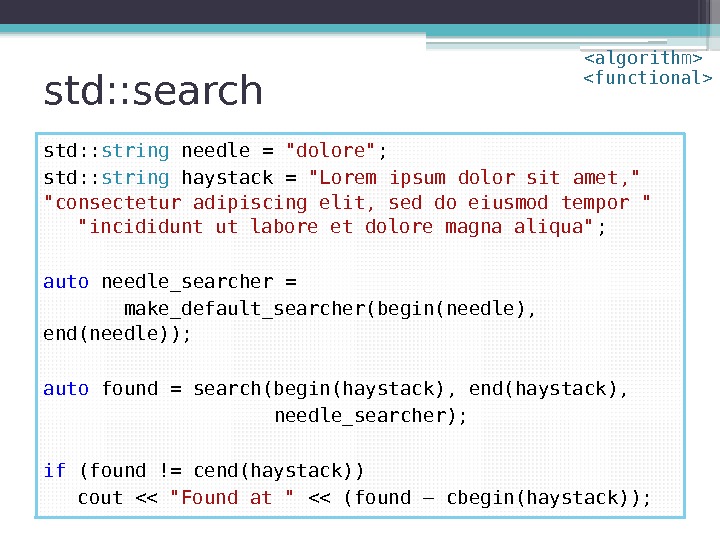
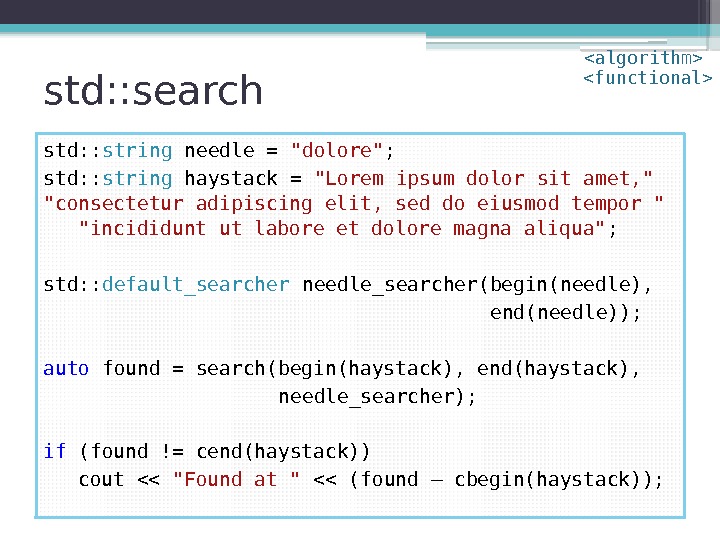
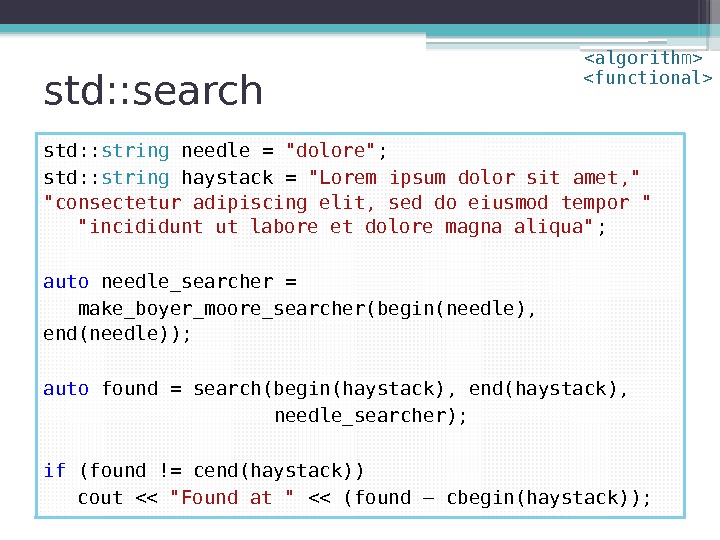
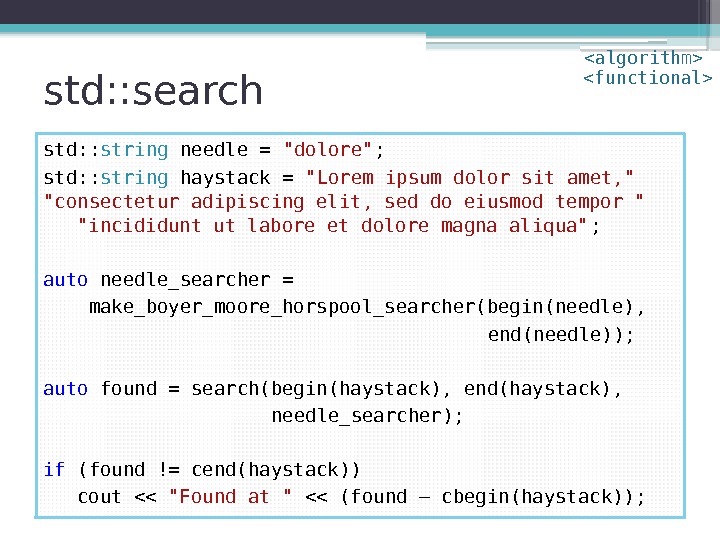

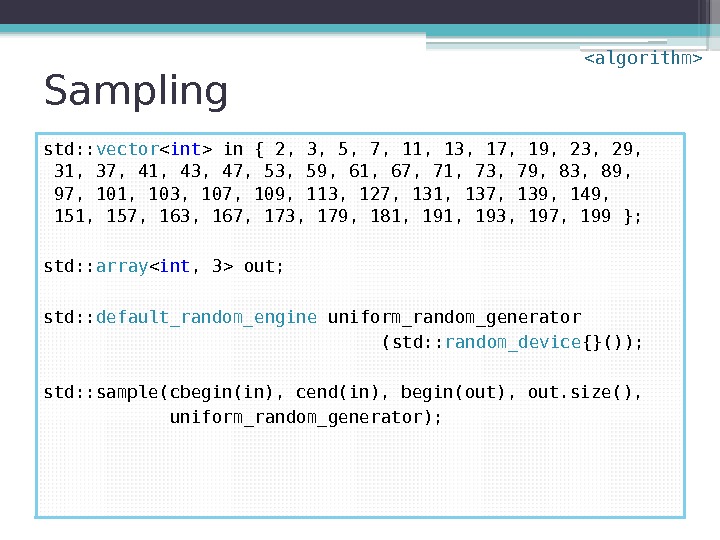

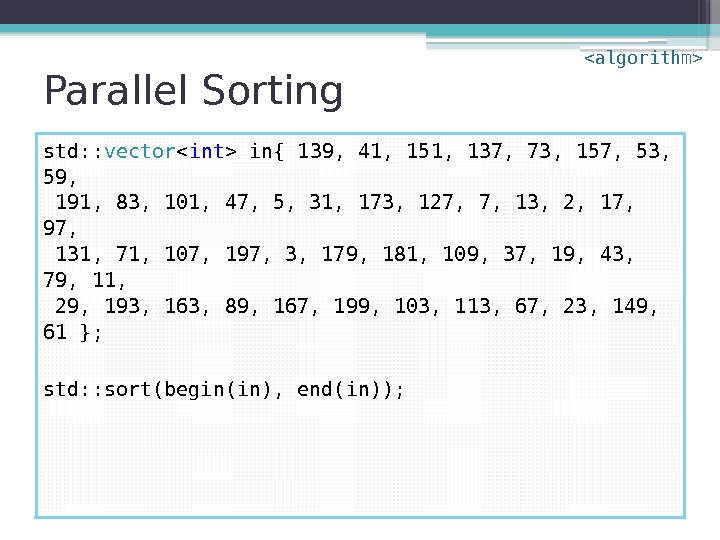
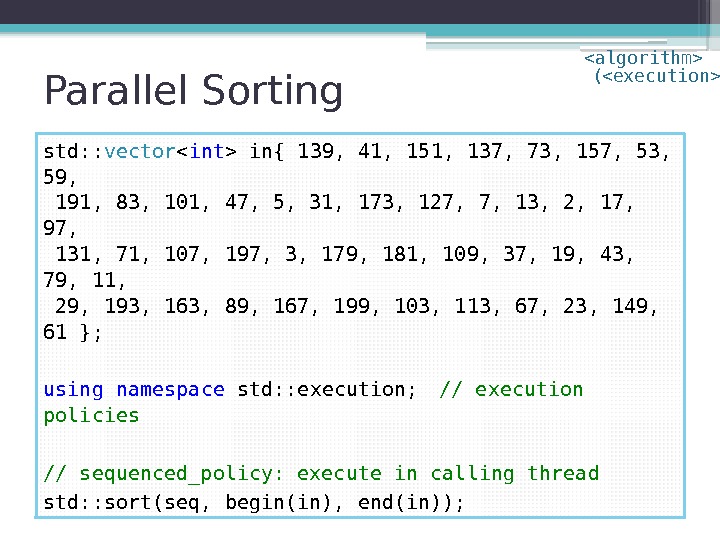
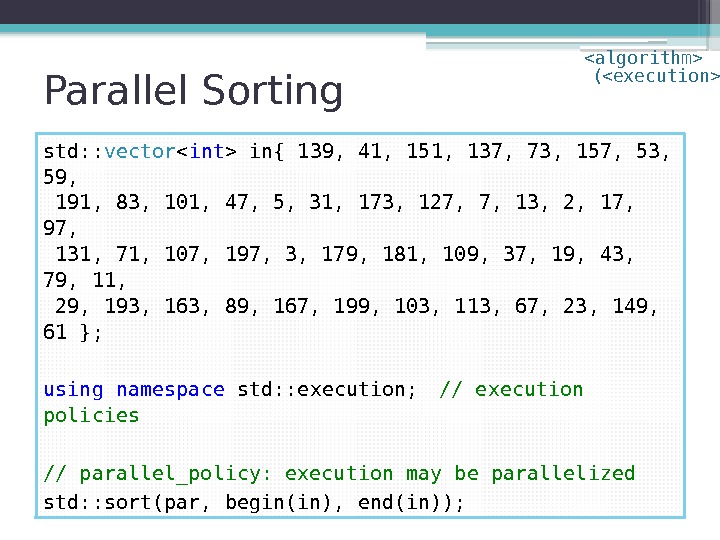
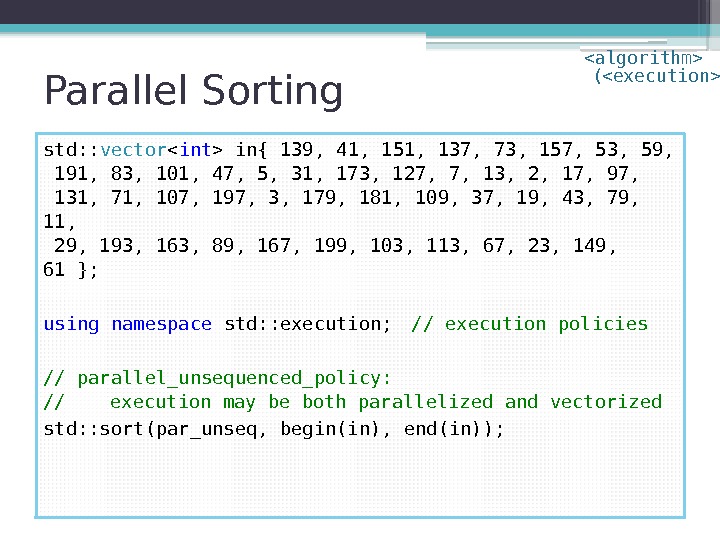
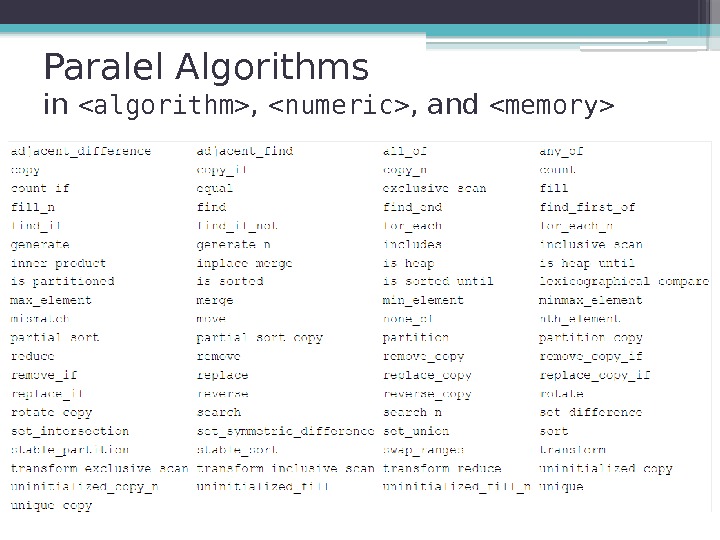
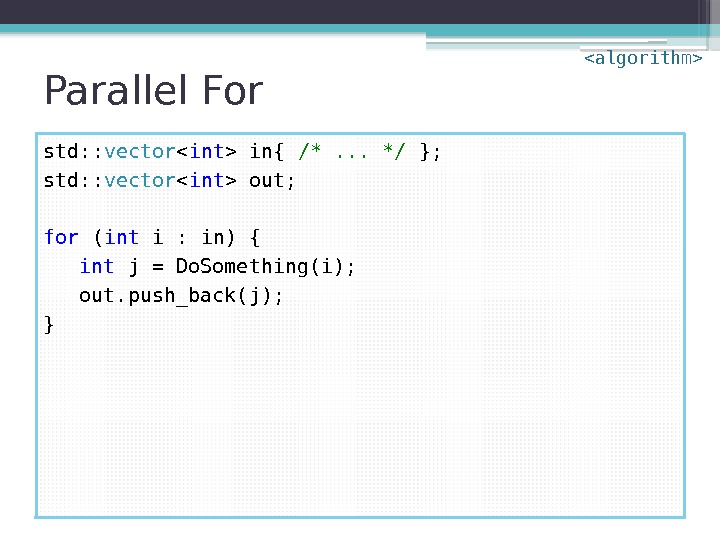
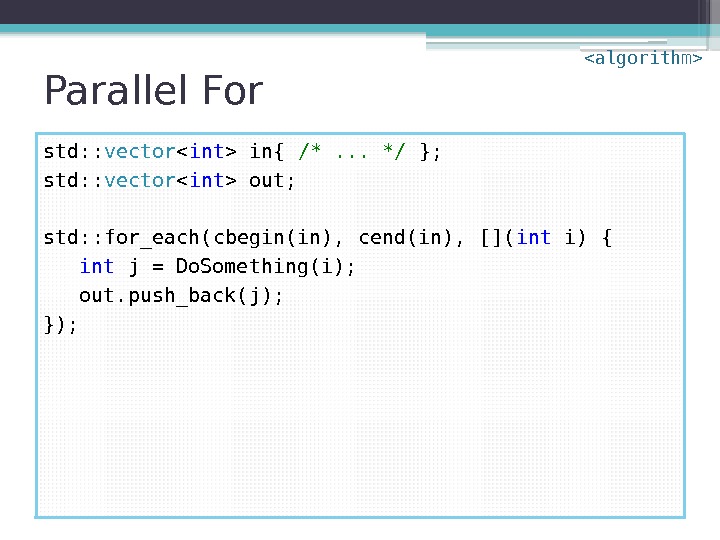
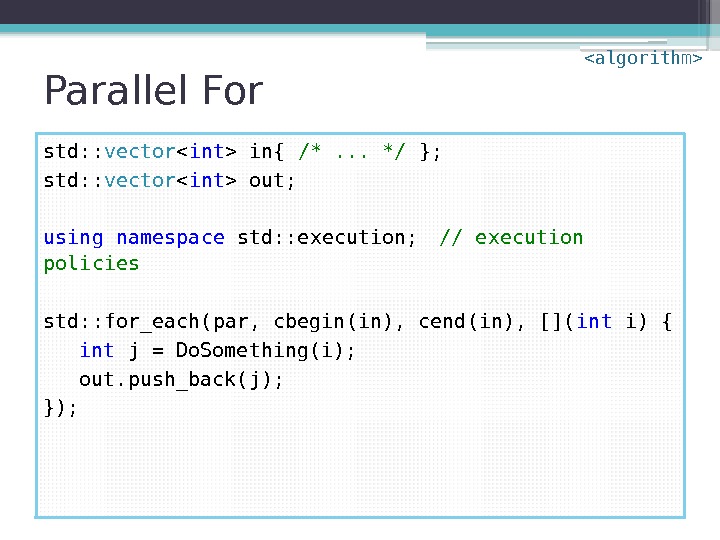
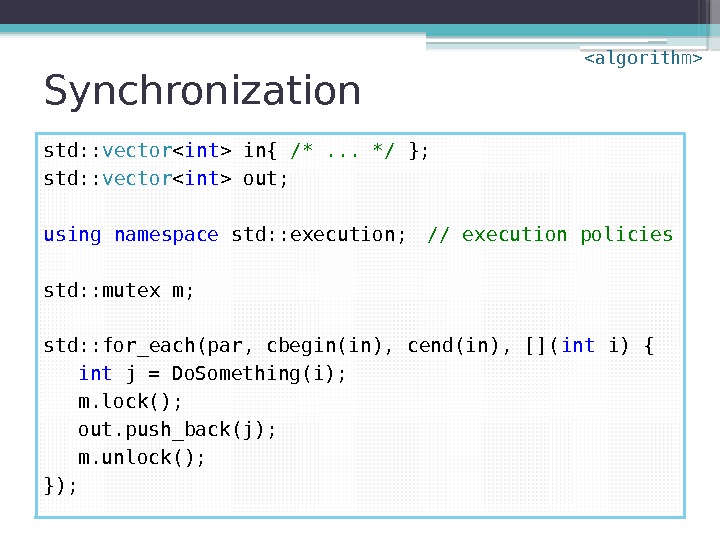
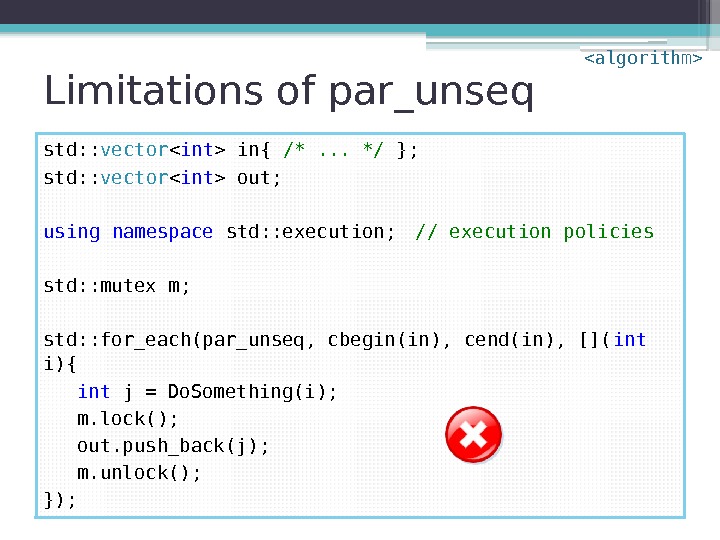
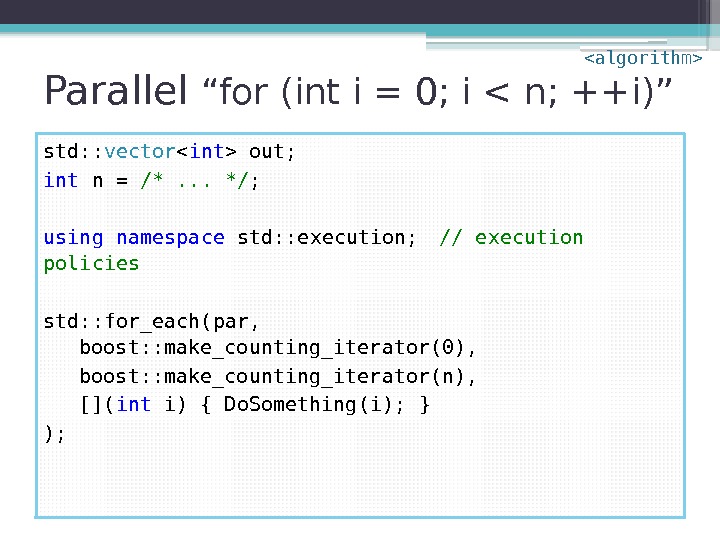
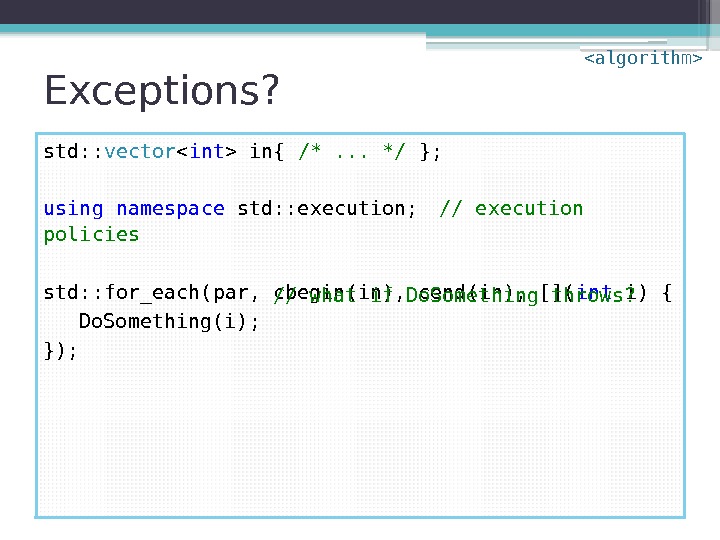
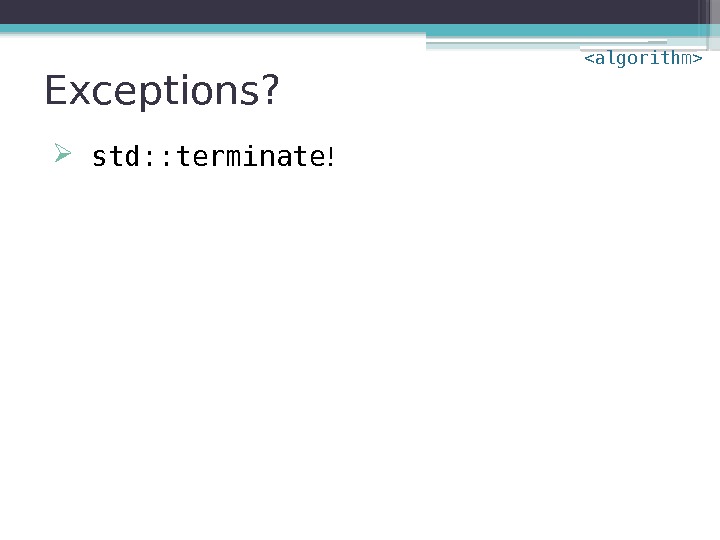
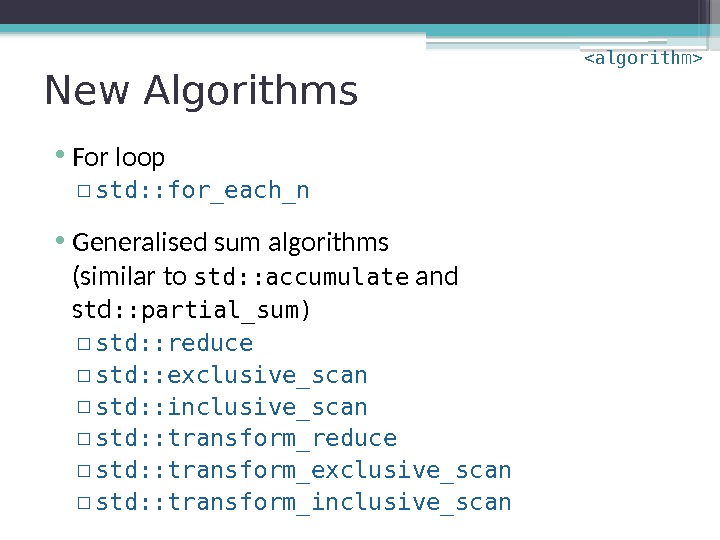
![for_each_n([Exec. Policy], Iter, N, Func) == for_each([Exec. Policy], Iter, 1 for_each_n([Exec. Policy], Iter, N, Func) == for_each([Exec. Policy], Iter, 1](http://present5.com/presentforday2/20170321/peter-van-weert-bec17-part-ii_images/peter-van-weert-bec17-part-ii_113.jpg)
![Generalised Sums: Reduce accumulate(, , []) reduce([Policy], , , []) • Generalised Sums: Reduce accumulate(, , []) reduce([Policy], , , []) •](http://present5.com/presentforday2/20170321/peter-van-weert-bec17-part-ii_images/peter-van-weert-bec17-part-ii_114.jpg)
![Generalised Sums: Reduce transform_reduce([Policy], , , , , ) • Generalised Sums: Reduce transform_reduce([Policy], , , , , ) •](http://present5.com/presentforday2/20170321/peter-van-weert-bec17-part-ii_images/peter-van-weert-bec17-part-ii_115.jpg)
![Generalised Sums: Scans partial_sum(, , , []) inclusive_scan([Pol], , , , Generalised Sums: Scans partial_sum(, , , []) inclusive_scan([Pol], , , ,](http://present5.com/presentforday2/20170321/peter-van-weert-bec17-part-ii_images/peter-van-weert-bec17-part-ii_116.jpg)
![Generalised Sums: Scans partial_sum(, , , []) inclusive_scan([Pol], , , , Generalised Sums: Scans partial_sum(, , , []) inclusive_scan([Pol], , , ,](http://present5.com/presentforday2/20170321/peter-van-weert-bec17-part-ii_images/peter-van-weert-bec17-part-ii_117.jpg)
![Generalised Sums: Scans exclusive_scan([Policy], , []) • numeric Generalised Sums: Scans exclusive_scan([Policy], , []) • numeric](http://present5.com/presentforday2/20170321/peter-van-weert-bec17-part-ii_images/peter-van-weert-bec17-part-ii_118.jpg)
![Generalised Sums: Scans transform_inclusive_scan ([Policy], , []) • numeric Generalised Sums: Scans transform_inclusive_scan ([Policy], , []) • numeric](http://present5.com/presentforday2/20170321/peter-van-weert-bec17-part-ii_images/peter-van-weert-bec17-part-ii_119.jpg)
![Generalised Sums: Scans transform_exclusive_scan ([Policy], , , ) • numeric Generalised Sums: Scans transform_exclusive_scan ([Policy], , , ) • numeric](http://present5.com/presentforday2/20170321/peter-van-weert-bec17-part-ii_images/peter-van-weert-bec17-part-ii_120.jpg)
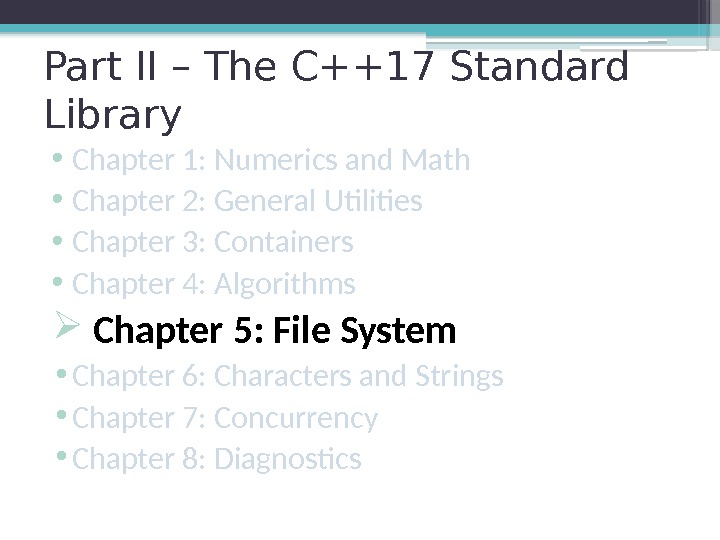
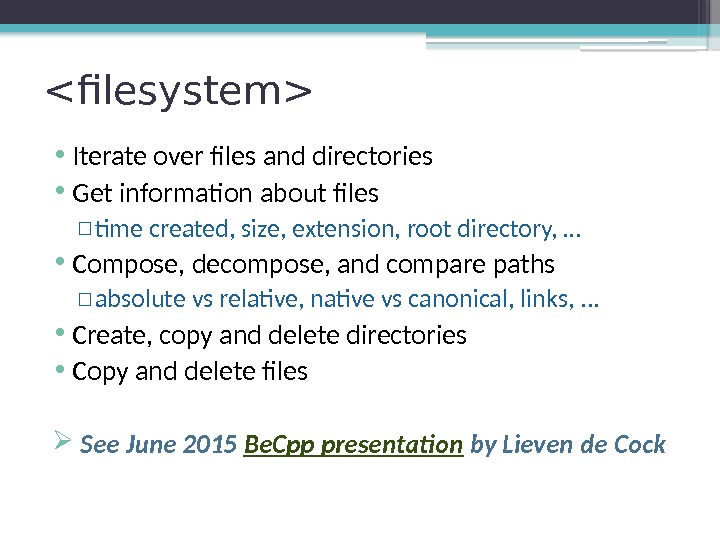
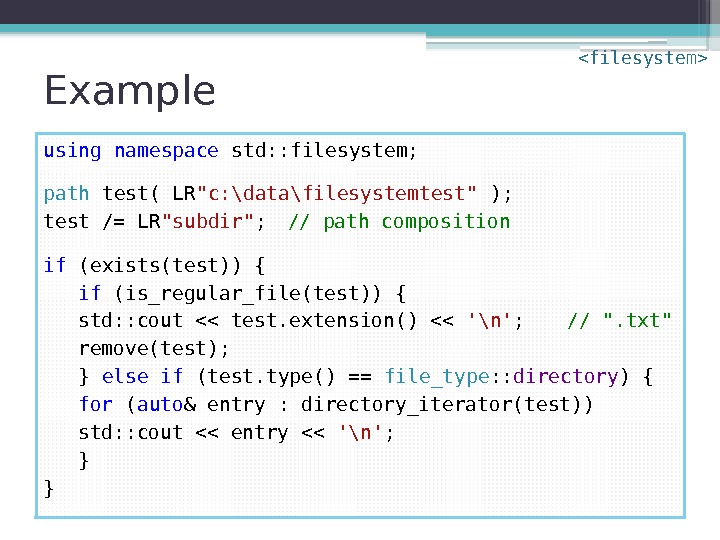
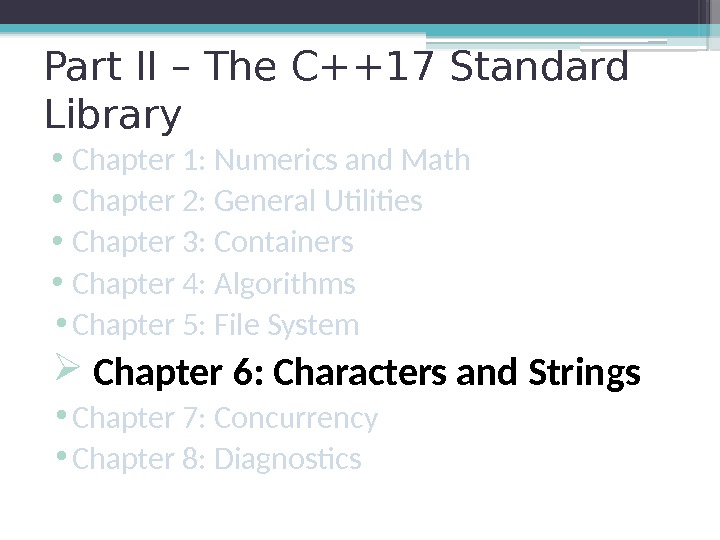

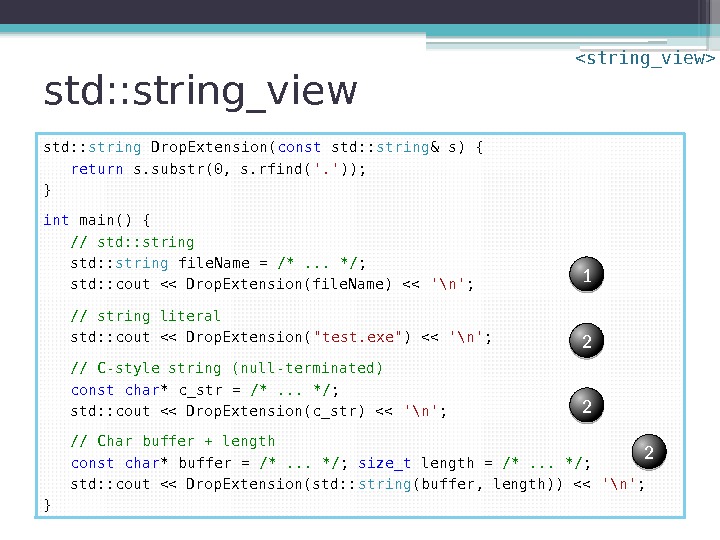
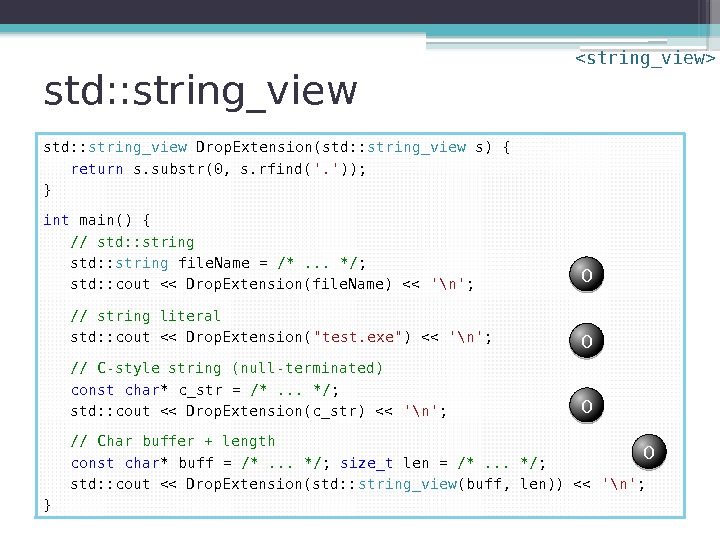
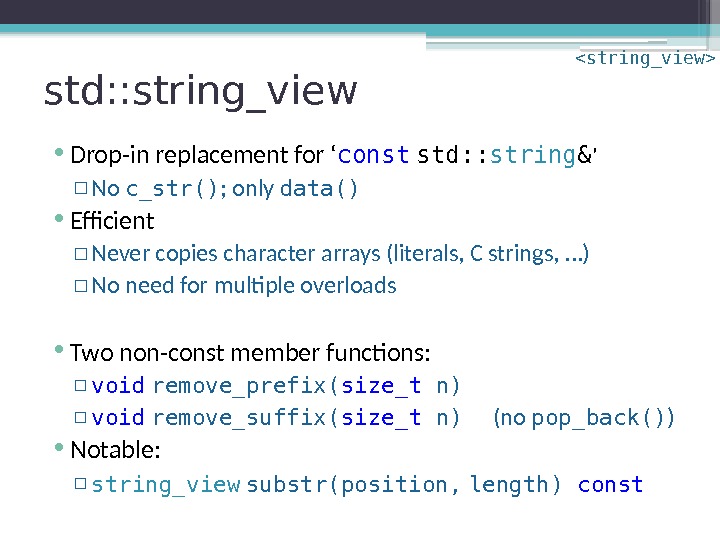
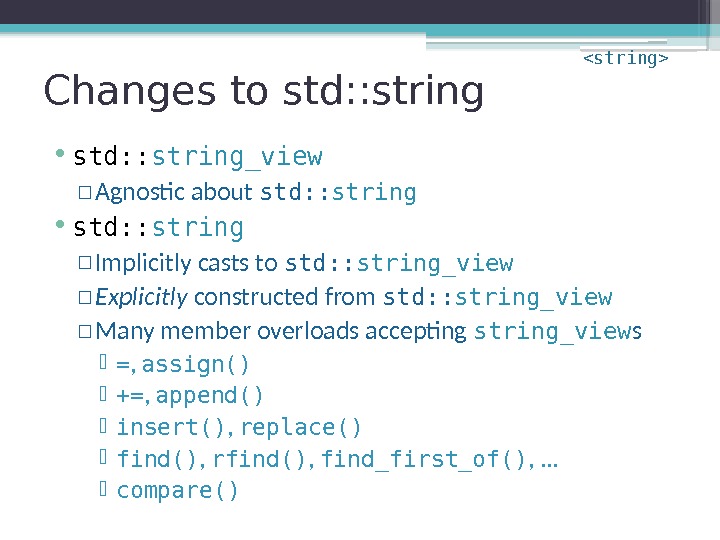
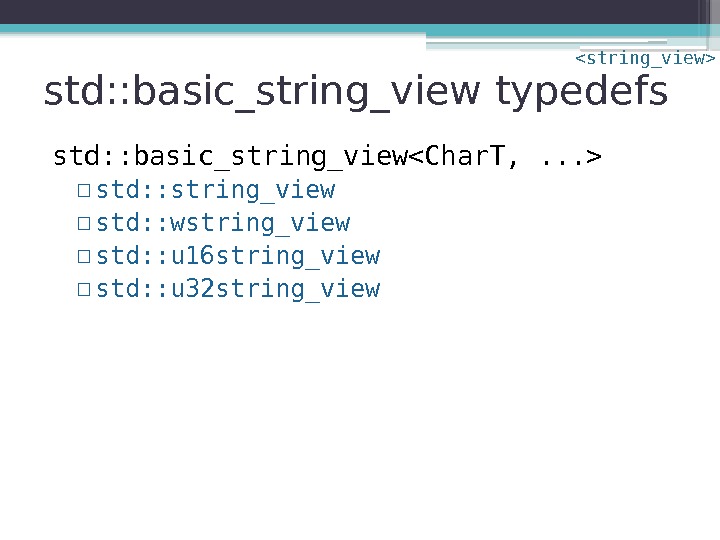

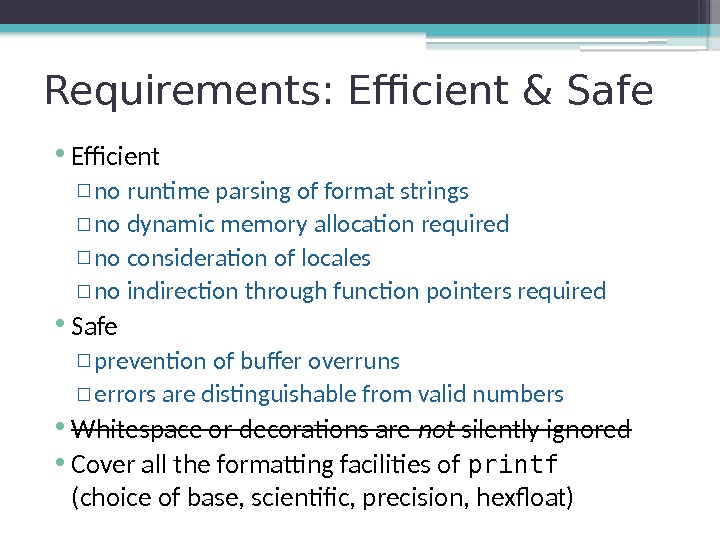
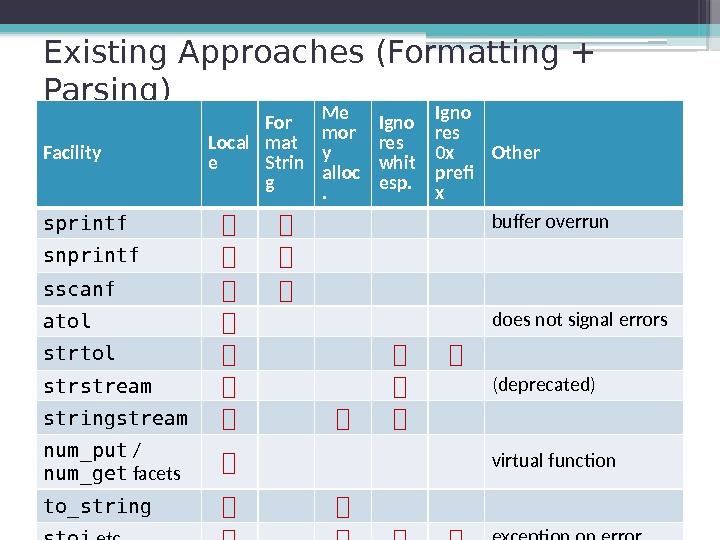
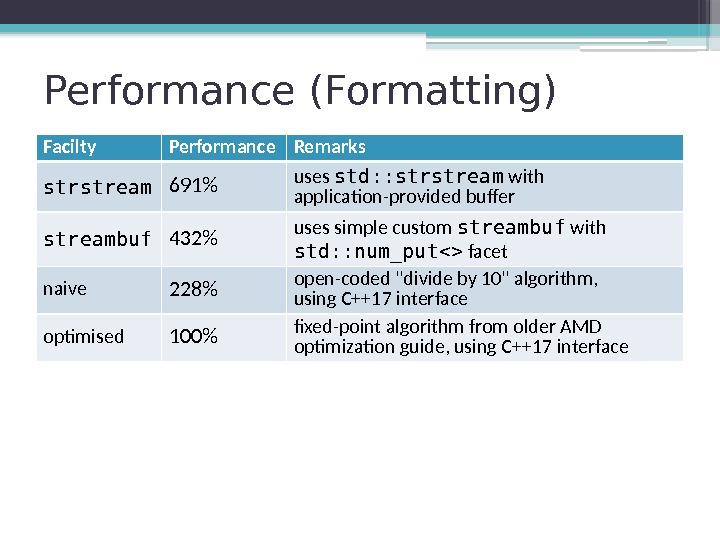
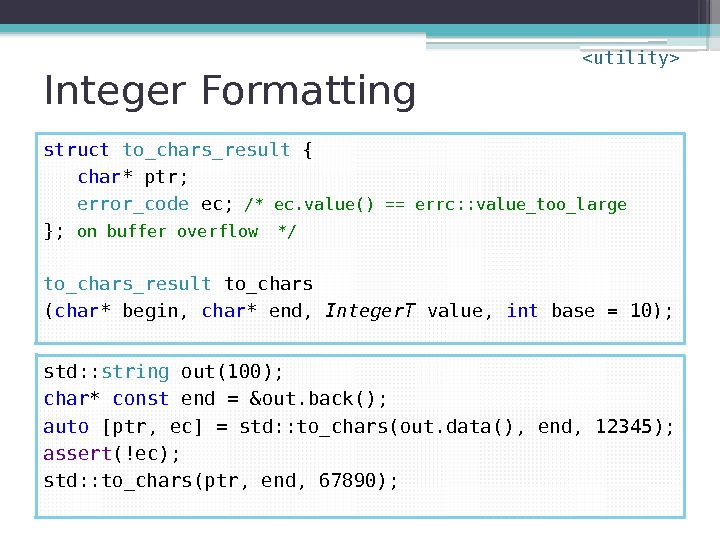
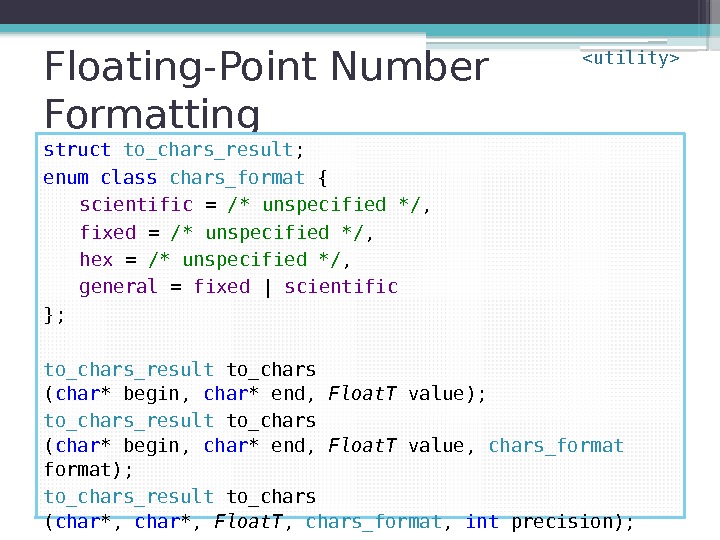
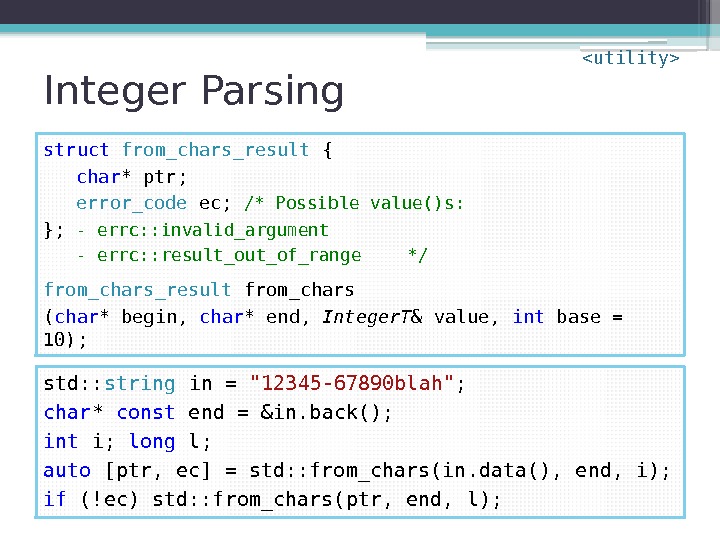
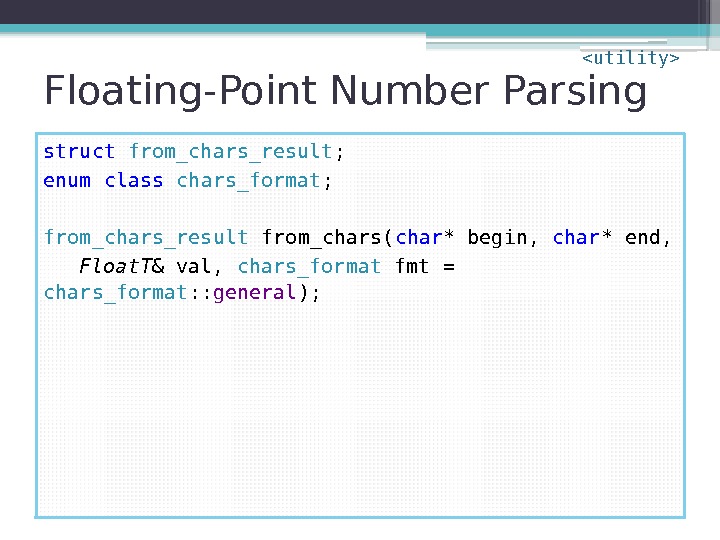

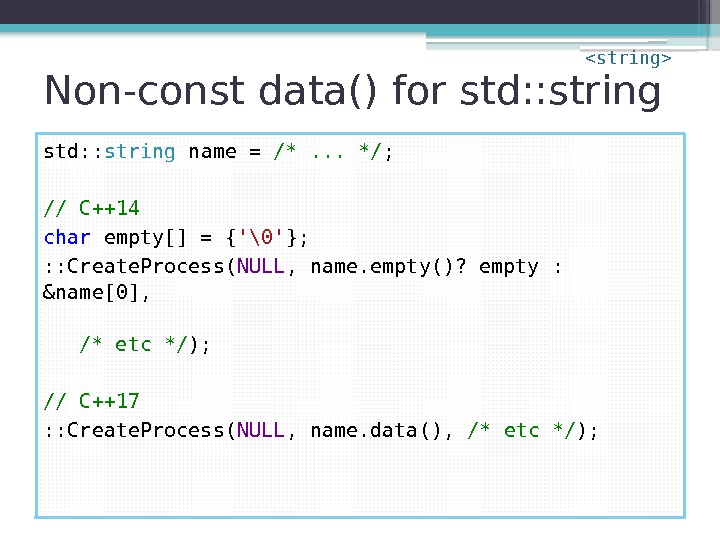
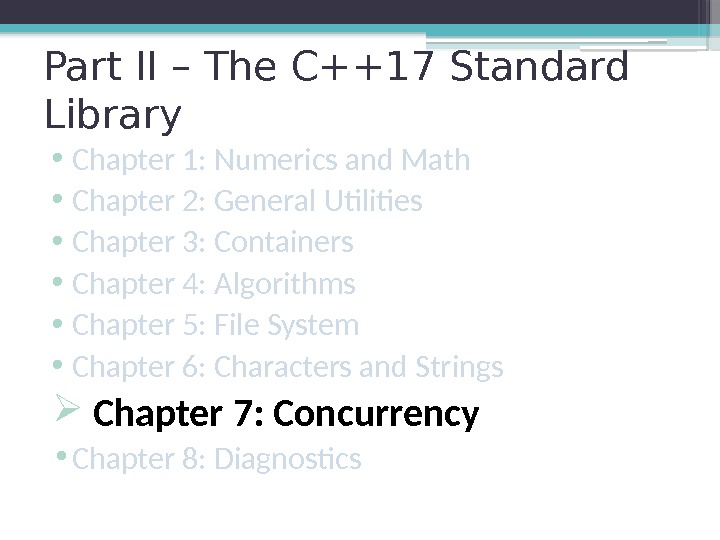

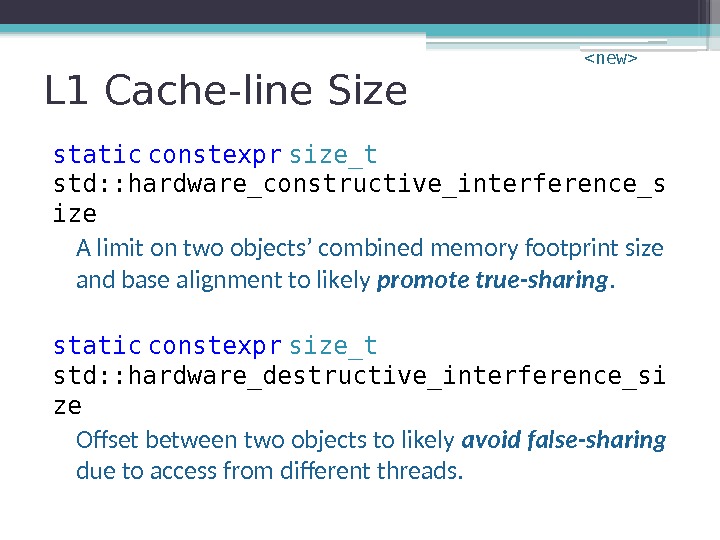
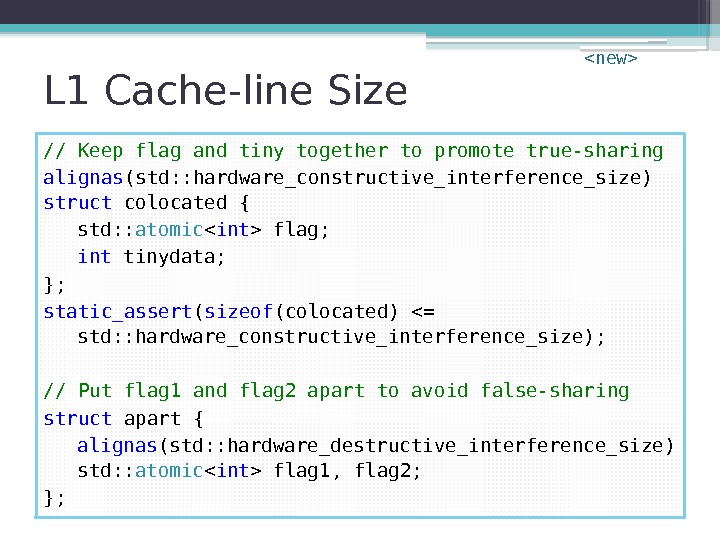

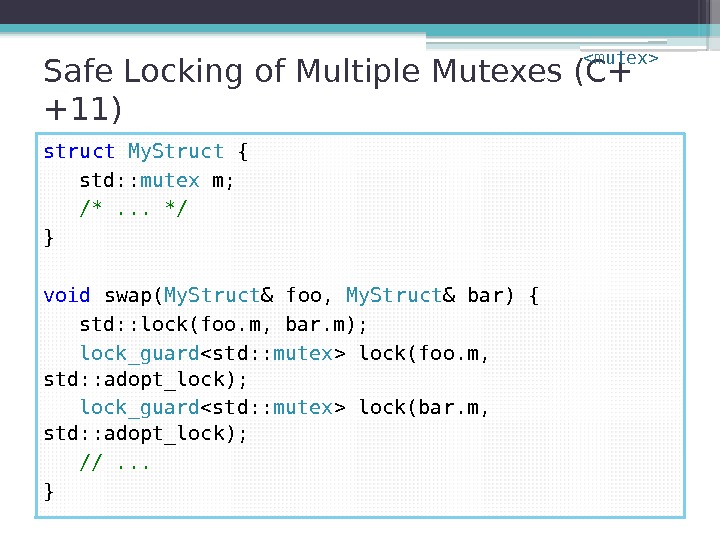
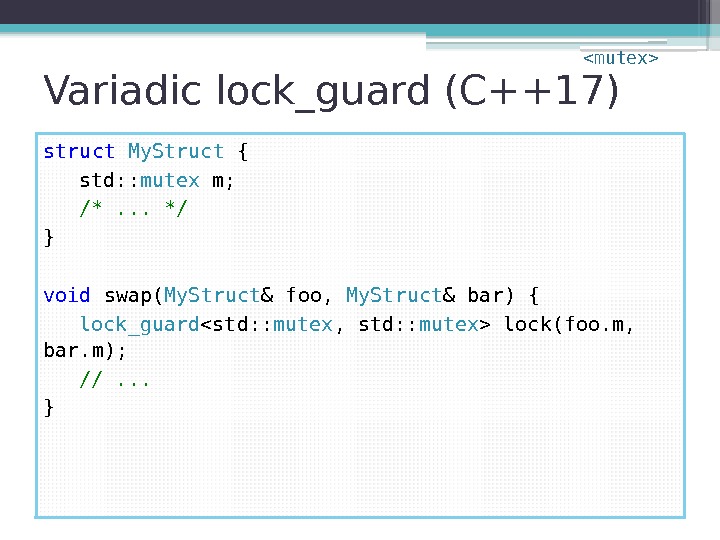
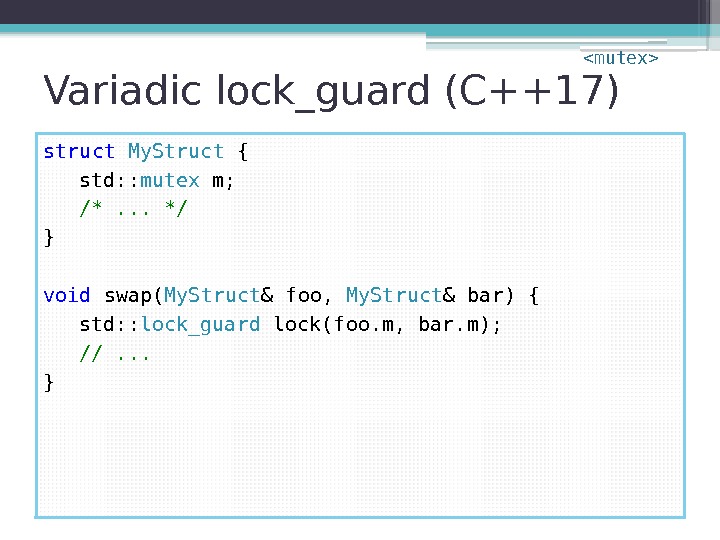
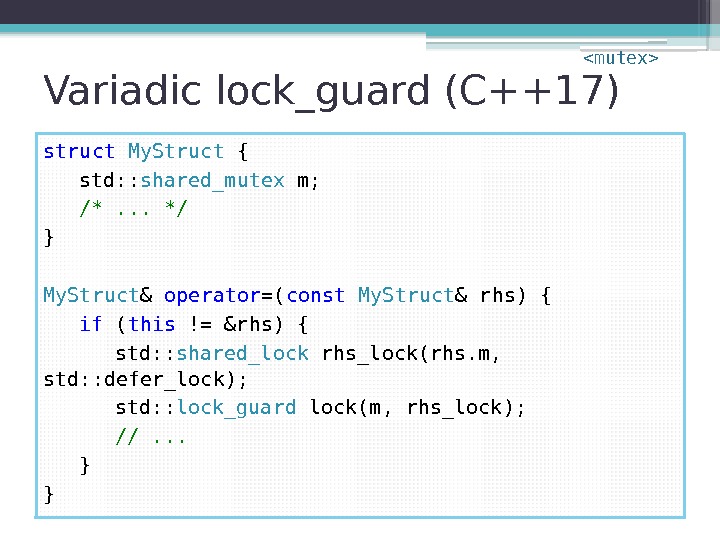
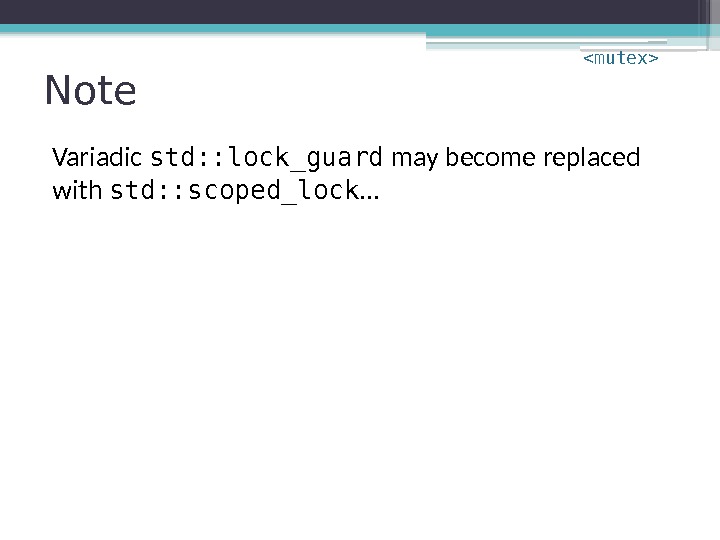

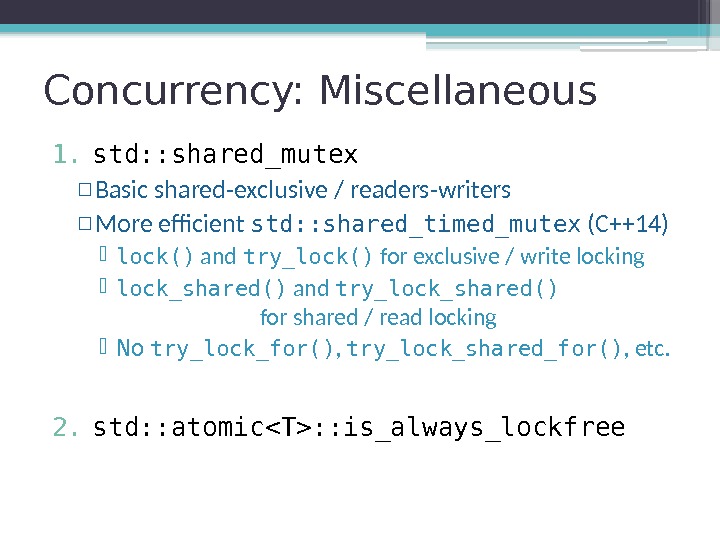
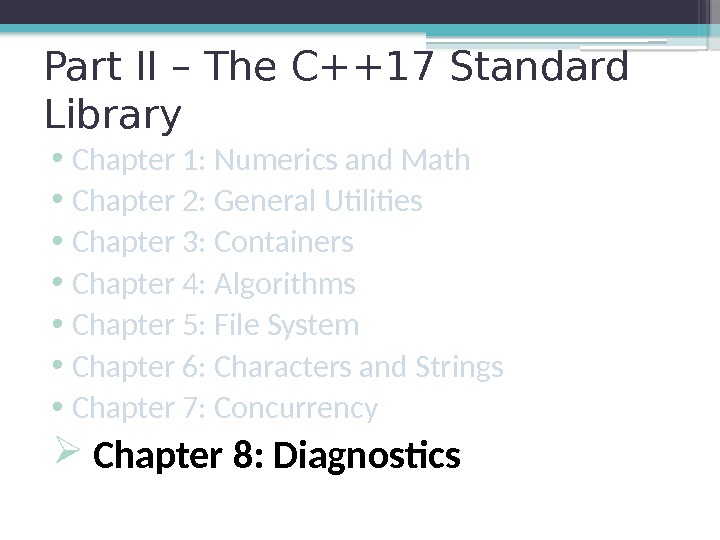
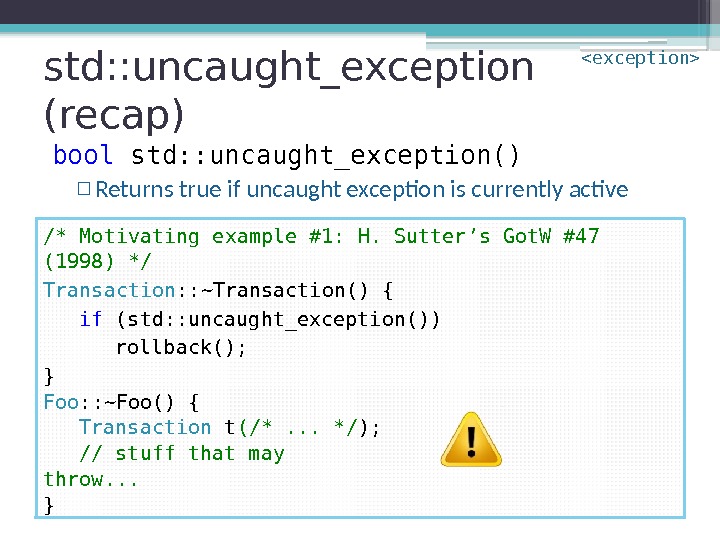
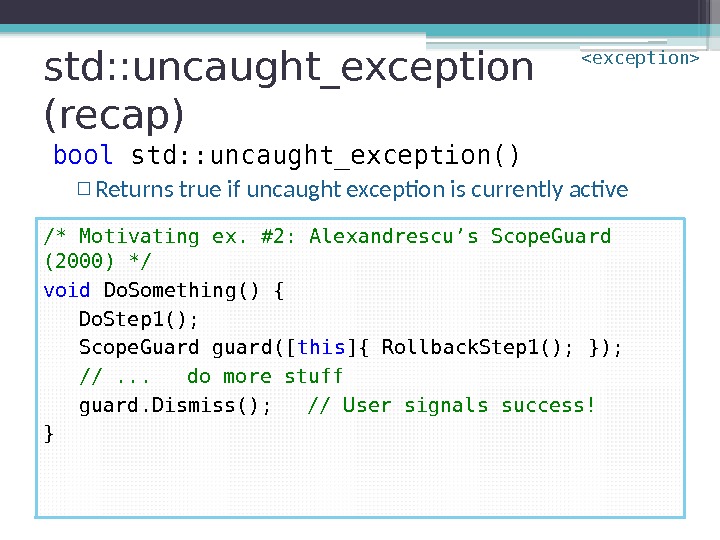
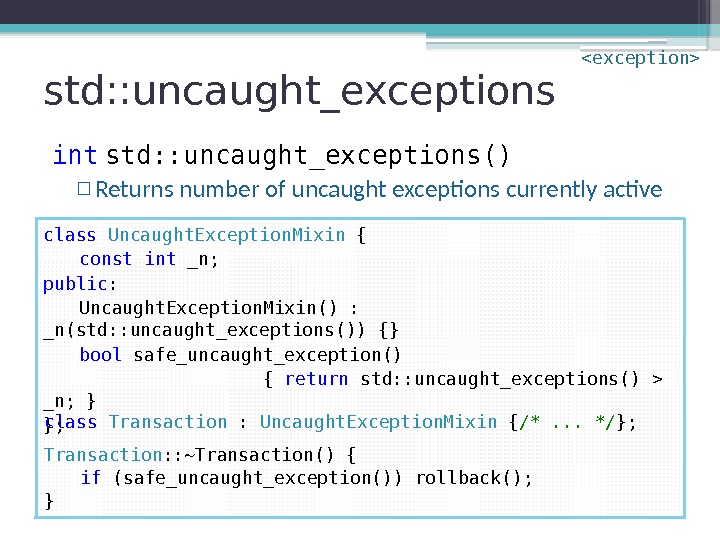
peter-van-weert-bec17-part-ii.pptx
- Размер: 3.6 Мб
- Автор:
- Количество слайдов: 157
Описание презентации 17 Part II – The Standard Library по слайдам
 17 Part II – The Standard Library
17 Part II – The Standard Library


![“ I'm a bit sad about that. [. . . ] A lot of “ I'm a bit sad about that. [. . . ] A lot of](http://present5.com/presentforday2/20170321/peter-van-weert-bec17-part-ii_images/peter-van-weert-bec17-part-ii_3.jpg) “ I’m a bit sad about that. [. . . ] A lot of minor improvements can add up to something significant. Most of these will help somebody in some way. There’s something for everybody here. I can’t imagine any C++ programmer that will not have at least some relieve from pain in C++17. That will not be able to write some piece of their code better in C++17. ” – Bjarne Stroustrup , Cpp. Con 2016 keynote
“ I’m a bit sad about that. [. . . ] A lot of minor improvements can add up to something significant. Most of these will help somebody in some way. There’s something for everybody here. I can’t imagine any C++ programmer that will not have at least some relieve from pain in C++17. That will not be able to write some piece of their code better in C++17. ” – Bjarne Stroustrup , Cpp. Con 2016 keynote
 Overview “ A lot of minor improvements can add up to something significant. ” • Part I – The C++17 Core Language ▫ Slides available at becpp. org • Part II – The C++17 Standard Library ▫ Last year: very quick overview ▫ Today: more detail
Overview “ A lot of minor improvements can add up to something significant. ” • Part I – The C++17 Core Language ▫ Slides available at becpp. org • Part II – The C++17 Standard Library ▫ Last year: very quick overview ▫ Today: more detail
 Shameless Self-Promotion Ahead
Shameless Self-Promotion Ahead
 Shameless Self-Promotion • Co-author: Marc Gregoire • Concise reference (212 pages) • Complete C++14 Standard Library “ Very useful quick reference for C++ programmers on some part of the library they have forgotten or in need of a quick refresh. ” “ Even the most experienced C++ programmer will learn a thing or two from the book and find it an indispensable reference and memory aid. ”
Shameless Self-Promotion • Co-author: Marc Gregoire • Concise reference (212 pages) • Complete C++14 Standard Library “ Very useful quick reference for C++ programmers on some part of the library they have forgotten or in need of a quick refresh. ” “ Even the most experienced C++ programmer will learn a thing or two from the book and find it an indispensable reference and memory aid. ”
 — PART I — THE C++17 CORE LANGUAG
— PART I — THE C++17 CORE LANGUAG
 C++17 Core Language Features • Nested namespaces e. g. namespace nikon: : metrology: : clouds {. . . } • static_assert ( expr ) • Structured bindings e. g. for ( const auto & [key, value] : map) {. . . } • for -like initializers for if and switch e. g. if ( auto x = map. insert(k, v); x. second) {. . . } • if constexpr (. . . ) {. . . } • Template argument deduction for constructors e. g. std: : tuple t(4, 3, 2. 5);
C++17 Core Language Features • Nested namespaces e. g. namespace nikon: : metrology: : clouds {. . . } • static_assert ( expr ) • Structured bindings e. g. for ( const auto & [key, value] : map) {. . . } • for -like initializers for if and switch e. g. if ( auto x = map. insert(k, v); x. second) {. . . } • if constexpr (. . . ) {. . . } • Template argument deduction for constructors e. g. std: : tuple t(4, 3, 2. 5);
 C++17 Core Language Features • Nested namespaces • static_assert ( expr ) • Structured bindings • for -like initializers for if and switch • if constexpr (. . . ) {. . . } • Template argument deduction for constructors • Fold expressions • Capture * this • [[fallthrough]] , [[nodiscard]] , [[maybe_unused]] • Changes to semantics
C++17 Core Language Features • Nested namespaces • static_assert ( expr ) • Structured bindings • for -like initializers for if and switch • if constexpr (. . . ) {. . . } • Template argument deduction for constructors • Fold expressions • Capture * this • [[fallthrough]] , [[nodiscard]] , [[maybe_unused]] • Changes to semantics
 — PART II — THE C++ STANDARD LIBRARY
— PART II — THE C++ STANDARD LIBRARY
 Part II – The C++17 Standard Library • Chapter 1: Numerics and Math • Chapter 2: General Utilities • Chapter 3: Containers • Chapter 4: Algorithms • Chapter 5: File System • Chapter 6: Characters and Strings • Chapter 7: Concurrency • Chapter 8: Diagnostics
Part II – The C++17 Standard Library • Chapter 1: Numerics and Math • Chapter 2: General Utilities • Chapter 3: Containers • Chapter 4: Algorithms • Chapter 5: File System • Chapter 6: Characters and Strings • Chapter 7: Concurrency • Chapter 8: Diagnostics
 Part II – The C++17 Standard Library Chapter 1: Numerics and Math • Chapter 2: General Utilities • Chapter 3: Containers • Chapter 4: Algorithms • Chapter 5: File System • Chapter 6: Characters and Strings • Chapter 7: Concurrency • Chapter 8: Diagnostics
Part II – The C++17 Standard Library Chapter 1: Numerics and Math • Chapter 2: General Utilities • Chapter 3: Containers • Chapter 4: Algorithms • Chapter 5: File System • Chapter 6: Characters and Strings • Chapter 7: Concurrency • Chapter 8: Diagnostics
 New “Special” Mathematical Functions • Bessel functions: bessel_J , neumann_N , bessel_I , bessel_K , bessel_j , neumann_n • Legendre polynomials: legendre_Pl , legendre_Plm • Spherical harmonics: sph_Y • Hermite polynomials: hermite • Laguerre polynomials: laguerre_0 , laguerre_m • Hypergeometric functions: hyperg_2 F 1 , hyperg_1 F 1 • Elliptic integrals: ellint_F , ellint_K , ellint_E 2 , ellint_P 2 • Beta function: beta • Exponential integral: ei • Riemann zeta function: zeta
New “Special” Mathematical Functions • Bessel functions: bessel_J , neumann_N , bessel_I , bessel_K , bessel_j , neumann_n • Legendre polynomials: legendre_Pl , legendre_Plm • Spherical harmonics: sph_Y • Hermite polynomials: hermite • Laguerre polynomials: laguerre_0 , laguerre_m • Hypergeometric functions: hyperg_2 F 1 , hyperg_1 F 1 • Elliptic integrals: ellint_F , ellint_K , ellint_E 2 , ellint_P 2 • Beta function: beta • Exponential integral: ei • Riemann zeta function: zeta

 A Less Special Math Function #include // Strictly speaking an “algorithm” auto clamped = std: : clamp(value, min, max); // Instead of e. g. // std: : min(std: : max(value, min), max) // or // #define CLAMP(value, min, max) \ // (value max? max : value)
A Less Special Math Function #include // Strictly speaking an “algorithm” auto clamped = std: : clamp(value, min, max); // Instead of e. g. // std: : min(std: : max(value, min), max) // or // #define CLAMP(value, min, max) \ // (value max? max : value)
 Part II – The C++17 Standard Library • Chapter 1: Numerics and Math Chapter 2: General Utilities • Chapter 3: Containers • Chapter 4: Algorithms • Chapter 5: File System • Chapter 6: Characters and Strings • Chapter 7: Concurrency • Chapter 8: Diagnostics
Part II – The C++17 Standard Library • Chapter 1: Numerics and Math Chapter 2: General Utilities • Chapter 3: Containers • Chapter 4: Algorithms • Chapter 5: File System • Chapter 6: Characters and Strings • Chapter 7: Concurrency • Chapter 8: Diagnostics
 Vocabulary Types
Vocabulary Types
 General Utilities: Vocabulary Types • std: : optional ▫ Optional values • std: : variant ▫ Type safe unions • std: : any ▫ Type safe void*
General Utilities: Vocabulary Types • std: : optional ▫ Optional values • std: : variant ▫ Type safe unions • std: : any ▫ Type safe void*
 General Utilities: Vocabulary Types std: : optional ▫ Optional values • std: : variant ▫ Type safe unions • std: : any ▫ Type safe void*
General Utilities: Vocabulary Types std: : optional ▫ Optional values • std: : variant ▫ Type safe unions • std: : any ▫ Type safe void*
 Optional Return Value? // Find answer to life, the universe, and everything. . . ? ? ? Find. The. Answer() { auto found = std: : find_if(begin(stuff), end(stuff), /*. . . */ ); return found != end(stuff)? * found : ? ? ? ; } int main() { auto answer = Find. The. Answer(); if (? ? ? ) cout << "Found it: " << ? ? ? << endl; else cout << "Not found. . . " << endl; }
Optional Return Value? // Find answer to life, the universe, and everything. . . ? ? ? Find. The. Answer() { auto found = std: : find_if(begin(stuff), end(stuff), /*. . . */ ); return found != end(stuff)? * found : ? ? ? ; } int main() { auto answer = Find. The. Answer(); if (? ? ? ) cout << "Found it: " << ? ? ? << endl; else cout << "Not found. . . " << endl; }
 std: : optional • Optional result / input argument / member /. . . • Works if no default value / constructor possible • Self-documenting! • Replaces: ▫ Designated special value end() , string: : npos , «» , nullptr , unique_ptr() , 0 , -1 , infinity, Na. N, EOF, . . . ▫ std: : pair ▫ bool Find. The. Answer( T &) ▫. . .
std: : optional • Optional result / input argument / member /. . . • Works if no default value / constructor possible • Self-documenting! • Replaces: ▫ Designated special value end() , string: : npos , «» , nullptr , unique_ptr() , 0 , -1 , infinity, Na. N, EOF, . . . ▫ std: : pair ▫ bool Find. The. Answer( T &) ▫. . .
 std: : optional // Find answer to life, the universe, and everything. . . std: : optional Find. The. Answer() { auto found = std: : find_if(begin(stuff), end(stuff), /*. . . */ ); return found != end(stuff)? * found : std: : nullopt; } int main() { auto answer = Find. The. Answer(); if (answer. has_value()) cout << "Found it: " << answer. value() << endl; else cout << "Not found. . . " << endl; }
std: : optional // Find answer to life, the universe, and everything. . . std: : optional Find. The. Answer() { auto found = std: : find_if(begin(stuff), end(stuff), /*. . . */ ); return found != end(stuff)? * found : std: : nullopt; } int main() { auto answer = Find. The. Answer(); if (answer. has_value()) cout << "Found it: " << answer. value() << endl; else cout << "Not found. . . " << endl; }
 std: : optional // Find answer to life, the universe, and everything. . . std: : optional Find. The. Answer() { auto found = std: : find_if(begin(stuff), end(stuff), /*. . . */ ); return found != end(stuff)? * found : std: : nullopt; } int main() { auto answer = Find. The. Answer(); if (answer) cout << "Found it: " << *answer << endl; else cout << "Not found. . . " << endl; }
std: : optional // Find answer to life, the universe, and everything. . . std: : optional Find. The. Answer() { auto found = std: : find_if(begin(stuff), end(stuff), /*. . . */ ); return found != end(stuff)? * found : std: : nullopt; } int main() { auto answer = Find. The. Answer(); if (answer) cout << "Found it: " << *answer << endl; else cout << "Not found. . . " << endl; }
 std: : optional // Find answer to life, the universe, and everything. . . std: : optional Find. The. Answer() { auto found = std: : find_if(begin(stuff), end(stuff), /*. . . */ ); return found != end(stuff)? * found : std: : nullopt; } int main() { auto answer = Find. The. Answer(); if (answer. has_value()) cout << answer. value(). To. String() << endl; else cout << "Not found. . . " << endl; }
std: : optional // Find answer to life, the universe, and everything. . . std: : optional Find. The. Answer() { auto found = std: : find_if(begin(stuff), end(stuff), /*. . . */ ); return found != end(stuff)? * found : std: : nullopt; } int main() { auto answer = Find. The. Answer(); if (answer. has_value()) cout << answer. value(). To. String() << endl; else cout << "Not found. . . " << endl; }
 std: : optional // Find answer to life, the universe, and everything. . . std: : optional Find. The. Answer() { auto found = std: : find_if(begin(stuff), end(stuff), /*. . . */ ); return found != end(stuff)? * found : std: : nullopt; } int main() { auto answer = Find. The. Answer(); if (answer) cout << (*answer). To. String() << endl; else cout << "Not found. . . " << endl; }
std: : optional // Find answer to life, the universe, and everything. . . std: : optional Find. The. Answer() { auto found = std: : find_if(begin(stuff), end(stuff), /*. . . */ ); return found != end(stuff)? * found : std: : nullopt; } int main() { auto answer = Find. The. Answer(); if (answer) cout << (*answer). To. String() << endl; else cout << "Not found. . . " << endl; }
 std: : optional // Find answer to life, the universe, and everything. . . std: : optional Find. The. Answer() { auto found = std: : find_if(begin(stuff), end(stuff), /*. . . */ ); return found != end(stuff)? * found : std: : nullopt; } int main() { auto answer = Find. The. Answer(); if (answer) cout <To. String() << endl; else cout << "Not found. . . " << endl; }
std: : optional // Find answer to life, the universe, and everything. . . std: : optional Find. The. Answer() { auto found = std: : find_if(begin(stuff), end(stuff), /*. . . */ ); return found != end(stuff)? * found : std: : nullopt; } int main() { auto answer = Find. The. Answer(); if (answer) cout <To. String() << endl; else cout << "Not found. . . " << endl; }
 std: : optional — No! Alteratives std: : optional std: : optional <std: : ref > std: : optional <std: : cref > Note: analogous for std: : variant and any
std: : optional — No! Alteratives std: : optional std: : optional <std: : ref > std: : optional <std: : cref > Note: analogous for std: : variant and any
 nullopt access // Find answer to life, the universe, and everything. . . std: : optional Find. The. Answer() { auto found = std: : find_if(begin(stuff), end(stuff), /*. . . */ ); return found != end(stuff)? * found : std: : nullopt; } int main() { auto answer = Find. The. Answer(); try { cout << "Found it: " << answer. value() << endl; } catch (std: : bad_optional_access & bad) { cout << "Not found. . . " << endl; } }
nullopt access // Find answer to life, the universe, and everything. . . std: : optional Find. The. Answer() { auto found = std: : find_if(begin(stuff), end(stuff), /*. . . */ ); return found != end(stuff)? * found : std: : nullopt; } int main() { auto answer = Find. The. Answer(); try { cout << "Found it: " << answer. value() << endl; } catch (std: : bad_optional_access & bad) { cout << "Not found. . . " << endl; } }
 nullopt access // Find answer to life, the universe, and everything. . . std: : optional Find. The. Answer() { auto found = std: : find_if(begin(stuff), end(stuff), /*. . . */ ); return found != end(stuff)? * found : std: : nullopt; } int main() { auto answer = Find. The. Answer(); cout << "I hope we found it: " << *answer << endl; }
nullopt access // Find answer to life, the universe, and everything. . . std: : optional Find. The. Answer() { auto found = std: : find_if(begin(stuff), end(stuff), /*. . . */ ); return found != end(stuff)? * found : std: : nullopt; } int main() { auto answer = Find. The. Answer(); cout << "I hope we found it: " << *answer << endl; }
 Use Case 2: Optional Input Argument // Find answer to life, the universe, and everything. . . auto Find. The. Answer(std: : optional hint) { //. . . } int main() { //. . . }
Use Case 2: Optional Input Argument // Find answer to life, the universe, and everything. . . auto Find. The. Answer(std: : optional hint) { //. . . } int main() { //. . . }
 Use Case 2: Optional Input Argument // Find answer to life, the universe, and everything. . . auto Find. The. Answer(std: : optional hint = nullopt) { //. . . } int main() { //. . . }
Use Case 2: Optional Input Argument // Find answer to life, the universe, and everything. . . auto Find. The. Answer(std: : optional hint = nullopt) { //. . . } int main() { //. . . }
 Use Case 3: Default on Stack // Find answer to life, the universe, and everything. . . auto Find. The. Answer() { std: : optional answer; auto found = std: : find_if(begin(stuff), end(stuff), /*. . . */ ); if (found != end(stuff)) answer = * found; return answer; } int main() { //. . . }
Use Case 3: Default on Stack // Find answer to life, the universe, and everything. . . auto Find. The. Answer() { std: : optional answer; auto found = std: : find_if(begin(stuff), end(stuff), /*. . . */ ); if (found != end(stuff)) answer = * found; return answer; } int main() { //. . . }
 Use Case 3: Default on Stack // Find answer to life, the universe, and everything. . . auto Find. The. Answer() { std: : optional answer; if (Something()) { /*. . . */ answer = //. . . } else if (Something. Else()) { /*. . . */ if ( /* found */ ) answer = //. . . } return answer; }
Use Case 3: Default on Stack // Find answer to life, the universe, and everything. . . auto Find. The. Answer() { std: : optional answer; if (Something()) { /*. . . */ answer = //. . . } else if (Something. Else()) { /*. . . */ if ( /* found */ ) answer = //. . . } return answer; }
 General Utilities: Vocabulary Types std: : optional ▫ Optional values std: : variant ▫ Type safe unions • std: : any ▫ Type safe void*
General Utilities: Vocabulary Types std: : optional ▫ Optional values std: : variant ▫ Type safe unions • std: : any ▫ Type safe void*
 std: : variant // Find answer to life, the universe, and everything. . . std: : variant Find. The. Answer(); int main() { auto found = Find. The. Answer(); if (? ? ? ) std: : cout << "It’s number " << ? ? ? ; else std: : cout << "Let’s all drink " << ? ? ? ; }
std: : variant // Find answer to life, the universe, and everything. . . std: : variant Find. The. Answer(); int main() { auto found = Find. The. Answer(); if (? ? ? ) std: : cout << "It’s number " << ? ? ? ; else std: : cout << "Let’s all drink " << ? ? ? ; }
 std: : variant // Find answer to life, the universe, and everything. . . std: : variant Find. The. Answer(); int main() { auto found = Find. The. Answer(); if (std: : holds_alternative(found)) std: : cout << "It’s number " << std: : get(found); else std: : cout << "Let’s all drink " << std: : get(found); }
std: : variant // Find answer to life, the universe, and everything. . . std: : variant Find. The. Answer(); int main() { auto found = Find. The. Answer(); if (std: : holds_alternative(found)) std: : cout << "It’s number " << std: : get(found); else std: : cout << "Let’s all drink " << std: : get(found); }
 std: : variant // Find answer to life, the universe, and everything. . . std: : variant Find. The. Answer(); int main() { auto found = Find. The. Answer(); if (found. index() == 0) std: : cout << "It’s number " << std: : get(found); else std: : cout << "Let’s all drink " << std: : get(found); }
std: : variant // Find answer to life, the universe, and everything. . . std: : variant Find. The. Answer(); int main() { auto found = Find. The. Answer(); if (found. index() == 0) std: : cout << "It’s number " << std: : get(found); else std: : cout << "Let’s all drink " << std: : get(found); }
 std: : variant // Find answer to life, the universe, and everything. . . std: : variant Find. The. Answer(); int main() { auto found = Find. The. Answer(); if (found. index() == 0) std: : cout << "It’s number " << std: : get(found); else std: : cout << "Let’s all drink " << std: : get(found); }
std: : variant // Find answer to life, the universe, and everything. . . std: : variant Find. The. Answer(); int main() { auto found = Find. The. Answer(); if (found. index() == 0) std: : cout << "It’s number " << std: : get(found); else std: : cout << "Let’s all drink " << std: : get(found); }
 std: : variant // Find answer to life, the universe, and everything. . . std: : variant Find. The. Answer(); struct Answer. Visitor { void operator ()( int found) { std: : cout << "It’s number " << found; } void operator ()( const Beverage & found) { std: : cout << "Let’s all drink " << found; } } int main() { std: : visit(Answer. Visitor{}, Find. The. Answer()); }
std: : variant // Find answer to life, the universe, and everything. . . std: : variant Find. The. Answer(); struct Answer. Visitor { void operator ()( int found) { std: : cout << "It’s number " << found; } void operator ()( const Beverage & found) { std: : cout << "Let’s all drink " << found; } } int main() { std: : visit(Answer. Visitor{}, Find. The. Answer()); }
 std: : variant // Find answer to life, the universe, and everything. . . std: : variant Find. The. Answer(); int main() { std: : visit( []( auto && something) { std: : cout << "Found " << something; }, Find. The. Answer() ); }
std: : variant // Find answer to life, the universe, and everything. . . std: : variant Find. The. Answer(); int main() { std: : visit( []( auto && something) { std: : cout << "Found " << something; }, Find. The. Answer() ); }
 Valueless Variant? • Default construction: holds default-constructed T 0 • std: : variant ▫ Can be used for variant that does not hold a value (yet) ▫ Enables default-construction if T 0 cannot be default-constructed • A variant that holds none of the alternatives? ▫ Nearly impossible: only if assignment/emplacement threw an exception ▫ Test with valueless_by_exception()
Valueless Variant? • Default construction: holds default-constructed T 0 • std: : variant ▫ Can be used for variant that does not hold a value (yet) ▫ Enables default-construction if T 0 cannot be default-constructed • A variant that holds none of the alternatives? ▫ Nearly impossible: only if assignment/emplacement threw an exception ▫ Test with valueless_by_exception()
 General Utilities: Vocabulary Types std: : optional ▫ Optional values std: : variant ▫ Type safe unions std: : any ▫ Type safe void*
General Utilities: Vocabulary Types std: : optional ▫ Optional values std: : variant ▫ Type safe unions std: : any ▫ Type safe void*
 std: : any // Find answer to life, the universe, and everything. . . std: : any Find. The. Answer(); int main() { auto found = Find. The. Answer(); if (? ? ? ) std: : cout << "It’s number " << ? ? ? ; else if (? ? ? ) std: : cout << "Let’s all drink " << ? ? ? ; else std: : cout << "It’s something else. " << "If only we knew the question. . . " ; }
std: : any // Find answer to life, the universe, and everything. . . std: : any Find. The. Answer(); int main() { auto found = Find. The. Answer(); if (? ? ? ) std: : cout << "It’s number " << ? ? ? ; else if (? ? ? ) std: : cout << "Let’s all drink " << ? ? ? ; else std: : cout << "It’s something else. " << "If only we knew the question. . . " ; }
 std: : any // Find answer to life, the universe, and everything. . . std: : any Find. The. Answer(); int main() { auto found = Find. The. Answer(); if (found. type() == typeid ( int )) std: : cout << "It’s number " << std: : any_cast(found); else if (found. type() == typeid ( Beverage )) std: : cout << "Let’s all drink " << std: : any_cast(found); else std: : cout << "It’s something else. " << "If only we knew the question. . . " ; }
std: : any // Find answer to life, the universe, and everything. . . std: : any Find. The. Answer(); int main() { auto found = Find. The. Answer(); if (found. type() == typeid ( int )) std: : cout << "It’s number " << std: : any_cast(found); else if (found. type() == typeid ( Beverage )) std: : cout << "Let’s all drink " << std: : any_cast(found); else std: : cout << "It’s something else. " << "If only we knew the question. . . " ; }
 std: : any // Find answer to life, the universe, and everything. . . std: : any Find. The. Answer(); int main() { auto found = Find. The. Answer(); if (found. type() == typeid ( int )) std: : cout << "It’s number " << std: : any_cast(found); else if (found. type() == typeid ( Beverage )) std: : cout << "Let’s all drink " << std: : any_cast(found); else std: : cout << "It’s something else. " << "If only we knew the question. . . " ; }
std: : any // Find answer to life, the universe, and everything. . . std: : any Find. The. Answer(); int main() { auto found = Find. The. Answer(); if (found. type() == typeid ( int )) std: : cout << "It’s number " << std: : any_cast(found); else if (found. type() == typeid ( Beverage )) std: : cout << "Let’s all drink " << std: : any_cast(found); else std: : cout << "It’s something else. " << "If only we knew the question. . . " ; }
 std: : any // Find answer to life, the universe, and everything. . . std: : any Find. The. Answer(); int main() { auto found = Find. The. Answer(); if (( auto i = std: : any_cast(&found))) std: : cout << "It’s number " << *i; else if (( auto b = std: : any_cast(&found))) std: : cout << "Let’s all drink " << *b; else std: : cout << "It’s something else. " << "If only we knew the question. . . " ; }
std: : any // Find answer to life, the universe, and everything. . . std: : any Find. The. Answer(); int main() { auto found = Find. The. Answer(); if (( auto i = std: : any_cast(&found))) std: : cout << "It’s number " << *i; else if (( auto b = std: : any_cast(&found))) std: : cout << "Let’s all drink " << *b; else std: : cout << "It’s something else. " << "If only we knew the question. . . " ; }
 std: : any // Find answer to life, the universe, and everything. . . std: : any Find. The. Answer(); int main() { auto found = Find. The. Answer(); if (!found. has_value()) std: : cout << "Nothing? 7, 5 million years wasted. . . " ; else if (( auto i = std: : any_cast(found))) std: : cout << "It’s number " << *i; else if (( auto b = std: : any_cast(found))) std: : cout << "Let’s all drink " << *b; else std: : cout << "It’s something else. " << "If only we knew the question. . . " ; }
std: : any // Find answer to life, the universe, and everything. . . std: : any Find. The. Answer(); int main() { auto found = Find. The. Answer(); if (!found. has_value()) std: : cout << "Nothing? 7, 5 million years wasted. . . " ; else if (( auto i = std: : any_cast(found))) std: : cout << "It’s number " << *i; else if (( auto b = std: : any_cast(found))) std: : cout << "Let’s all drink " << *b; else std: : cout << "It’s something else. " << "If only we knew the question. . . " ; }
 Type Traits
Type Traits
 New Type Traits (1) • std: : conjunction , disjunction , negation • std: : bool_constant ▫ Instead of std: : integral_constant • std: : has_unique_object_representations ▫ Determine whether an object can be hashed by hashing its representation as a sequence of bytes • std: : trait _v ▫ Instead of std: : trait : : value ▫ E. g. std: : is_integral_v , negation_v , . . .
New Type Traits (1) • std: : conjunction , disjunction , negation • std: : bool_constant ▫ Instead of std: : integral_constant • std: : has_unique_object_representations ▫ Determine whether an object can be hashed by hashing its representation as a sequence of bytes • std: : trait _v ▫ Instead of std: : trait : : value ▫ E. g. std: : is_integral_v , negation_v , . . .
 void_t • Map any sequence of types to void • Building block in SFINAE idiom for detecting validity of expressions • “ Trivial yet exceedingly useful” • “ So clever that I’d like to see it proposed”namespace std { template using void_t = void ; }
void_t • Map any sequence of types to void • Building block in SFINAE idiom for detecting validity of expressions • “ Trivial yet exceedingly useful” • “ So clever that I’d like to see it proposed”namespace std { template using void_t = void ; }
 void_t template struct has_value_type : std: : false_type { }; template struct has_value_type < T , std: : void_t > : std: : true_type { }; cout << boolalpha; cout << has_value_type < vector >() << '\n' ; // true cout << has_value_type () << endl; // false
void_t template struct has_value_type : std: : false_type { }; template struct has_value_type < T , std: : void_t > : std: : true_type { }; cout << boolalpha; cout << has_value_type < vector >() << '\n' ; // true cout << has_value_type () << endl; // false
 void_t template struct has_value_type : std: : false_type { }; template struct has_value_type < T , std: : void_t > : std: : true_type { }; cout << boolalpha; cout << has_value_type < vector >() << '\n' ; // true cout << has_value_type () << endl; // false
void_t template struct has_value_type : std: : false_type { }; template struct has_value_type < T , std: : void_t > : std: : true_type { }; cout << boolalpha; cout << has_value_type < vector >() << '\n' ; // true cout << has_value_type () << endl; // false
 void_t // Primary class template struct has_value_type : std: : false_type { }; // Partial template specialization template struct has_value_type < T , std: : void_t > : std: : true_type { }; cout << boolalpha; cout << has_value_type < vector >() << '\n' ; // true cout << has_value_type () << endl; // false
void_t // Primary class template struct has_value_type : std: : false_type { }; // Partial template specialization template struct has_value_type < T , std: : void_t > : std: : true_type { }; cout << boolalpha; cout << has_value_type < vector >() << '\n' ; // true cout << has_value_type () << endl; // false
 void_t // Primary class template struct has_value_type : std: : false_type { }; // Partial template specialization template struct has_value_type < T , std: : void_t > : std: : true_type { }; cout << boolalpha; cout << has_value_type < vector >() << '\n' ; // true cout << has_value_type () << endl; // false < vector , void > 1
void_t // Primary class template struct has_value_type : std: : false_type { }; // Partial template specialization template struct has_value_type < T , std: : void_t > : std: : true_type { }; cout << boolalpha; cout << has_value_type < vector >() << '\n' ; // true cout << has_value_type () << endl; // false < vector , void > 1
 void_t // Primary class template struct has_value_type : std: : false_type { }; // Partial template specialization template struct has_value_type < T , std: : void_t > : std: : true_type { }; cout << boolalpha; cout << has_value_type < vector >() << '\n' ; // true cout << has_value_type () << endl; // false < vector , void > 1 < vector , std: : void_t < vector : : value_type>> 2
void_t // Primary class template struct has_value_type : std: : false_type { }; // Partial template specialization template struct has_value_type < T , std: : void_t > : std: : true_type { }; cout << boolalpha; cout << has_value_type < vector >() << '\n' ; // true cout << has_value_type () << endl; // false < vector , void > 1 < vector , std: : void_t < vector : : value_type>> 2
 void_t // Primary class template struct has_value_type : std: : false_type { }; // Partial template specialization template struct has_value_type < T , std: : void_t > : std: : true_type { }; cout << boolalpha; cout << has_value_type < vector >() << '\n' ; // true cout << has_value_type () << endl; // false < vector , void > 1 < vector , std: : void_t < vector : : value_type>> 2 == < vector , void > 3
void_t // Primary class template struct has_value_type : std: : false_type { }; // Partial template specialization template struct has_value_type < T , std: : void_t > : std: : true_type { }; cout << boolalpha; cout << has_value_type < vector >() << '\n' ; // true cout << has_value_type () << endl; // false < vector , void > 1 < vector , std: : void_t < vector : : value_type>> 2 == < vector , void > 3
 void_t // Primary class template struct has_value_type : std: : false_type { }; // Partial template specialization template struct has_value_type < T , std: : void_t > : std: : true_type { }; cout << boolalpha; cout << has_value_type < vector >() << '\n' ; // true cout << has_value_type () << endl; // false
void_t // Primary class template struct has_value_type : std: : false_type { }; // Partial template specialization template struct has_value_type < T , std: : void_t > : std: : true_type { }; cout << boolalpha; cout << has_value_type < vector >() << '\n' ; // true cout << has_value_type () << endl; // false
 void_t // Primary class template struct has_value_type : std: : false_type { }; // Partial template specialization template struct has_value_type < T , std: : void_t > : std: : true_type { }; cout << boolalpha; cout << has_value_type < vector >() << '\n' ; // true cout << has_value_type () << endl; // false 1 < int , std: : void_t > 2 SFINAE 3
void_t // Primary class template struct has_value_type : std: : false_type { }; // Partial template specialization template struct has_value_type < T , std: : void_t > : std: : true_type { }; cout << boolalpha; cout << has_value_type < vector >() << '\n' ; // true cout << has_value_type () << endl; // false 1 < int , std: : void_t > 2 SFINAE 3
 void_t // Primary class template struct has_value_type : std: : false_type { }; // Partial template specialization template struct has_value_type < T , std: : void_t > : std: : true_type { }; cout << boolalpha; cout << has_value_type < vector >() << '\n' ; // true cout << has_value_type () << endl; // false
void_t // Primary class template struct has_value_type : std: : false_type { }; // Partial template specialization template struct has_value_type < T , std: : void_t > : std: : true_type { }; cout << boolalpha; cout << has_value_type < vector >() << '\n' ; // true cout << has_value_type () << endl; // false
 void_t namespace detail { // Primary class template struct has_value_type_impl : std: : false_type { }; // Partial template specialization template struct has_value_type_impl < T , std: : void_t > : std: : true_type { }; } template struct has_value_type : detail: : has_value_type_impl {}; cout << boolalpha; cout << has_value_type < vector >() << '\n' ; // true cout << has_value_type () << endl; // false
void_t namespace detail { // Primary class template struct has_value_type_impl : std: : false_type { }; // Partial template specialization template struct has_value_type_impl < T , std: : void_t > : std: : true_type { }; } template struct has_value_type : detail: : has_value_type_impl {}; cout << boolalpha; cout << has_value_type < vector >() << '\n' ; // true cout << has_value_type () << endl; // false
 void_t namespace detail { // Primary class template struct has_inc_impl : std: : false_type { }; // Partial template specialization template struct has_inc_impl < T , void_t > : std: : true_type { }; } template struct has_inc : has_inc_impl {}; cout << boolalpha; cout << has_inc () << '\n' ; // false cout << has_inc () << endl; // true
void_t namespace detail { // Primary class template struct has_inc_impl : std: : false_type { }; // Partial template specialization template struct has_inc_impl < T , void_t > : std: : true_type { }; } template struct has_inc : has_inc_impl {}; cout << boolalpha; cout << has_inc () << '\n' ; // false cout << has_inc () << endl; // true
 void_t namespace detail { // Primary class template struct has_inc_impl : std: : false_type { }; // Partial template specialization template struct has_inc_impl < T , void_t < decltype (+ +declval())>> : std: : true_type { }; } template struct has_inc : has_inc_impl {}; cout << boolalpha; cout << has_inc () << '\n' ; // false cout << has_inc () << endl; // true
void_t namespace detail { // Primary class template struct has_inc_impl : std: : false_type { }; // Partial template specialization template struct has_inc_impl < T , void_t < decltype (+ +declval())>> : std: : true_type { }; } template struct has_inc : has_inc_impl {}; cout << boolalpha; cout << has_inc () << '\n' ; // false cout << has_inc () << endl; // true
 New Type Traits (2) • std: : is_callable ▫ Also: is_nothrow_callable ▫ Easily implemented with std: : void_t and result_of
New Type Traits (2) • std: : is_callable ▫ Also: is_nothrow_callable ▫ Easily implemented with std: : void_t and result_of
 Miscellaneous
Miscellaneous
 Functional • std: : invoke(Fn, Args. . . ) ▫ Invoke any function-like Fn ▫ Including pointer-to-member-functions! • std: : not_fn ▫ unary_negate / binary_negate and std: : not 1() / not 2() now deprecated • Removed std: : bind 1 st/2 nd() , ptr_fun() , mem_fun() , and mem_fun_ref() ▫ Also: their return types and their base classes ▫ Replaced with std: : bind() , mem_fn() , function
Functional • std: : invoke(Fn, Args. . . ) ▫ Invoke any function-like Fn ▫ Including pointer-to-member-functions! • std: : not_fn ▫ unary_negate / binary_negate and std: : not 1() / not 2() now deprecated • Removed std: : bind 1 st/2 nd() , ptr_fun() , mem_fun() , and mem_fun_ref() ▫ Also: their return types and their base classes ▫ Replaced with std: : bind() , mem_fn() , function
 Tuples • std: : apply(Fn, Tuple&&) • std: : make_from_tuple(Tuple&&) • Various bugfixes to pair and tuple construction
Tuples • std: : apply(Fn, Tuple&&) • std: : make_from_tuple(Tuple&&) • Various bugfixes to pair and tuple construction
 Smart Pointers • std: : auto_ptr removed • Array support for std: : shared_ptr and weak_ptr Not adopted yet, but likely. . . • std: : enable_shared_from_this mixin ▫ shared_ptr shared_from_this() (improved spec. ) ▫ weak_ptr weak_from_this() (new function) • std: : owner_less • Various bugfixes to std: : unique_ptr
Smart Pointers • std: : auto_ptr removed • Array support for std: : shared_ptr and weak_ptr Not adopted yet, but likely. . . • std: : enable_shared_from_this mixin ▫ shared_ptr shared_from_this() (improved spec. ) ▫ weak_ptr weak_from_this() (new function) • std: : owner_less • Various bugfixes to std: : unique_ptr
 Miscellaneous • floor , ceil , round , and abs for time_point s and duration s • std: : as_const(T& obj) in ▫ Returns std: : add_const_t ▫ Alternative to const_cast(obj) const_cast<std: : add_const_t& > • (namespace std: : pmr ) ▫ Polymorphic allocators ▫ Different standard memory allocators
Miscellaneous • floor , ceil , round , and abs for time_point s and duration s • std: : as_const(T& obj) in ▫ Returns std: : add_const_t ▫ Alternative to const_cast(obj) const_cast<std: : add_const_t& > • (namespace std: : pmr ) ▫ Polymorphic allocators ▫ Different standard memory allocators
 Part II – The C++17 Standard Library • Chapter 1: Numerics and Math • Chapter 2: General Utilities Chapter 3: Containers • Chapter 4: Algorithms • Chapter 5: File System • Chapter 6: Characters and Strings • Chapter 7: Concurrency • Chapter 8: Diagnostics
Part II – The C++17 Standard Library • Chapter 1: Numerics and Math • Chapter 2: General Utilities Chapter 3: Containers • Chapter 4: Algorithms • Chapter 5: File System • Chapter 6: Characters and Strings • Chapter 7: Concurrency • Chapter 8: Diagnostics
 Map Insertion
Map Insertion
![std: : map and std: : unordered_map Over- writes Arguments []= [Key] = Val std: : map and std: : unordered_map Over- writes Arguments []= [Key] = Val](http://present5.com/presentforday2/20170321/peter-van-weert-bec17-part-ii_images/peter-van-weert-bec17-part-ii_71.jpg) std: : map and std: : unordered_map Over- writes Arguments []= [Key] = Val insert pair emplace Arguments of pair constructor
std: : map and std: : unordered_map Over- writes Arguments []= [Key] = Val insert pair emplace Arguments of pair constructor
![std: : map and std: : unordered_map Over- writes Arguments []= [Key] = Val std: : map and std: : unordered_map Over- writes Arguments []= [Key] = Val](http://present5.com/presentforday2/20170321/peter-van-weert-bec17-part-ii_images/peter-van-weert-bec17-part-ii_72.jpg) std: : map and std: : unordered_map Over- writes Arguments []= [Key] = Val insert pair emplace Arguments of pair constructor insert_or_assig n Key , Val try_emplace Key , arguments of Val constructor
std: : map and std: : unordered_map Over- writes Arguments []= [Key] = Val insert pair emplace Arguments of pair constructor insert_or_assig n Key , Val try_emplace Key , arguments of Val constructor
![std: : map and std: : unordered_map Over- writes Arguments []= Yes [Key] = std: : map and std: : unordered_map Over- writes Arguments []= Yes [Key] =](http://present5.com/presentforday2/20170321/peter-van-weert-bec17-part-ii_images/peter-van-weert-bec17-part-ii_73.jpg) std: : map and std: : unordered_map Over- writes Arguments []= Yes [Key] = Val insert No pair emplace No Arguments of pair constructor insert_or_assig n Yes Key , Val try_emplace No Key , arguments of Val constructor
std: : map and std: : unordered_map Over- writes Arguments []= Yes [Key] = Val insert No pair emplace No Arguments of pair constructor insert_or_assig n Yes Key , Val try_emplace No Key , arguments of Val constructor
![std: : map and std: : unordered_map Over- writes Arguments []= Yes [Key] = std: : map and std: : unordered_map Over- writes Arguments []= Yes [Key] =](http://present5.com/presentforday2/20170321/peter-van-weert-bec17-part-ii_images/peter-van-weert-bec17-part-ii_74.jpg) std: : map and std: : unordered_map Over- writes Arguments []= Yes [Key] = Val insert No pair emplace No Arguments of pair constructor insert_or_assig n Yes Key , Val try_emplace No Key , arguments of Val constructor std: : map mappy; auto [iter 1, inserted 1] = mappy. insert(std: : make_pair(123, «four» )); auto [iter 2, inserted 2] = mappy. insert_or_assign(567, «eight» );
std: : map and std: : unordered_map Over- writes Arguments []= Yes [Key] = Val insert No pair emplace No Arguments of pair constructor insert_or_assig n Yes Key , Val try_emplace No Key , arguments of Val constructor std: : map mappy; auto [iter 1, inserted 1] = mappy. insert(std: : make_pair(123, «four» )); auto [iter 2, inserted 2] = mappy. insert_or_assign(567, «eight» );
![std: : map and std: : unordered_map Over- writes Arguments []= Yes [Key] = std: : map and std: : unordered_map Over- writes Arguments []= Yes [Key] =](http://present5.com/presentforday2/20170321/peter-van-weert-bec17-part-ii_images/peter-van-weert-bec17-part-ii_75.jpg) std: : map and std: : unordered_map Over- writes Arguments []= Yes [Key] = Val insert No pair emplace No Arguments of pair constructor insert_or_assig n Yes Key , Val try_emplace No Key , arguments of Val constructor std: : map mappy; // In-place construction using string(num, char); equivalent to // mappy[123] = “aaaa”; mappy[567] = “zzzz”; auto [iter 1, inserted 1] = mappy. emplace( std: : piecewise_construct, 123, std: : forward_as_tuple(4, ‘a’ )); auto [iter 2, inserted 2] = mappy. try_emplace(567, 8, ‘z’ );
std: : map and std: : unordered_map Over- writes Arguments []= Yes [Key] = Val insert No pair emplace No Arguments of pair constructor insert_or_assig n Yes Key , Val try_emplace No Key , arguments of Val constructor std: : map mappy; // In-place construction using string(num, char); equivalent to // mappy[123] = “aaaa”; mappy[567] = “zzzz”; auto [iter 1, inserted 1] = mappy. emplace( std: : piecewise_construct, 123, std: : forward_as_tuple(4, ‘a’ )); auto [iter 2, inserted 2] = mappy. try_emplace(567, 8, ‘z’ );
![std: : map and std: : unordered_map Over- writes Steals Arguments []= Yes N/A std: : map and std: : unordered_map Over- writes Steals Arguments []= Yes N/A](http://present5.com/presentforday2/20170321/peter-van-weert-bec17-part-ii_images/peter-van-weert-bec17-part-ii_76.jpg) std: : map and std: : unordered_map Over- writes Steals Arguments []= Yes N/A [Key] = Val insert No ? pair emplace No ? Arguments of pair constructor insert_or_assig n Yes N/A Key , Val try_emplace No No Key , arguments of Val constructor std: : map < int , std: : unique_ptr > mappy; auto foobar = std: : make_unique(); mappy[123] = nullptr ; mappy. emplace(123, std: : move(foobar)); // 123 = existing key assert (foobar); // value may or not be “stolen”: undefined
std: : map and std: : unordered_map Over- writes Steals Arguments []= Yes N/A [Key] = Val insert No ? pair emplace No ? Arguments of pair constructor insert_or_assig n Yes N/A Key , Val try_emplace No No Key , arguments of Val constructor std: : map < int , std: : unique_ptr > mappy; auto foobar = std: : make_unique(); mappy[123] = nullptr ; mappy. emplace(123, std: : move(foobar)); // 123 = existing key assert (foobar); // value may or not be “stolen”: undefined
 Moving between Associative Containers
Moving between Associative Containers
 Moving between Maps & Sets 1. Move individual nodes between associative containers (without allocation or construction) ▫ New extract(iter) and extract(key) functions Analogous to erase Returns a node handle ▫ Node handle (type Container : : node_type ) Move-only Provides access to a key and a value ▫ New insert(node_type) function 2. Move all nodes from another associative container ▫ New merge function ▫ Nodes are moved; duplicate keys are lef
Moving between Maps & Sets 1. Move individual nodes between associative containers (without allocation or construction) ▫ New extract(iter) and extract(key) functions Analogous to erase Returns a node handle ▫ Node handle (type Container : : node_type ) Move-only Provides access to a key and a value ▫ New insert(node_type) function 2. Move all nodes from another associative container ▫ New merge function ▫ Nodes are moved; duplicate keys are lef
 Example: Moving Between Maps map src{{1, «one» }, {2, «two» }, {3, «three» }}; map dst{{3, «piano» }}; dst. insert(src. extract(src. find(1))); // Iterator version dst. insert(src. extract(2)); // Key type version auto r = dst. insert(src. extract(3)); // Key type version // src == {} // dst == {{1, «one»}, {2, «two»}, {3, «piano»}} // r. position == dst. begin() + 2 // r. inserted == false // r. node == {3, «three»}
Example: Moving Between Maps map src{{1, «one» }, {2, «two» }, {3, «three» }}; map dst{{3, «piano» }}; dst. insert(src. extract(src. find(1))); // Iterator version dst. insert(src. extract(2)); // Key type version auto r = dst. insert(src. extract(3)); // Key type version // src == {} // dst == {{1, «one»}, {2, «two»}, {3, «piano»}} // r. position == dst. begin() + 2 // r. inserted == false // r. node == {3, «three»}
 Moving between Maps & Sets 1. Move individual nodes between associative containers (without allocation or construction) ▫ New extract(iter) and extract(key) functions Analogous to erase Returns a node handle ▫ Node handle (type Container : : node_type ) Move-only Provides access to a key and a value ▫ New insert(node_type) function 2. Move all nodes into another associative container ▫ New merge function ▫ Nodes are moved; duplicate keys are lef
Moving between Maps & Sets 1. Move individual nodes between associative containers (without allocation or construction) ▫ New extract(iter) and extract(key) functions Analogous to erase Returns a node handle ▫ Node handle (type Container : : node_type ) Move-only Provides access to a key and a value ▫ New insert(node_type) function 2. Move all nodes into another associative container ▫ New merge function ▫ Nodes are moved; duplicate keys are lef
 Example: Inserting an Entire Set set src { 7, 9 }; set dst { 7, 204 }; dst. merge(src); // src == { 7 } // dst == { 7, 9, 204 }
Example: Inserting an Entire Set set src { 7, 9 }; set dst { 7, 204 }; dst. merge(src); // src == { 7 } // dst == { 7, 9, 204 }
 Miscellaneous
Miscellaneous
 Containers: Miscellaneous • default_order for map , multimap , set , multiset template struct default_order { using type = std: : less ; }; template using default_order_t = typename default_order : : type; template < typename Key , typename Value , typename Compare = default_order_t , . . . class map ; //. . . same for all ordered associative containers
Containers: Miscellaneous • default_order for map , multimap , set , multiset template struct default_order { using type = std: : less ; }; template using default_order_t = typename default_order : : type; template < typename Key , typename Value , typename Compare = default_order_t , . . . class map ; //. . . same for all ordered associative containers
 Containers: Miscellaneous • default_order for map , multimap , set , multiset • std: : vector , list , and forward_list usable in recursive data structures struct Entry { std: : list messages; //. . . };
Containers: Miscellaneous • default_order for map , multimap , set , multiset • std: : vector , list , and forward_list usable in recursive data structures struct Entry { std: : list messages; //. . . };
 Containers: Miscellaneous • default_order for map , multimap , set , multiset • std: : vector , list , and forward_list usable in recursive data structures • Non-member std: : size() , empty() , and data() • emplace_front() / emplace_back() return reference to inserted object
Containers: Miscellaneous • default_order for map , multimap , set , multiset • std: : vector , list , and forward_list usable in recursive data structures • Non-member std: : size() , empty() , and data() • emplace_front() / emplace_back() return reference to inserted object
 Part II – The C++17 Standard Library • Chapter 1: Numerics and Math • Chapter 2: General Utilities • Chapter 3: Containers Chapter 4: Algorithms • Chapter 5: File System • Chapter 6: Characters and Strings • Chapter 7: Concurrency • Chapter 8: Diagnostics
Part II – The C++17 Standard Library • Chapter 1: Numerics and Math • Chapter 2: General Utilities • Chapter 3: Containers Chapter 4: Algorithms • Chapter 5: File System • Chapter 6: Characters and Strings • Chapter 7: Concurrency • Chapter 8: Diagnostics
 Memory Management
Memory Management
 Memory Management Tools Optimized, exception-correct algorithms for implementing containers using non-C++ allocators ▫ uninitialized_value_construct ( _n ) ▫ uninitialized_default_construct ( _n ) ▫ uninitialized_copy ( _n ) ▫ uninitialized_move ( _n ) ▫ uninitialized_fill ( _n ) ▫ destroy_at
Memory Management Tools Optimized, exception-correct algorithms for implementing containers using non-C++ allocators ▫ uninitialized_value_construct ( _n ) ▫ uninitialized_default_construct ( _n ) ▫ uninitialized_copy ( _n ) ▫ uninitialized_move ( _n ) ▫ uninitialized_fill ( _n ) ▫ destroy_at
 Subsequence Search
Subsequence Search
 std: : search std: : string needle = «dolore» ; std: : string haystack = «Lorem ipsum dolor sit amet, » «consectetur adipiscing elit, sed do eiusmod tempor » «incididunt ut labore et dolore magna aliqua» ; auto found = search(cbegin(haystack), cend(haystack), cbegin(needle), cend(needle)); if (found != cend(haystack)) cout << "Found at " << (found – cbegin(haystack));
std: : search std: : string needle = «dolore» ; std: : string haystack = «Lorem ipsum dolor sit amet, » «consectetur adipiscing elit, sed do eiusmod tempor » «incididunt ut labore et dolore magna aliqua» ; auto found = search(cbegin(haystack), cend(haystack), cbegin(needle), cend(needle)); if (found != cend(haystack)) cout << "Found at " << (found – cbegin(haystack));
 std: : search std: : string needle = «dolore» ; std: : string haystack = «Lorem ipsum dolor sit amet, » «consectetur adipiscing elit, sed do eiusmod tempor » «incididunt ut labore et dolore magna aliqua» ; std: : default_searcher needle_searcher(begin(needle), end(needle)); auto found = search(begin(haystack), end(haystack), needle_searcher); if (found != cend(haystack)) cout << "Found at " << (found – cbegin(haystack));
std: : search std: : string needle = «dolore» ; std: : string haystack = «Lorem ipsum dolor sit amet, » «consectetur adipiscing elit, sed do eiusmod tempor » «incididunt ut labore et dolore magna aliqua» ; std: : default_searcher needle_searcher(begin(needle), end(needle)); auto found = search(begin(haystack), end(haystack), needle_searcher); if (found != cend(haystack)) cout << "Found at " << (found – cbegin(haystack));
 std: : search std: : string needle = «dolore» ; std: : string haystack = «Lorem ipsum dolor sit amet, » «consectetur adipiscing elit, sed do eiusmod tempor » «incididunt ut labore et dolore magna aliqua» ; auto needle_searcher = make_default_searcher(begin(needle), end(needle)); auto found = search(begin(haystack), end(haystack), needle_searcher); if (found != cend(haystack)) cout << "Found at " << (found – cbegin(haystack));
std: : search std: : string needle = «dolore» ; std: : string haystack = «Lorem ipsum dolor sit amet, » «consectetur adipiscing elit, sed do eiusmod tempor » «incididunt ut labore et dolore magna aliqua» ; auto needle_searcher = make_default_searcher(begin(needle), end(needle)); auto found = search(begin(haystack), end(haystack), needle_searcher); if (found != cend(haystack)) cout << "Found at " << (found – cbegin(haystack));
 std: : search std: : string needle = «dolore» ; std: : string haystack = «Lorem ipsum dolor sit amet, » «consectetur adipiscing elit, sed do eiusmod tempor » «incididunt ut labore et dolore magna aliqua» ; std: : default_searcher needle_searcher(begin(needle), end(needle)); auto found = search(begin(haystack), end(haystack), needle_searcher); if (found != cend(haystack)) cout << "Found at " << (found – cbegin(haystack));
std: : search std: : string needle = «dolore» ; std: : string haystack = «Lorem ipsum dolor sit amet, » «consectetur adipiscing elit, sed do eiusmod tempor » «incididunt ut labore et dolore magna aliqua» ; std: : default_searcher needle_searcher(begin(needle), end(needle)); auto found = search(begin(haystack), end(haystack), needle_searcher); if (found != cend(haystack)) cout << "Found at " << (found – cbegin(haystack));
 std: : search std: : string needle = «dolore» ; std: : string haystack = «Lorem ipsum dolor sit amet, » «consectetur adipiscing elit, sed do eiusmod tempor » «incididunt ut labore et dolore magna aliqua» ; auto needle_searcher = make_boyer_moore_searcher(begin(needle), end(needle)); auto found = search(begin(haystack), end(haystack), needle_searcher); if (found != cend(haystack)) cout << "Found at " << (found – cbegin(haystack));
std: : search std: : string needle = «dolore» ; std: : string haystack = «Lorem ipsum dolor sit amet, » «consectetur adipiscing elit, sed do eiusmod tempor » «incididunt ut labore et dolore magna aliqua» ; auto needle_searcher = make_boyer_moore_searcher(begin(needle), end(needle)); auto found = search(begin(haystack), end(haystack), needle_searcher); if (found != cend(haystack)) cout << "Found at " << (found – cbegin(haystack));
 std: : search std: : string needle = «dolore» ; std: : string haystack = «Lorem ipsum dolor sit amet, » «consectetur adipiscing elit, sed do eiusmod tempor » «incididunt ut labore et dolore magna aliqua» ; auto needle_searcher = make_boyer_moore_horspool_searcher(begin(needle), end(needle)); auto found = search(begin(haystack), end(haystack), needle_searcher); if (found != cend(haystack)) cout << "Found at " << (found – cbegin(haystack));
std: : search std: : string needle = «dolore» ; std: : string haystack = «Lorem ipsum dolor sit amet, » «consectetur adipiscing elit, sed do eiusmod tempor » «incididunt ut labore et dolore magna aliqua» ; auto needle_searcher = make_boyer_moore_horspool_searcher(begin(needle), end(needle)); auto found = search(begin(haystack), end(haystack), needle_searcher); if (found != cend(haystack)) cout << "Found at " << (found – cbegin(haystack));
 Sampling
Sampling
 Sampling std: : vector in { 2, 3, 5, 7, 11, 13, 17, 19, 23, 29, 31, 37, 41, 43, 47, 53, 59, 61, 67, 71, 73, 79, 83, 89, 97, 101, 103, 107, 109, 113, 127, 131, 137, 139, 149, 151, 157, 163, 167, 173, 179, 181, 193, 197, 199 }; std: : array out; std: : default_random_engine uniform_random_generator (std: : random_device {}()); std: : sample(cbegin(in), cend(in), begin(out), out. size(), uniform_random_generator);
Sampling std: : vector in { 2, 3, 5, 7, 11, 13, 17, 19, 23, 29, 31, 37, 41, 43, 47, 53, 59, 61, 67, 71, 73, 79, 83, 89, 97, 101, 103, 107, 109, 113, 127, 131, 137, 139, 149, 151, 157, 163, 167, 173, 179, 181, 193, 197, 199 }; std: : array out; std: : default_random_engine uniform_random_generator (std: : random_device {}()); std: : sample(cbegin(in), cend(in), begin(out), out. size(), uniform_random_generator);
 Parallel Algorithms
Parallel Algorithms
 Parallel Sorting std: : vector in{ 139, 41, 151, 137, 73, 157, 53, 59, 191, 83, 101, 47, 5, 31, 173, 127, 7, 13, 2, 17, 97, 131, 71, 107, 197, 3, 179, 181, 109, 37, 19, 43, 79, 11, 29, 193, 163, 89, 167, 199, 103, 113, 67, 23, 149, 61 }; std: : sort(begin(in), end(in));
Parallel Sorting std: : vector in{ 139, 41, 151, 137, 73, 157, 53, 59, 191, 83, 101, 47, 5, 31, 173, 127, 7, 13, 2, 17, 97, 131, 71, 107, 197, 3, 179, 181, 109, 37, 19, 43, 79, 11, 29, 193, 163, 89, 167, 199, 103, 113, 67, 23, 149, 61 }; std: : sort(begin(in), end(in));
 Parallel Sorting std: : vector in{ 139, 41, 151, 137, 73, 157, 53, 59, 191, 83, 101, 47, 5, 31, 173, 127, 7, 13, 2, 17, 97, 131, 71, 107, 197, 3, 179, 181, 109, 37, 19, 43, 79, 11, 29, 193, 163, 89, 167, 199, 103, 113, 67, 23, 149, 61 }; using namespace std: : execution; // execution policies // sequenced_policy: execute in calling thread std: : sort(seq, begin(in), end(in)); ( )
Parallel Sorting std: : vector in{ 139, 41, 151, 137, 73, 157, 53, 59, 191, 83, 101, 47, 5, 31, 173, 127, 7, 13, 2, 17, 97, 131, 71, 107, 197, 3, 179, 181, 109, 37, 19, 43, 79, 11, 29, 193, 163, 89, 167, 199, 103, 113, 67, 23, 149, 61 }; using namespace std: : execution; // execution policies // sequenced_policy: execute in calling thread std: : sort(seq, begin(in), end(in)); ( )
 Parallel Sorting std: : vector in{ 139, 41, 151, 137, 73, 157, 53, 59, 191, 83, 101, 47, 5, 31, 173, 127, 7, 13, 2, 17, 97, 131, 71, 107, 197, 3, 179, 181, 109, 37, 19, 43, 79, 11, 29, 193, 163, 89, 167, 199, 103, 113, 67, 23, 149, 61 }; using namespace std: : execution; // execution policies // parallel_policy: execution may be parallelized std: : sort(par, begin(in), end(in)); ( )
Parallel Sorting std: : vector in{ 139, 41, 151, 137, 73, 157, 53, 59, 191, 83, 101, 47, 5, 31, 173, 127, 7, 13, 2, 17, 97, 131, 71, 107, 197, 3, 179, 181, 109, 37, 19, 43, 79, 11, 29, 193, 163, 89, 167, 199, 103, 113, 67, 23, 149, 61 }; using namespace std: : execution; // execution policies // parallel_policy: execution may be parallelized std: : sort(par, begin(in), end(in)); ( )
 Parallel Sorting std: : vector in{ 139, 41, 151, 137, 73, 157, 53, 59, 191, 83, 101, 47, 5, 31, 173, 127, 7, 13, 2, 17, 97, 131, 71, 107, 197, 3, 179, 181, 109, 37, 19, 43, 79, 11, 29, 193, 163, 89, 167, 199, 103, 113, 67, 23, 149, 61 }; using namespace std: : execution; // execution policies // parallel_unsequenced_policy: // execution may be both parallelized and vectorized std: : sort(par_unseq, begin(in), end(in)); ( )
Parallel Sorting std: : vector in{ 139, 41, 151, 137, 73, 157, 53, 59, 191, 83, 101, 47, 5, 31, 173, 127, 7, 13, 2, 17, 97, 131, 71, 107, 197, 3, 179, 181, 109, 37, 19, 43, 79, 11, 29, 193, 163, 89, 167, 199, 103, 113, 67, 23, 149, 61 }; using namespace std: : execution; // execution policies // parallel_unsequenced_policy: // execution may be both parallelized and vectorized std: : sort(par_unseq, begin(in), end(in)); ( )
 Paralel Algorithms in , , and
Paralel Algorithms in , , and
 Parallel For std: : vector in{ /*. . . */ }; std: : vector out; for ( int i : in) { int j = Do. Something(i); out. push_back(j); }
Parallel For std: : vector in{ /*. . . */ }; std: : vector out; for ( int i : in) { int j = Do. Something(i); out. push_back(j); }
 Parallel For std: : vector in{ /*. . . */ }; std: : vector out; std: : for_each(cbegin(in), cend(in), []( int i) { int j = Do. Something(i); out. push_back(j); });
Parallel For std: : vector in{ /*. . . */ }; std: : vector out; std: : for_each(cbegin(in), cend(in), []( int i) { int j = Do. Something(i); out. push_back(j); });
 Parallel For std: : vector in{ /*. . . */ }; std: : vector out; using namespace std: : execution; // execution policies std: : for_each(par, cbegin(in), cend(in), []( int i) { int j = Do. Something(i); out. push_back(j); });
Parallel For std: : vector in{ /*. . . */ }; std: : vector out; using namespace std: : execution; // execution policies std: : for_each(par, cbegin(in), cend(in), []( int i) { int j = Do. Something(i); out. push_back(j); });
 Synchronization std: : vector in{ /*. . . */ }; std: : vector out; using namespace std: : execution; // execution policies std: : mutex m; std: : for_each(par, cbegin(in), cend(in), []( int i) { int j = Do. Something(i); m. lock(); out. push_back(j); m. unlock(); });
Synchronization std: : vector in{ /*. . . */ }; std: : vector out; using namespace std: : execution; // execution policies std: : mutex m; std: : for_each(par, cbegin(in), cend(in), []( int i) { int j = Do. Something(i); m. lock(); out. push_back(j); m. unlock(); });
 Limitations of par_unseq std: : vector in{ /*. . . */ }; std: : vector out; using namespace std: : execution; // execution policies std: : mutex m; std: : for_each(par_unseq, cbegin(in), cend(in), []( int i){ int j = Do. Something(i); m. lock(); out. push_back(j); m. unlock(); });
Limitations of par_unseq std: : vector in{ /*. . . */ }; std: : vector out; using namespace std: : execution; // execution policies std: : mutex m; std: : for_each(par_unseq, cbegin(in), cend(in), []( int i){ int j = Do. Something(i); m. lock(); out. push_back(j); m. unlock(); });
 Parallel “for (int i = 0; i < n; ++i)” std: : vector out; int n = /*. . . */ ; using namespace std: : execution; // execution policies std: : for_each(par, boost: : make_counting_iterator(0), boost: : make_counting_iterator(n), []( int i) { Do. Something(i); } );
Parallel “for (int i = 0; i < n; ++i)” std: : vector out; int n = /*. . . */ ; using namespace std: : execution; // execution policies std: : for_each(par, boost: : make_counting_iterator(0), boost: : make_counting_iterator(n), []( int i) { Do. Something(i); } );
 Exceptions? std: : vector in{ /*. . . */ }; using namespace std: : execution; // execution policies std: : for_each(par, cbegin(in), cend(in), []( int i) { Do. Something(i); }); // what if Do. Something throws?
Exceptions? std: : vector in{ /*. . . */ }; using namespace std: : execution; // execution policies std: : for_each(par, cbegin(in), cend(in), []( int i) { Do. Something(i); }); // what if Do. Something throws?
 Exceptions? std: : terminate !
Exceptions? std: : terminate !
 New Algorithms • For loop ▫ std: : for_each_n • Generalised sum algorithms (similar to std: : accumulate and s t d : : partial_sum) ▫ std: : reduce ▫ std: : exclusive_scan ▫ std: : inclusive_scan ▫ std: : transform_reduce ▫ std: : transform_exclusive_scan ▫ std: : transform_inclusive_scan
New Algorithms • For loop ▫ std: : for_each_n • Generalised sum algorithms (similar to std: : accumulate and s t d : : partial_sum) ▫ std: : reduce ▫ std: : exclusive_scan ▫ std: : inclusive_scan ▫ std: : transform_reduce ▫ std: : transform_exclusive_scan ▫ std: : transform_inclusive_scan
![for_each_n([Exec. Policy], Iter, N, Func) == for_each([Exec. Policy], Iter, 1 for_each_n([Exec. Policy], Iter, N, Func) == for_each([Exec. Policy], Iter, 1](http://present5.com/presentforday2/20170321/peter-van-weert-bec17-part-ii_images/peter-van-weert-bec17-part-ii_113.jpg) for_each_n([Exec. Policy], Iter, N, Func) == for_each([Exec. Policy], Iter, 1 std: : advance(Iter, N), Func)
for_each_n([Exec. Policy], Iter, N, Func) == for_each([Exec. Policy], Iter, 1 std: : advance(Iter, N), Func)
![Generalised Sums: Reduce accumulate(, , []) reduce([Policy], , , []) • Generalised Sums: Reduce accumulate(, , []) reduce([Policy], , , []) •](http://present5.com/presentforday2/20170321/peter-van-weert-bec17-part-ii_images/peter-van-weert-bec17-part-ii_114.jpg) Generalised Sums: Reduce accumulate(, , []) reduce([Policy], , , []) •
Generalised Sums: Reduce accumulate(, , []) reduce([Policy], , , []) •
![Generalised Sums: Reduce transform_reduce([Policy], , , , , ) • Generalised Sums: Reduce transform_reduce([Policy], , , , , ) •](http://present5.com/presentforday2/20170321/peter-van-weert-bec17-part-ii_images/peter-van-weert-bec17-part-ii_115.jpg) Generalised Sums: Reduce transform_reduce([Policy], , , , , ) •
Generalised Sums: Reduce transform_reduce([Policy], , , , , ) •
![Generalised Sums: Scans partial_sum(, , , []) inclusive_scan([Pol], , , , Generalised Sums: Scans partial_sum(, , , []) inclusive_scan([Pol], , , ,](http://present5.com/presentforday2/20170321/peter-van-weert-bec17-part-ii_images/peter-van-weert-bec17-part-ii_116.jpg) Generalised Sums: Scans partial_sum(, , , []) inclusive_scan([Pol], , , , []) •
Generalised Sums: Scans partial_sum(, , , []) inclusive_scan([Pol], , , , []) •
![Generalised Sums: Scans partial_sum(, , , []) inclusive_scan([Pol], , , , Generalised Sums: Scans partial_sum(, , , []) inclusive_scan([Pol], , , ,](http://present5.com/presentforday2/20170321/peter-van-weert-bec17-part-ii_images/peter-van-weert-bec17-part-ii_117.jpg) Generalised Sums: Scans partial_sum(, , , []) inclusive_scan([Pol], , , , []) •
Generalised Sums: Scans partial_sum(, , , []) inclusive_scan([Pol], , , , []) •
![Generalised Sums: Scans exclusive_scan([Policy], , []) • numeric Generalised Sums: Scans exclusive_scan([Policy], , []) • numeric](http://present5.com/presentforday2/20170321/peter-van-weert-bec17-part-ii_images/peter-van-weert-bec17-part-ii_118.jpg) Generalised Sums: Scans exclusive_scan([Policy], , []) •
Generalised Sums: Scans exclusive_scan([Policy], , []) •
![Generalised Sums: Scans transform_inclusive_scan ([Policy], , []) • numeric Generalised Sums: Scans transform_inclusive_scan ([Policy], , []) • numeric](http://present5.com/presentforday2/20170321/peter-van-weert-bec17-part-ii_images/peter-van-weert-bec17-part-ii_119.jpg) Generalised Sums: Scans transform_inclusive_scan ([Policy], , []) •
Generalised Sums: Scans transform_inclusive_scan ([Policy], , []) •
![Generalised Sums: Scans transform_exclusive_scan ([Policy], , , ) • numeric Generalised Sums: Scans transform_exclusive_scan ([Policy], , , ) • numeric](http://present5.com/presentforday2/20170321/peter-van-weert-bec17-part-ii_images/peter-van-weert-bec17-part-ii_120.jpg) Generalised Sums: Scans transform_exclusive_scan ([Policy], , , ) •
Generalised Sums: Scans transform_exclusive_scan ([Policy], , , ) •
 Part II – The C++17 Standard Library • Chapter 1: Numerics and Math • Chapter 2: General Utilities • Chapter 3: Containers • Chapter 4: Algorithms Chapter 5: File System • Chapter 6: Characters and Strings • Chapter 7: Concurrency • Chapter 8: Diagnostics
Part II – The C++17 Standard Library • Chapter 1: Numerics and Math • Chapter 2: General Utilities • Chapter 3: Containers • Chapter 4: Algorithms Chapter 5: File System • Chapter 6: Characters and Strings • Chapter 7: Concurrency • Chapter 8: Diagnostics
 • Iterate over files and directories • Get information about files ▫ time created, size, extension, root directory, … • Compose, decompose, and compare paths ▫ absolute vs relative, native vs canonical, links, . . . • Create, copy and delete directories • Copy and delete files See June 2015 Be. Cpp presentation by Lieven de Cock
• Iterate over files and directories • Get information about files ▫ time created, size, extension, root directory, … • Compose, decompose, and compare paths ▫ absolute vs relative, native vs canonical, links, . . . • Create, copy and delete directories • Copy and delete files See June 2015 Be. Cpp presentation by Lieven de Cock
 Example using namespace std: : filesystem; path test( LR «c: \data\filesystemtest» ); test /= LR «subdir» ; // path composition if (exists(test)) { if (is_regular_file(test)) { std: : cout << test. extension() << '\n' ; // ". txt" remove(test); } else if (test. type() == file_type : : directory ) { for ( auto & entry : directory_iterator(test)) std: : cout << entry << '\n' ; } }
Example using namespace std: : filesystem; path test( LR «c: \data\filesystemtest» ); test /= LR «subdir» ; // path composition if (exists(test)) { if (is_regular_file(test)) { std: : cout << test. extension() << '\n' ; // ". txt" remove(test); } else if (test. type() == file_type : : directory ) { for ( auto & entry : directory_iterator(test)) std: : cout << entry << '\n' ; } }
 Part II – The C++17 Standard Library • Chapter 1: Numerics and Math • Chapter 2: General Utilities • Chapter 3: Containers • Chapter 4: Algorithms • Chapter 5: File System Chapter 6: Characters and Strings • Chapter 7: Concurrency • Chapter 8: Diagnostics
Part II – The C++17 Standard Library • Chapter 1: Numerics and Math • Chapter 2: General Utilities • Chapter 3: Containers • Chapter 4: Algorithms • Chapter 5: File System Chapter 6: Characters and Strings • Chapter 7: Concurrency • Chapter 8: Diagnostics
 std: : string_view
std: : string_view
 std: : string_view std: : string Drop. Extension( const std: : string & s) { return s. substr(0, s. rfind( ‘. ‘ )); } int main() { // std: : string file. Name = /*. . . */ ; std: : cout << Drop. Extension(file. Name) << '\n' ; // string literal std: : cout << Drop. Extension( "test. exe" ) << '\n' ; // C-style string (null-terminated) const char * c_str = /*. . . */ ; std: : cout << Drop. Extension(c_str) << '\n' ; // Char buffer + length const char * buffer = /*. . . */ ; size_t length = /*. . . */ ; std: : cout << Drop. Extension(std: : string (buffer, length)) << '\n' ; } 2 2 21
std: : string_view std: : string Drop. Extension( const std: : string & s) { return s. substr(0, s. rfind( ‘. ‘ )); } int main() { // std: : string file. Name = /*. . . */ ; std: : cout << Drop. Extension(file. Name) << '\n' ; // string literal std: : cout << Drop. Extension( "test. exe" ) << '\n' ; // C-style string (null-terminated) const char * c_str = /*. . . */ ; std: : cout << Drop. Extension(c_str) << '\n' ; // Char buffer + length const char * buffer = /*. . . */ ; size_t length = /*. . . */ ; std: : cout << Drop. Extension(std: : string (buffer, length)) << '\n' ; } 2 2 21
 std: : string_view Drop. Extension(std: : string_view s) { return s. substr(0, s. rfind( ‘. ‘ )); } int main() { // std: : string file. Name = /*. . . */ ; std: : cout << Drop. Extension(file. Name) << '\n' ; // string literal std: : cout << Drop. Extension( "test. exe" ) << '\n' ; // C-style string (null-terminated) const char * c_str = /*. . . */ ; std: : cout << Drop. Extension(c_str) << '\n' ; // Char buffer + length const char * buff = /*. . . */ ; size_t len = /*. . . */ ; std: : cout << Drop. Extension(std: : string_view (buff, len)) << '\n' ; } 0 0 00
std: : string_view Drop. Extension(std: : string_view s) { return s. substr(0, s. rfind( ‘. ‘ )); } int main() { // std: : string file. Name = /*. . . */ ; std: : cout << Drop. Extension(file. Name) << '\n' ; // string literal std: : cout << Drop. Extension( "test. exe" ) << '\n' ; // C-style string (null-terminated) const char * c_str = /*. . . */ ; std: : cout << Drop. Extension(c_str) << '\n' ; // Char buffer + length const char * buff = /*. . . */ ; size_t len = /*. . . */ ; std: : cout << Drop. Extension(std: : string_view (buff, len)) << '\n' ; } 0 0 00
 std: : string_view • Drop-in replacement for ‘ const std: : string & ’ ▫ No c_str() ; only data() • Efficient ▫ Never copies character arrays (literals, C strings, . . . ) ▫ No need for multiple overloads • Two non-const member functions: ▫ void remove_prefix( size_t n) ▫ void remove_suffix( size_t n) (no pop_back() ) • Notable: ▫ string_view substr(position, length) const
std: : string_view • Drop-in replacement for ‘ const std: : string & ’ ▫ No c_str() ; only data() • Efficient ▫ Never copies character arrays (literals, C strings, . . . ) ▫ No need for multiple overloads • Two non-const member functions: ▫ void remove_prefix( size_t n) ▫ void remove_suffix( size_t n) (no pop_back() ) • Notable: ▫ string_view substr(position, length) const
 Changes to std: : string • std: : string_view ▫ Agnostic about std: : string • std: : string ▫ Implicitly casts to std: : string_view ▫ Explicitly constructed from std: : string_view ▫ Many member overloads accepting string_view s = , assign() += , append() insert() , replace() find() , rfind() , find_first_of() , . . . compare()
Changes to std: : string • std: : string_view ▫ Agnostic about std: : string • std: : string ▫ Implicitly casts to std: : string_view ▫ Explicitly constructed from std: : string_view ▫ Many member overloads accepting string_view s = , assign() += , append() insert() , replace() find() , rfind() , find_first_of() , . . . compare()
 std: : basic_string_view typedefs std: : basic_string_view ▫ std: : string_view ▫ std: : wstring_view ▫ std: : u 16 string_view ▫ std: : u 32 string_view
std: : basic_string_view typedefs std: : basic_string_view ▫ std: : string_view ▫ std: : wstring_view ▫ std: : u 16 string_view ▫ std: : u 32 string_view
 String Conversion Primitives
String Conversion Primitives
 Requirements: Efficient & Safe • Efficient ▫ no runtime parsing of format strings ▫ no dynamic memory allocation required ▫ no consideration of locales ▫ no indirection through function pointers required • Safe ▫ prevention of buffer overruns ▫ errors are distinguishable from valid numbers • Whitespace or decorations are not silently ignored • Cover all the formatting facilities of printf (choice of base, scientific, precision, hexfloat)
Requirements: Efficient & Safe • Efficient ▫ no runtime parsing of format strings ▫ no dynamic memory allocation required ▫ no consideration of locales ▫ no indirection through function pointers required • Safe ▫ prevention of buffer overruns ▫ errors are distinguishable from valid numbers • Whitespace or decorations are not silently ignored • Cover all the formatting facilities of printf (choice of base, scientific, precision, hexfloat)
 Existing Approaches (Formatting + Parsing) Facility Local e For mat Strin g Me mor y alloc. Igno res whit esp. Igno res 0 x pref x Other sprintf buffer overrun snprintf sscanf atol does not signal errors strtol strstream (deprecated) stringstream num_put / num_get facets virtual function to_string stoi etc. exception on error
Existing Approaches (Formatting + Parsing) Facility Local e For mat Strin g Me mor y alloc. Igno res whit esp. Igno res 0 x pref x Other sprintf buffer overrun snprintf sscanf atol does not signal errors strtol strstream (deprecated) stringstream num_put / num_get facets virtual function to_string stoi etc. exception on error
 Performance (Formatting) Facilty Performance Remarks strstream 691% uses std: : strstream with application-provided buffer streambuf 432% uses simple custom streambuf with std: : num_put facet naive 228% open-coded «divide by 10» algorithm, using C++17 interface optimised 100% fixed-point algorithm from older AMD optimization guide, using C++17 interface
Performance (Formatting) Facilty Performance Remarks strstream 691% uses std: : strstream with application-provided buffer streambuf 432% uses simple custom streambuf with std: : num_put facet naive 228% open-coded «divide by 10» algorithm, using C++17 interface optimised 100% fixed-point algorithm from older AMD optimization guide, using C++17 interface
 Integer Formatting struct to_chars_result { char * ptr; error_code ec; /* ec. value() == errc: : value_too_large }; on buffer overflow */ to_chars_result to_chars ( char * begin, char * end, Integer. T value, int base = 10); std: : string out(100); char * const end = &out. back(); auto [ptr, ec] = std: : to_chars(out. data(), end, 12345); assert (!ec); std: : to_chars(ptr, end, 67890);
Integer Formatting struct to_chars_result { char * ptr; error_code ec; /* ec. value() == errc: : value_too_large }; on buffer overflow */ to_chars_result to_chars ( char * begin, char * end, Integer. T value, int base = 10); std: : string out(100); char * const end = &out. back(); auto [ptr, ec] = std: : to_chars(out. data(), end, 12345); assert (!ec); std: : to_chars(ptr, end, 67890);
 Floating-Point Number Formatting struct to_chars_result ; enum class chars_format { scientific = /* unspecified */ , fixed = /* unspecified */ , hex = /* unspecified */ , general = fixed | scientific }; to_chars_result to_chars ( char * begin, char * end, Float. T value); to_chars_result to_chars ( char * begin, char * end, Float. T value, chars_format format); to_chars_result to_chars ( char *, Float. T , chars_format , int precision);
Floating-Point Number Formatting struct to_chars_result ; enum class chars_format { scientific = /* unspecified */ , fixed = /* unspecified */ , hex = /* unspecified */ , general = fixed | scientific }; to_chars_result to_chars ( char * begin, char * end, Float. T value); to_chars_result to_chars ( char * begin, char * end, Float. T value, chars_format format); to_chars_result to_chars ( char *, Float. T , chars_format , int precision);
 Integer Parsing struct from_chars_result { char * ptr; error_code ec; /* Possible value()s: }; — errc: : invalid_argument — errc: : result_out_of_range */ from_chars_result from_chars ( char * begin, char * end, Integer. T & value, int base = 10); std: : string in = «12345 -67890 blah» ; char * const end = &in. back(); int i; long l; auto [ptr, ec] = std: : from_chars(in. data(), end, i); if (!ec) std: : from_chars(ptr, end, l);
Integer Parsing struct from_chars_result { char * ptr; error_code ec; /* Possible value()s: }; — errc: : invalid_argument — errc: : result_out_of_range */ from_chars_result from_chars ( char * begin, char * end, Integer. T & value, int base = 10); std: : string in = «12345 -67890 blah» ; char * const end = &in. back(); int i; long l; auto [ptr, ec] = std: : from_chars(in. data(), end, i); if (!ec) std: : from_chars(ptr, end, l);
 Floating-Point Number Parsing struct from_chars_result ; enum class chars_format ; from_chars_result from_chars( char * begin, char * end, Float. T & val, chars_format fmt = chars_format : : general );
Floating-Point Number Parsing struct from_chars_result ; enum class chars_format ; from_chars_result from_chars( char * begin, char * end, Float. T & val, chars_format fmt = chars_format : : general );
 Miscellaneous
Miscellaneous
 Non-const data() for std: : string name = /*. . . */ ; // C++14 char empty[] = { ‘\0’ }; : : Create. Process( NULL , name. empty()? empty : &name[0], /* etc */ ); // C++17 : : Create. Process( NULL , name. data(), /* etc */ );
Non-const data() for std: : string name = /*. . . */ ; // C++14 char empty[] = { ‘\0’ }; : : Create. Process( NULL , name. empty()? empty : &name[0], /* etc */ ); // C++17 : : Create. Process( NULL , name. data(), /* etc */ );
 Part II – The C++17 Standard Library • Chapter 1: Numerics and Math • Chapter 2: General Utilities • Chapter 3: Containers • Chapter 4: Algorithms • Chapter 5: File System • Chapter 6: Characters and Strings Chapter 7: Concurrency • Chapter 8: Diagnostics
Part II – The C++17 Standard Library • Chapter 1: Numerics and Math • Chapter 2: General Utilities • Chapter 3: Containers • Chapter 4: Algorithms • Chapter 5: File System • Chapter 6: Characters and Strings Chapter 7: Concurrency • Chapter 8: Diagnostics
 Cache Size
Cache Size
 L 1 Cache-line Size static constexpr size_t std: : hardware_constructive_interference_s ize A limit on two objects’ combined memory footprint size and base alignment to likely promote true-sharing. static constexpr size_t std: : hardware_destructive_interference_si ze Offset between two objects to likely avoid false-sharing due to access from different threads.
L 1 Cache-line Size static constexpr size_t std: : hardware_constructive_interference_s ize A limit on two objects’ combined memory footprint size and base alignment to likely promote true-sharing. static constexpr size_t std: : hardware_destructive_interference_si ze Offset between two objects to likely avoid false-sharing due to access from different threads.
 L 1 Cache-line Size // Keep flag and tiny together to promote true-sharing alignas (std: : hardware_constructive_interference_size) struct colocated { std: : atomic flag; int tinydata; }; static_assert ( sizeof (colocated) <= std: : hardware_constructive_interference_size); // Put flag 1 and flag 2 apart to avoid false-sharing struct apart { alignas (std: : hardware_destructive_interference_size) std: : atomic flag 1, flag 2; };
L 1 Cache-line Size // Keep flag and tiny together to promote true-sharing alignas (std: : hardware_constructive_interference_size) struct colocated { std: : atomic flag; int tinydata; }; static_assert ( sizeof (colocated) <= std: : hardware_constructive_interference_size); // Put flag 1 and flag 2 apart to avoid false-sharing struct apart { alignas (std: : hardware_destructive_interference_size) std: : atomic flag 1, flag 2; };
 Variadic lock_guard
Variadic lock_guard
 Safe Locking of Multiple Mutexes (C+ +11) struct My. Struct { std: : mutex m; /*. . . */ } void swap( My. Struct & foo, My. Struct & bar) { std: : lock(foo. m, bar. m); lock_guard lock(foo. m, std: : adopt_lock); lock_guard lock(bar. m, std: : adopt_lock); //. . . }
Safe Locking of Multiple Mutexes (C+ +11) struct My. Struct { std: : mutex m; /*. . . */ } void swap( My. Struct & foo, My. Struct & bar) { std: : lock(foo. m, bar. m); lock_guard lock(foo. m, std: : adopt_lock); lock_guard lock(bar. m, std: : adopt_lock); //. . . }
 Variadic lock_guard (C++17) struct My. Struct { std: : mutex m; /*. . . */ } void swap( My. Struct & foo, My. Struct & bar) { lock_guard lock(foo. m, bar. m); //. . . }
Variadic lock_guard (C++17) struct My. Struct { std: : mutex m; /*. . . */ } void swap( My. Struct & foo, My. Struct & bar) { lock_guard lock(foo. m, bar. m); //. . . }
 Variadic lock_guard (C++17) struct My. Struct { std: : mutex m; /*. . . */ } void swap( My. Struct & foo, My. Struct & bar) { std: : lock_guard lock(foo. m, bar. m); //. . . }
Variadic lock_guard (C++17) struct My. Struct { std: : mutex m; /*. . . */ } void swap( My. Struct & foo, My. Struct & bar) { std: : lock_guard lock(foo. m, bar. m); //. . . }
 Variadic lock_guard (C++17) struct My. Struct { std: : shared_mutex m; /*. . . */ } My. Struct & operator =( const My. Struct & rhs) { if ( this != &rhs) { std: : shared_lock rhs_lock(rhs. m, std: : defer_lock); std: : lock_guard lock(m, rhs_lock); //. . . } }
Variadic lock_guard (C++17) struct My. Struct { std: : shared_mutex m; /*. . . */ } My. Struct & operator =( const My. Struct & rhs) { if ( this != &rhs) { std: : shared_lock rhs_lock(rhs. m, std: : defer_lock); std: : lock_guard lock(m, rhs_lock); //. . . } }
 Note Variadic std: : lock_guard may become replaced with std: : scoped_lock …
Note Variadic std: : lock_guard may become replaced with std: : scoped_lock …
 Miscellaneous
Miscellaneous
 Concurrency: Miscellaneous 1. std: : shared_mutex ▫ Basic shared-exclusive / readers-writers ▫ More efficient std: : shared_timed_mutex (C++14) lock() and try_lock() for exclusive / write locking lock_shared() and try_lock_shared() for shared / read locking No try_lock_for() , try_lock_shared_for() , etc. 2. std: : atomic: : is_always_lockfree
Concurrency: Miscellaneous 1. std: : shared_mutex ▫ Basic shared-exclusive / readers-writers ▫ More efficient std: : shared_timed_mutex (C++14) lock() and try_lock() for exclusive / write locking lock_shared() and try_lock_shared() for shared / read locking No try_lock_for() , try_lock_shared_for() , etc. 2. std: : atomic: : is_always_lockfree
 Part II – The C++17 Standard Library • Chapter 1: Numerics and Math • Chapter 2: General Utilities • Chapter 3: Containers • Chapter 4: Algorithms • Chapter 5: File System • Chapter 6: Characters and Strings • Chapter 7: Concurrency Chapter 8: Diagnostics
Part II – The C++17 Standard Library • Chapter 1: Numerics and Math • Chapter 2: General Utilities • Chapter 3: Containers • Chapter 4: Algorithms • Chapter 5: File System • Chapter 6: Characters and Strings • Chapter 7: Concurrency Chapter 8: Diagnostics
 std: : uncaught_exception (recap) bool std: : uncaught_exception() ▫ Returns true if uncaught exception is currently active /* Motivating example #1: H. Sutter’s Got. W #47 (1998) */ Transaction : : ~Transaction() { if (std: : uncaught_exception()) rollback(); } Foo : : ~Foo() { Transaction t (/*. . . */ ); // stuff that may throw. . . }
std: : uncaught_exception (recap) bool std: : uncaught_exception() ▫ Returns true if uncaught exception is currently active /* Motivating example #1: H. Sutter’s Got. W #47 (1998) */ Transaction : : ~Transaction() { if (std: : uncaught_exception()) rollback(); } Foo : : ~Foo() { Transaction t (/*. . . */ ); // stuff that may throw. . . }
 std: : uncaught_exception (recap) bool std: : uncaught_exception() ▫ Returns true if uncaught exception is currently active /* Motivating ex. #2: Alexandrescu’s Scope. Guard (2000) */ void Do. Something() { Do. Step 1(); Scope. Guard guard([ this ]{ Rollback. Step 1(); }); //. . . do more stuff guard. Dismiss(); // User signals success! }
std: : uncaught_exception (recap) bool std: : uncaught_exception() ▫ Returns true if uncaught exception is currently active /* Motivating ex. #2: Alexandrescu’s Scope. Guard (2000) */ void Do. Something() { Do. Step 1(); Scope. Guard guard([ this ]{ Rollback. Step 1(); }); //. . . do more stuff guard. Dismiss(); // User signals success! }
 std: : uncaught_exceptions int std: : uncaught_exceptions() ▫ Returns number of uncaught exceptions currently active class Uncaught. Exception. Mixin { const int _n; public : Uncaught. Exception. Mixin() : _n(std: : uncaught_exceptions()) {} bool safe_uncaught_exception() { return std: : uncaught_exceptions() > _n; } }; class Transaction : Uncaught. Exception. Mixin { /*. . . */ }; Transaction : : ~Transaction() { if (safe_uncaught_exception()) rollback(); }
std: : uncaught_exceptions int std: : uncaught_exceptions() ▫ Returns number of uncaught exceptions currently active class Uncaught. Exception. Mixin { const int _n; public : Uncaught. Exception. Mixin() : _n(std: : uncaught_exceptions()) {} bool safe_uncaught_exception() { return std: : uncaught_exceptions() > _n; } }; class Transaction : Uncaught. Exception. Mixin { /*. . . */ }; Transaction : : ~Transaction() { if (safe_uncaught_exception()) rollback(); }

